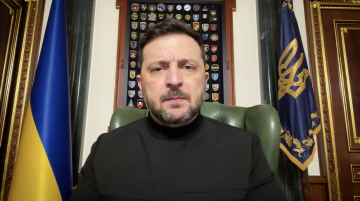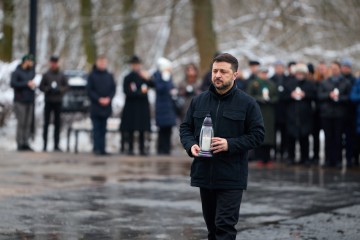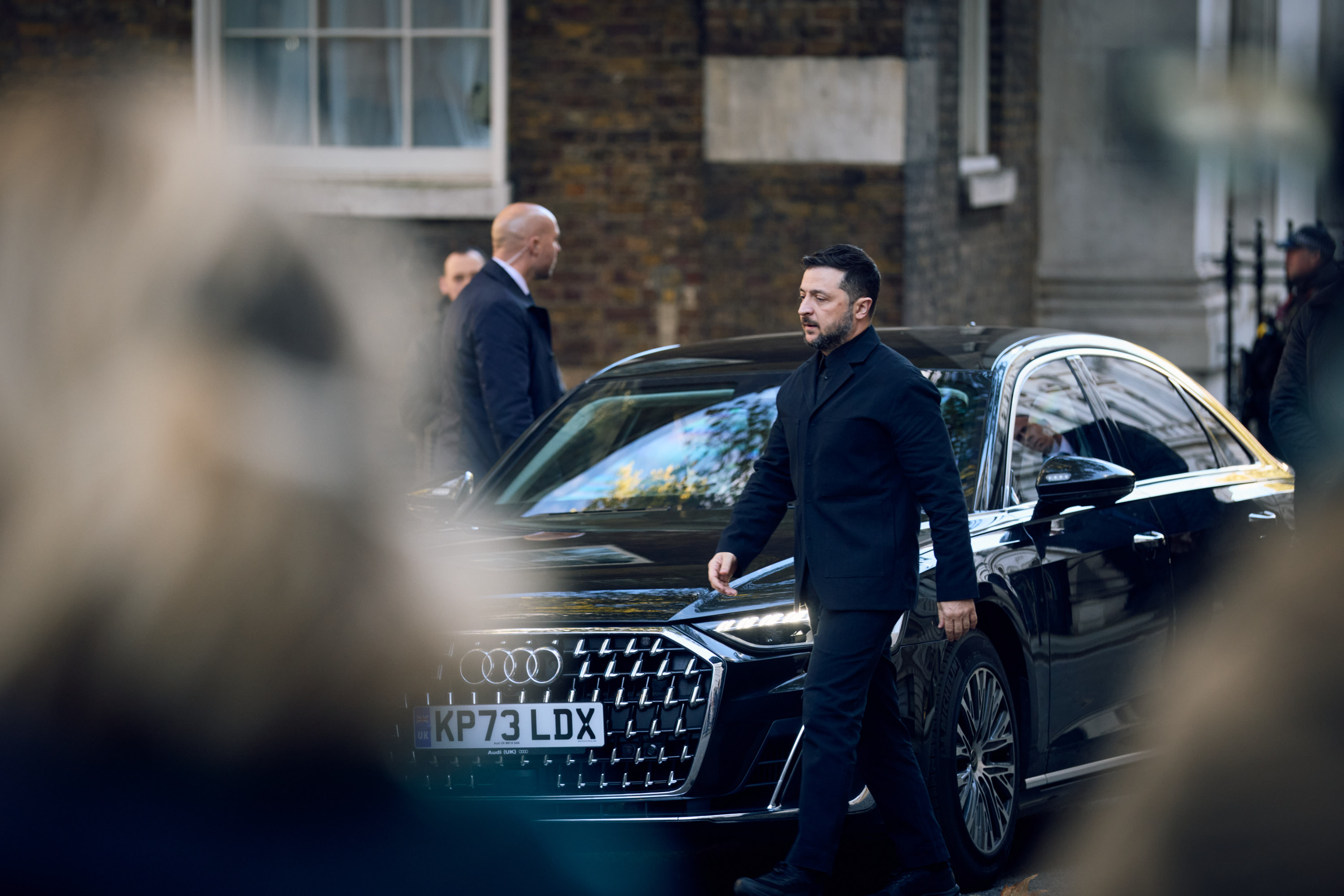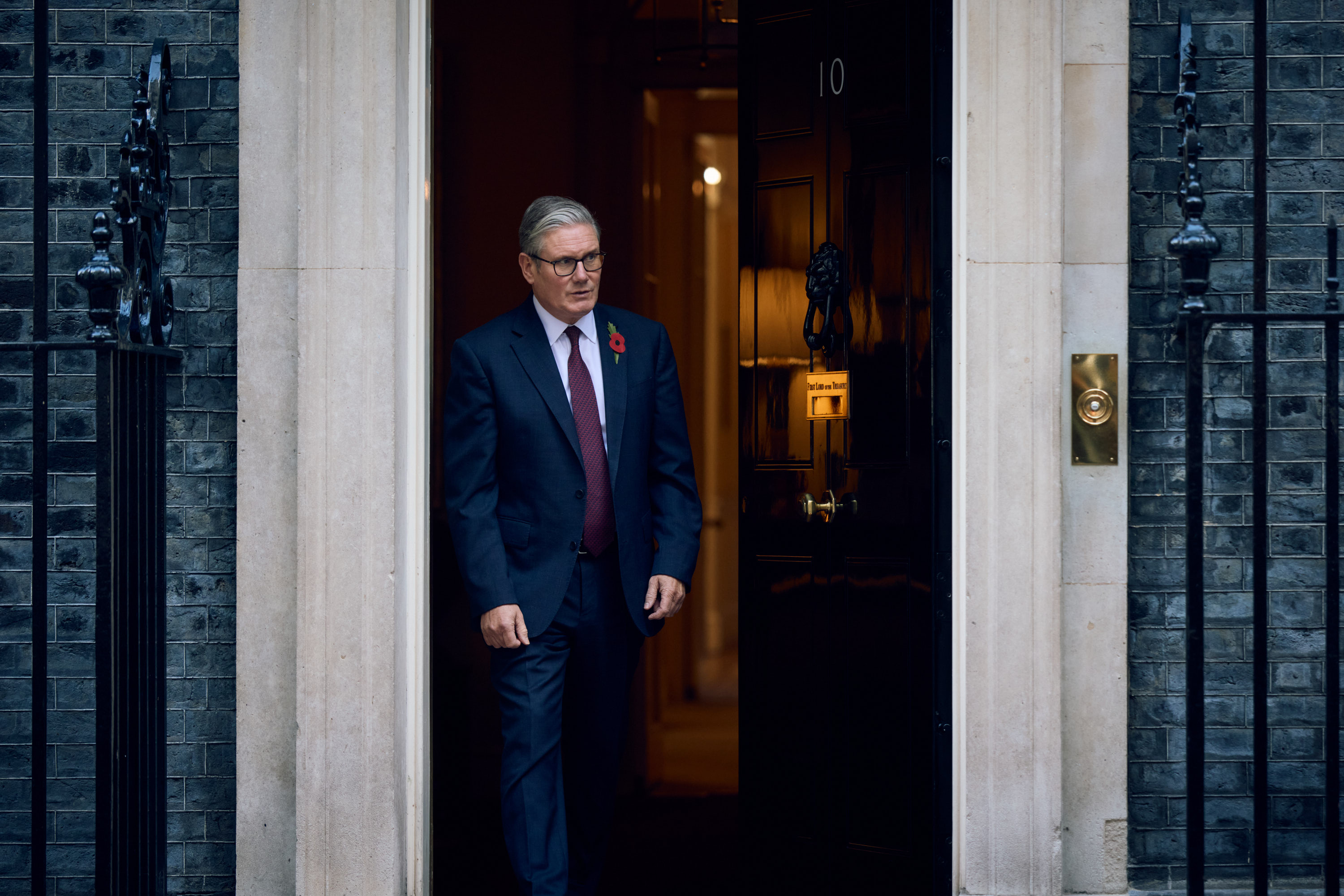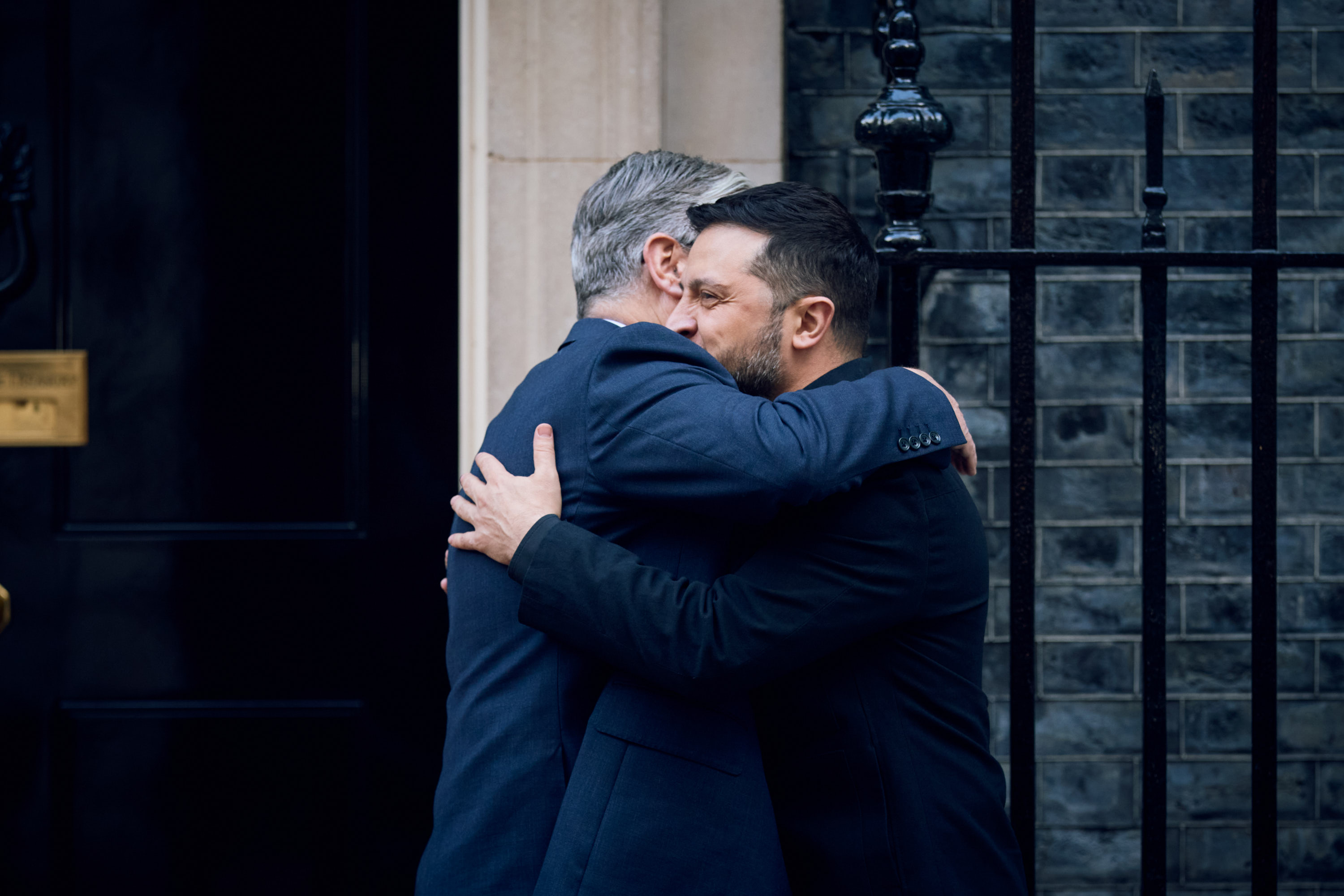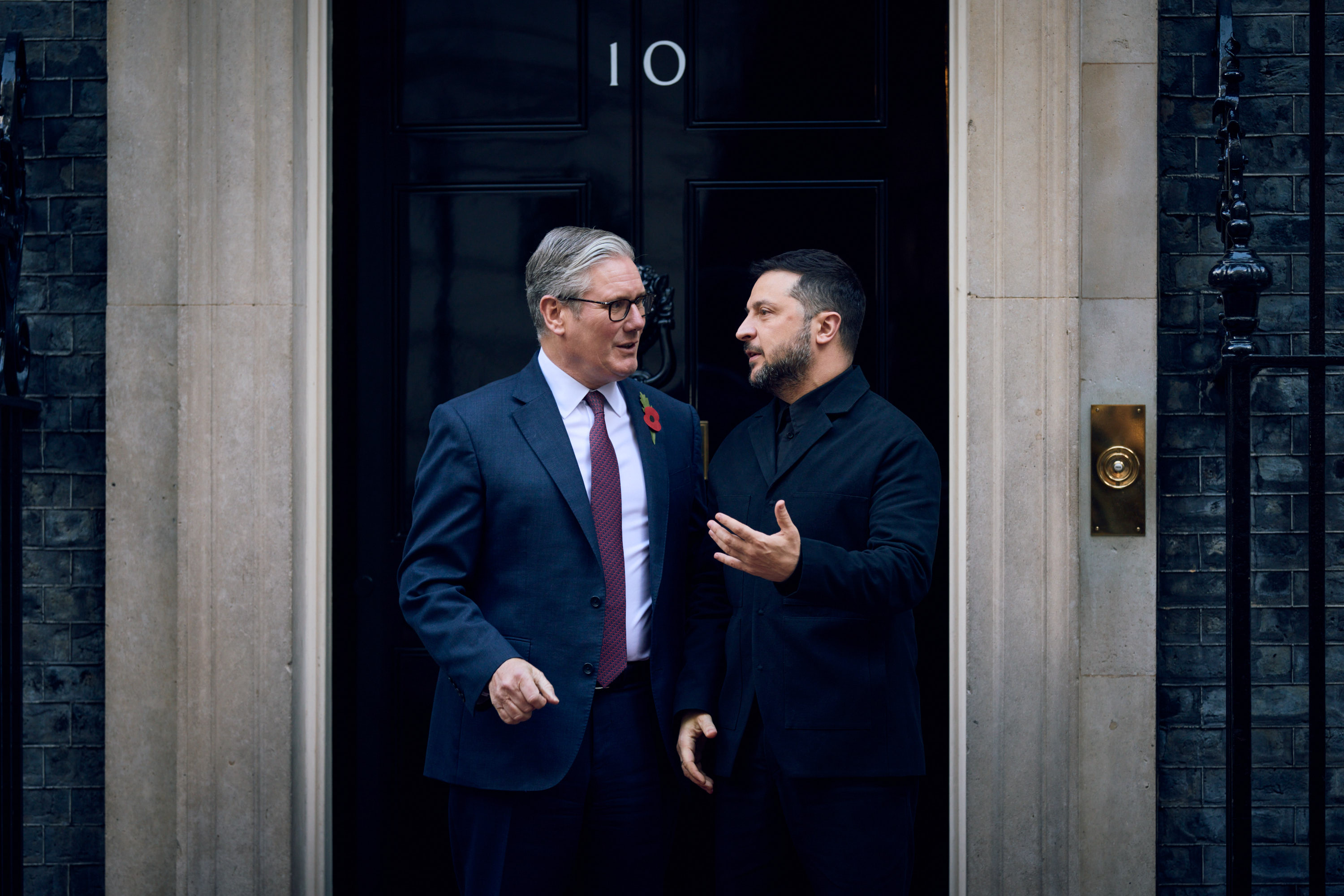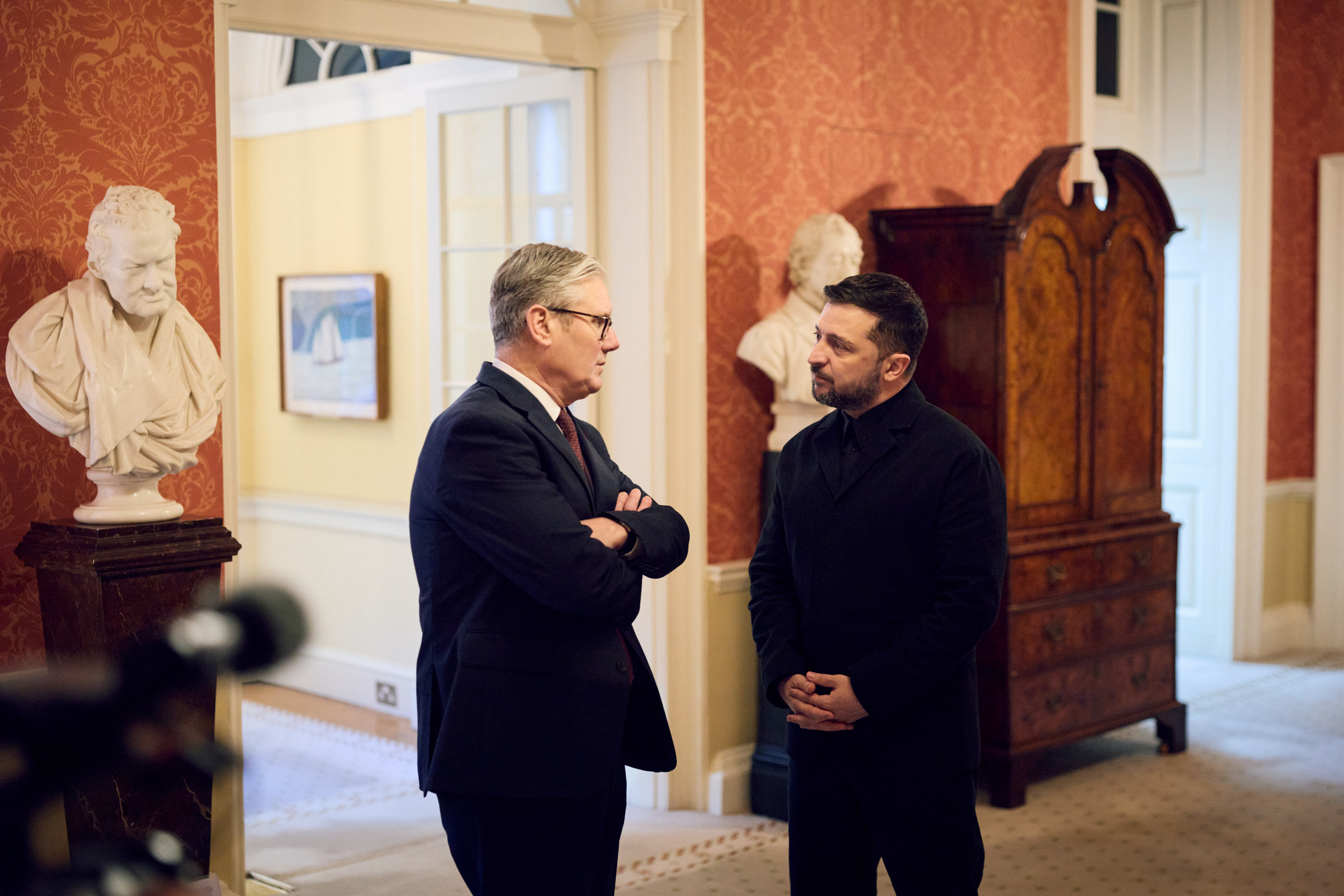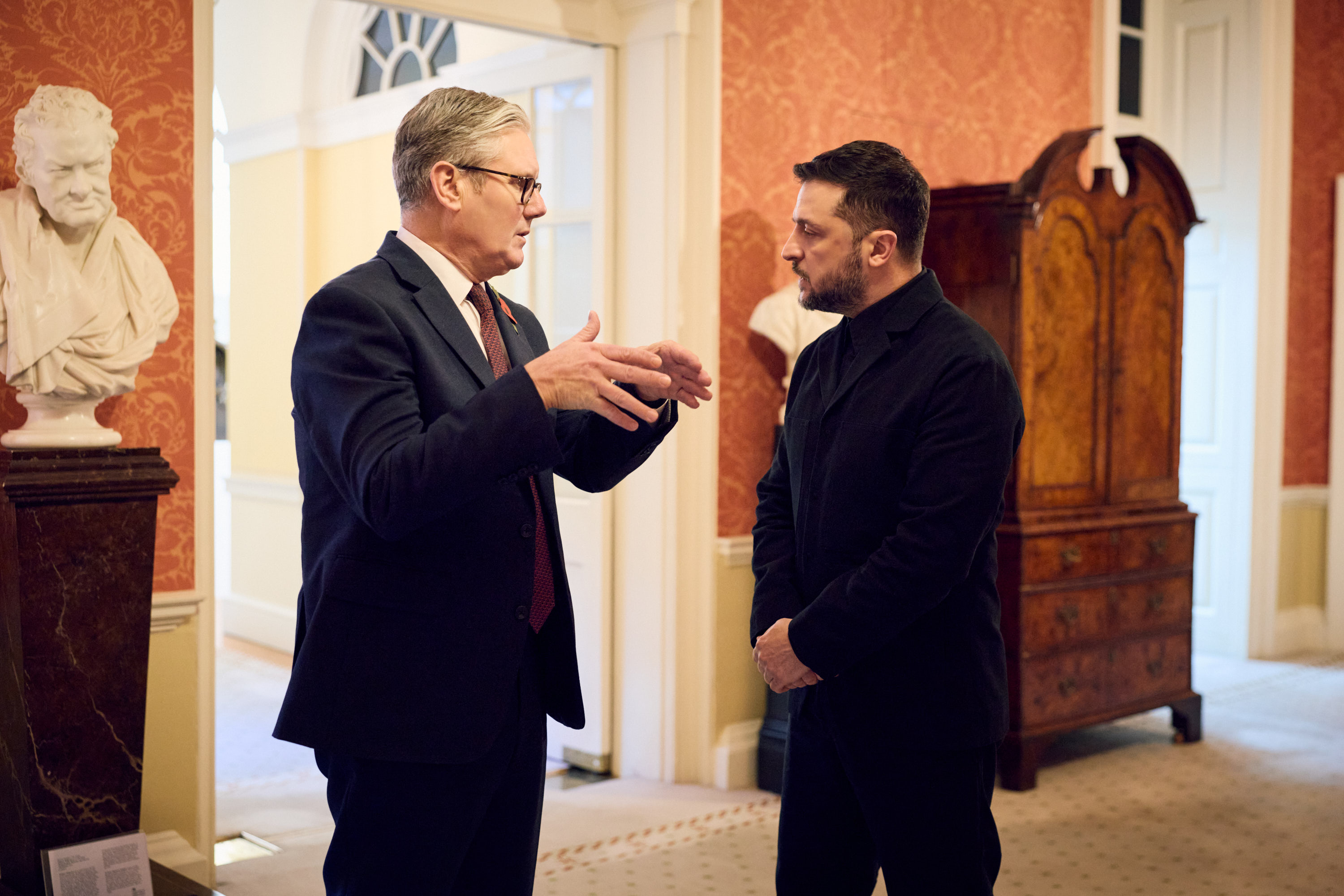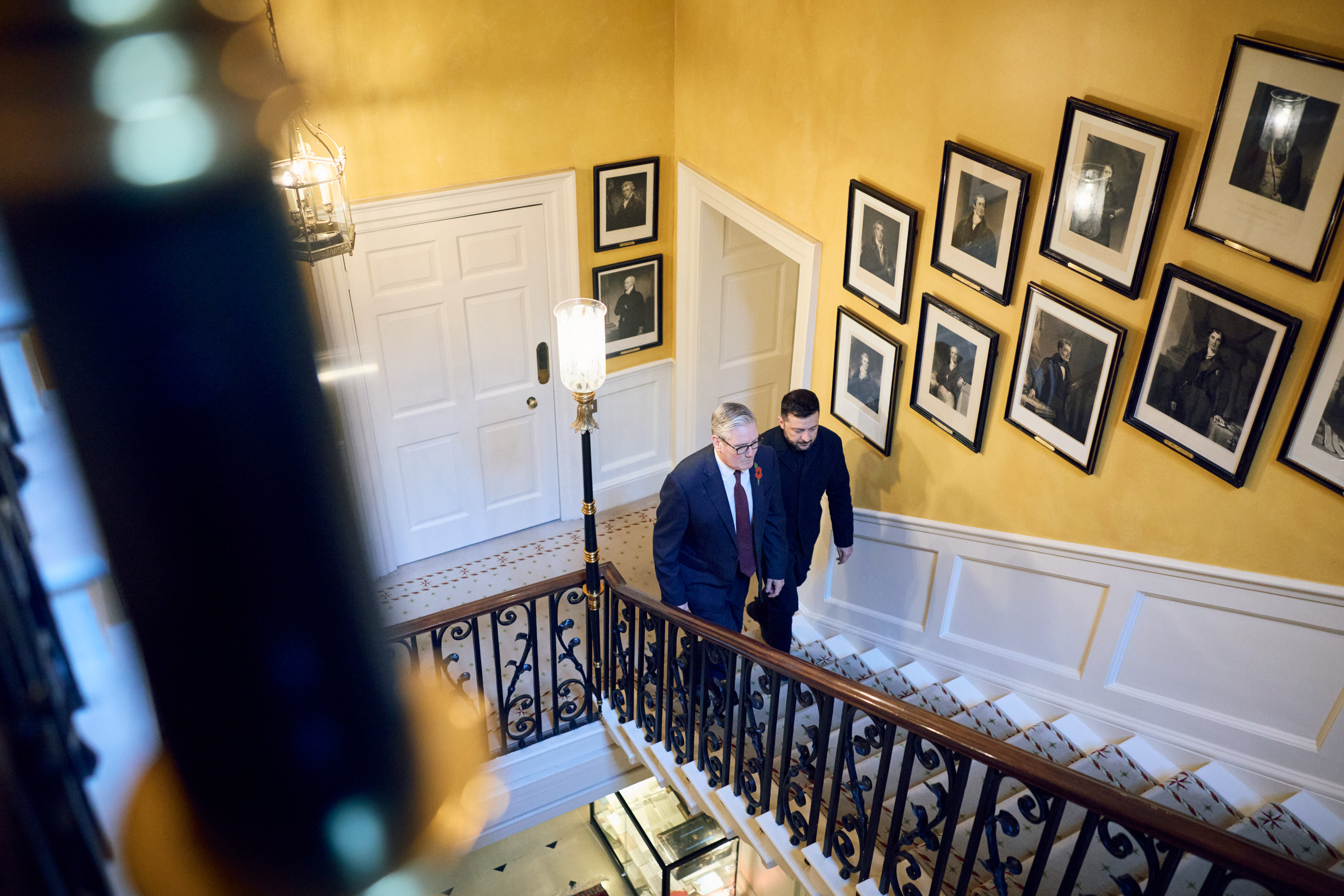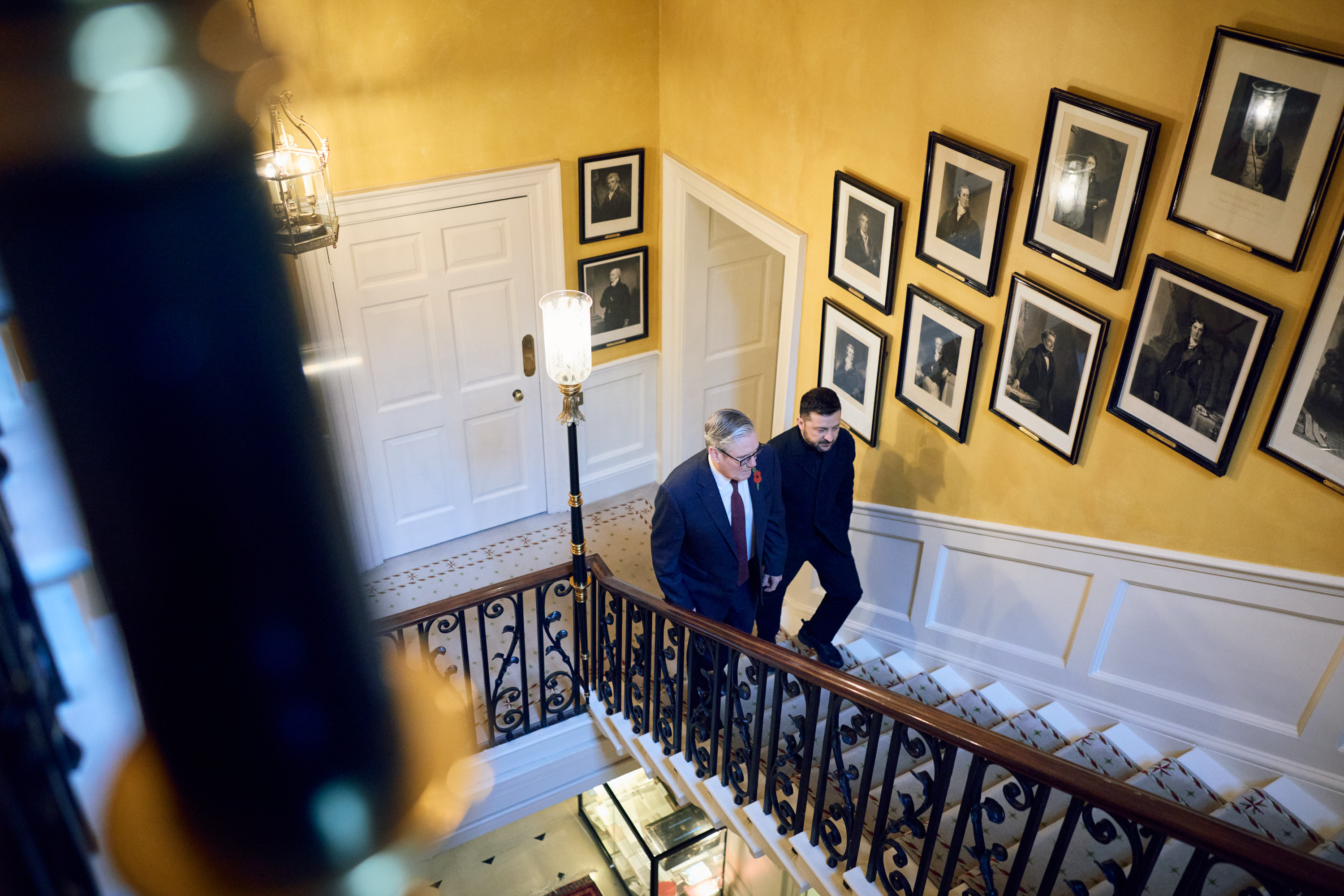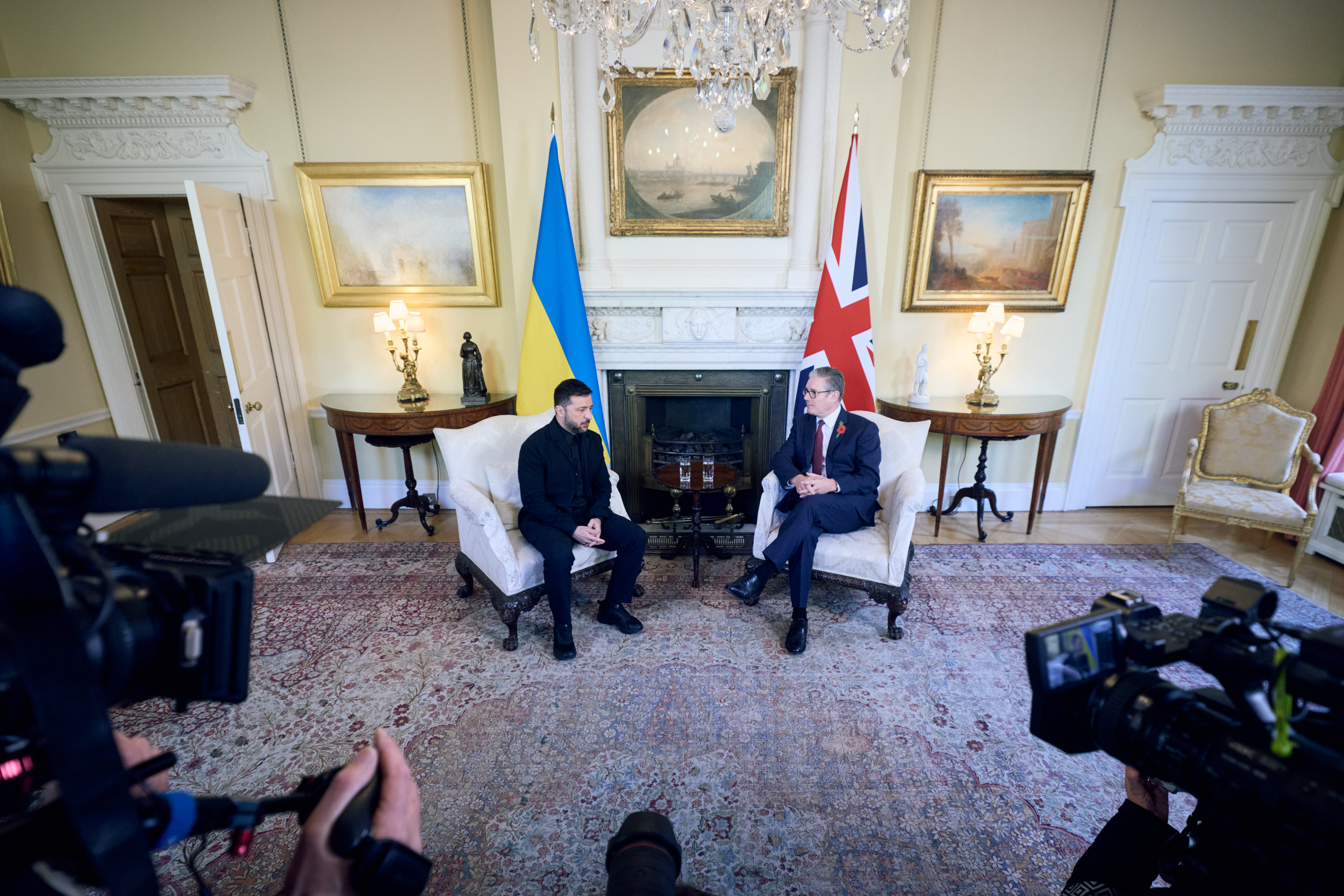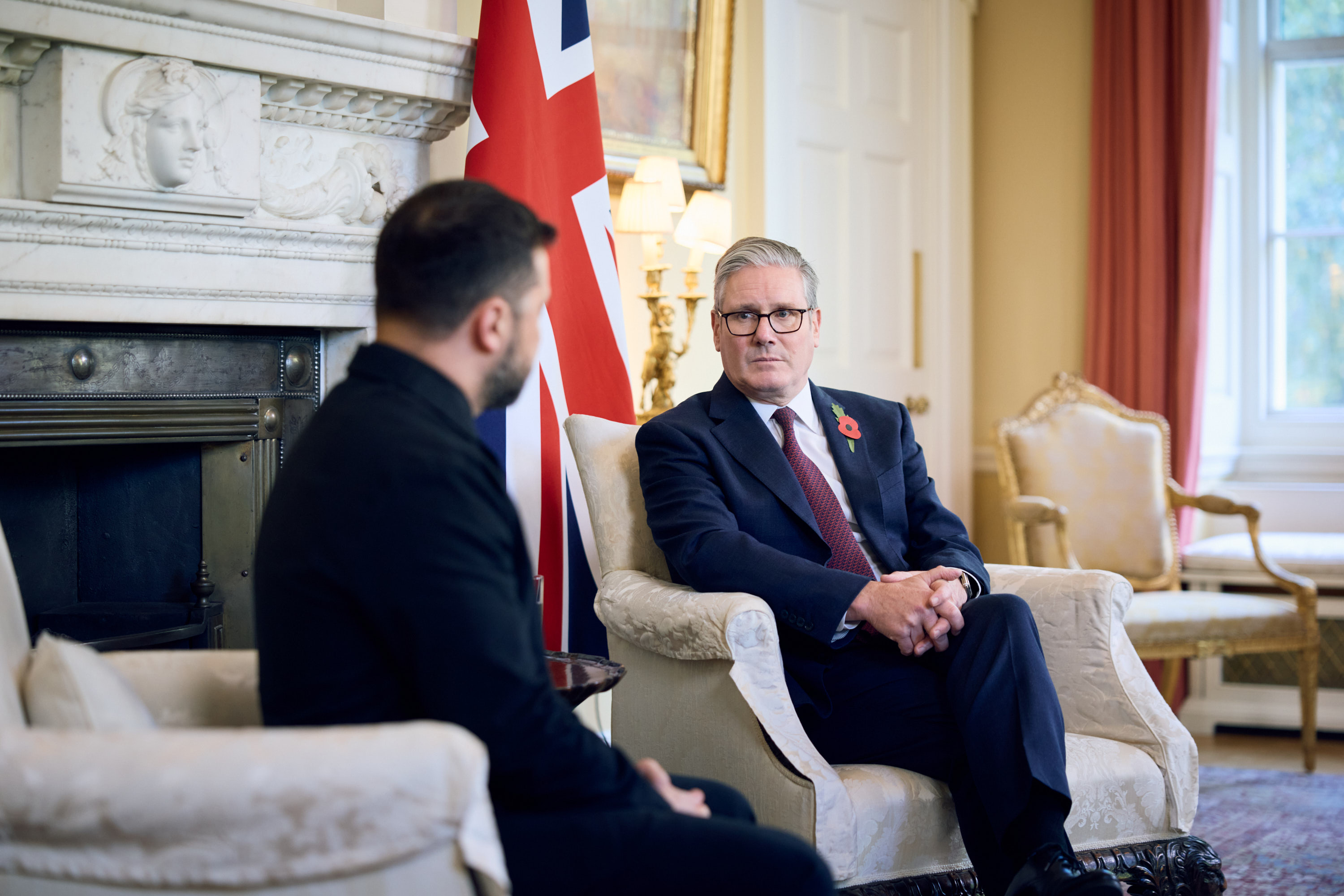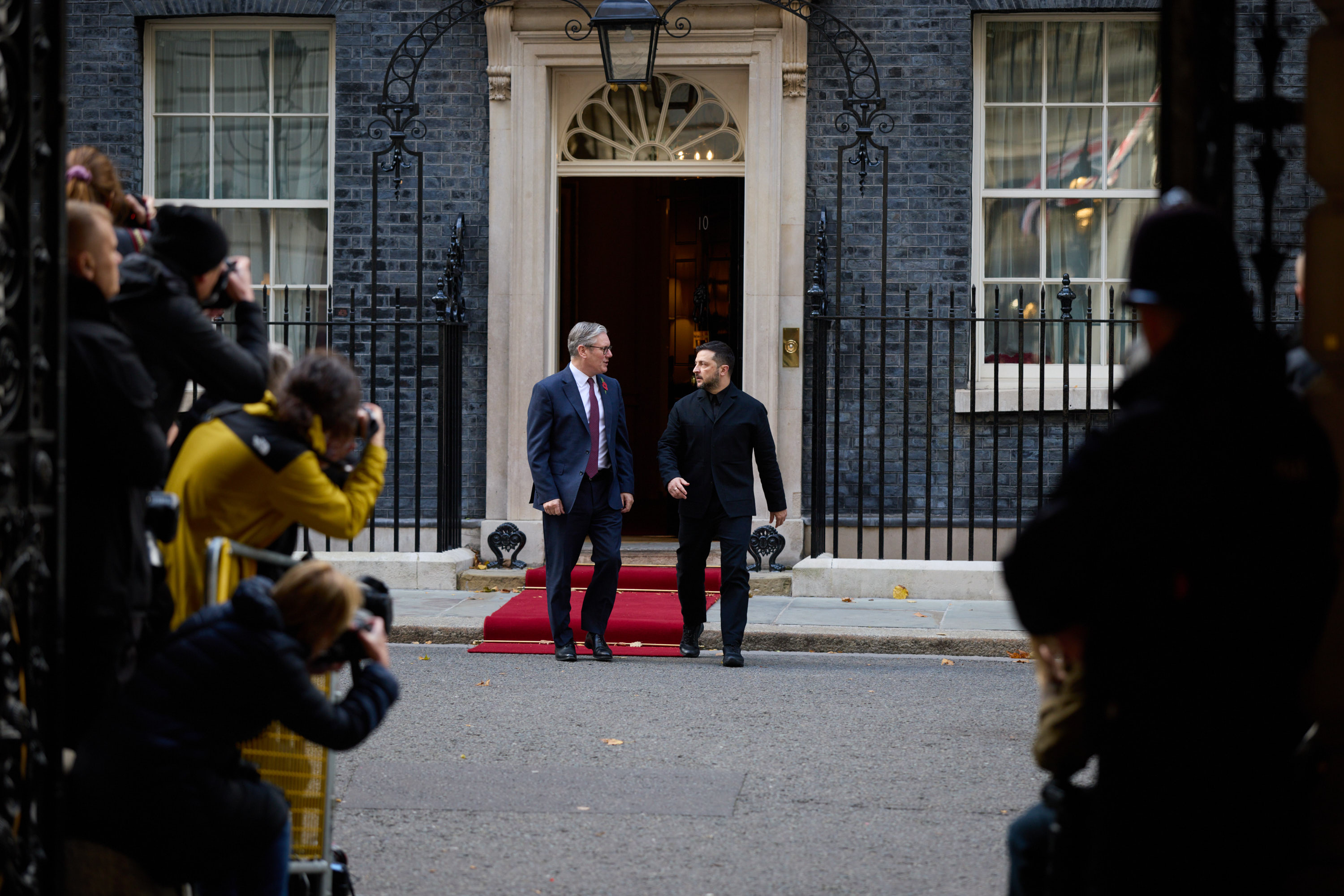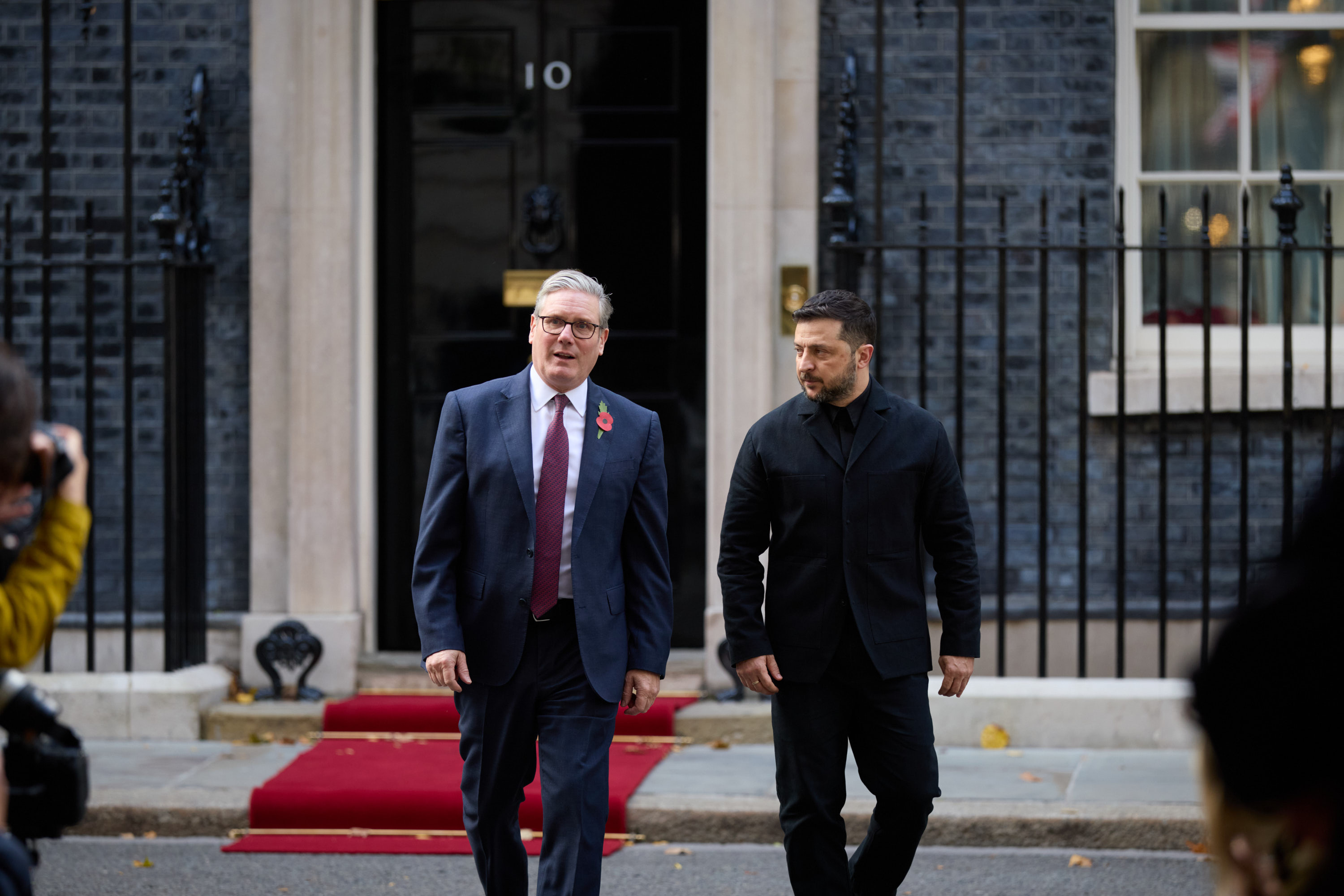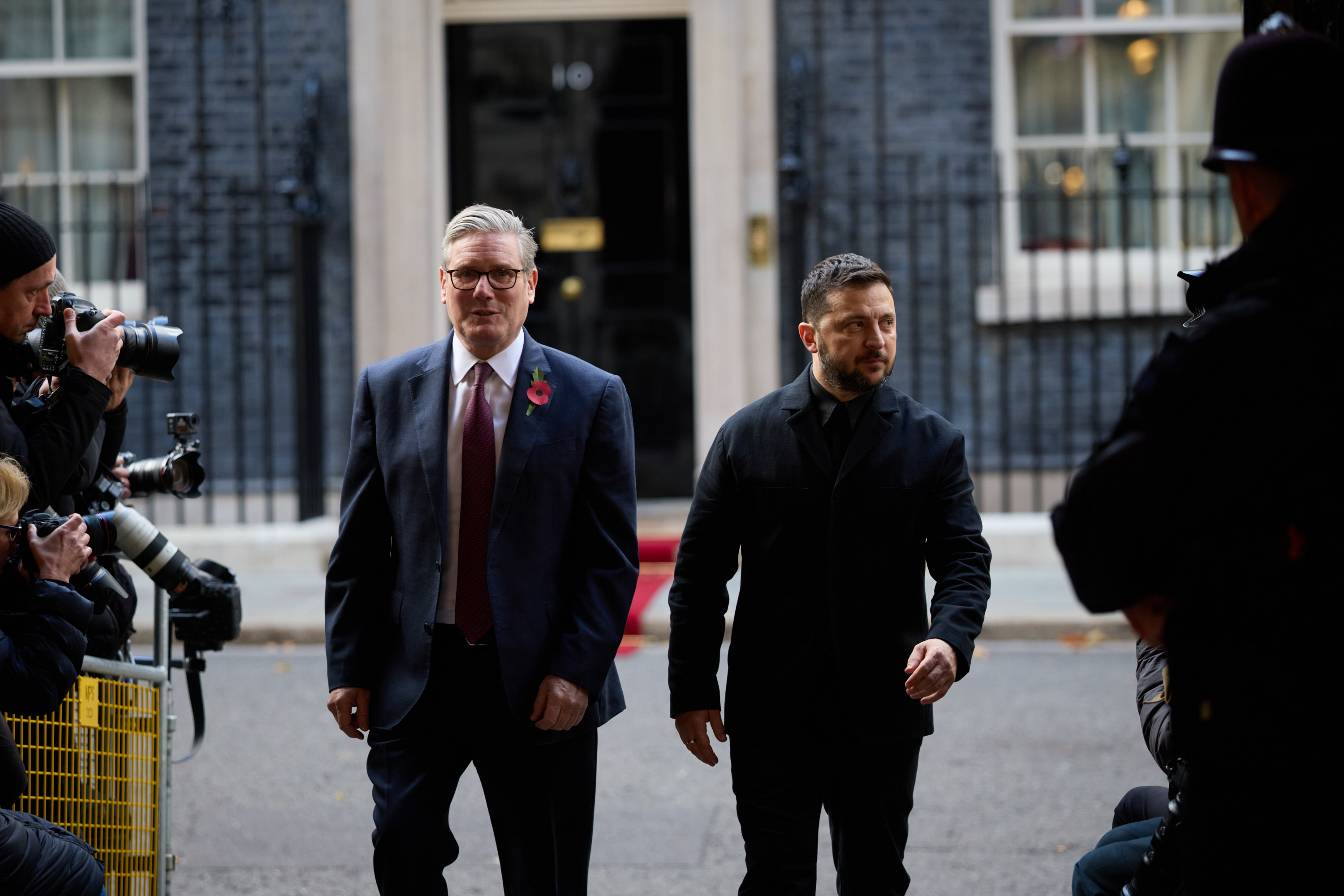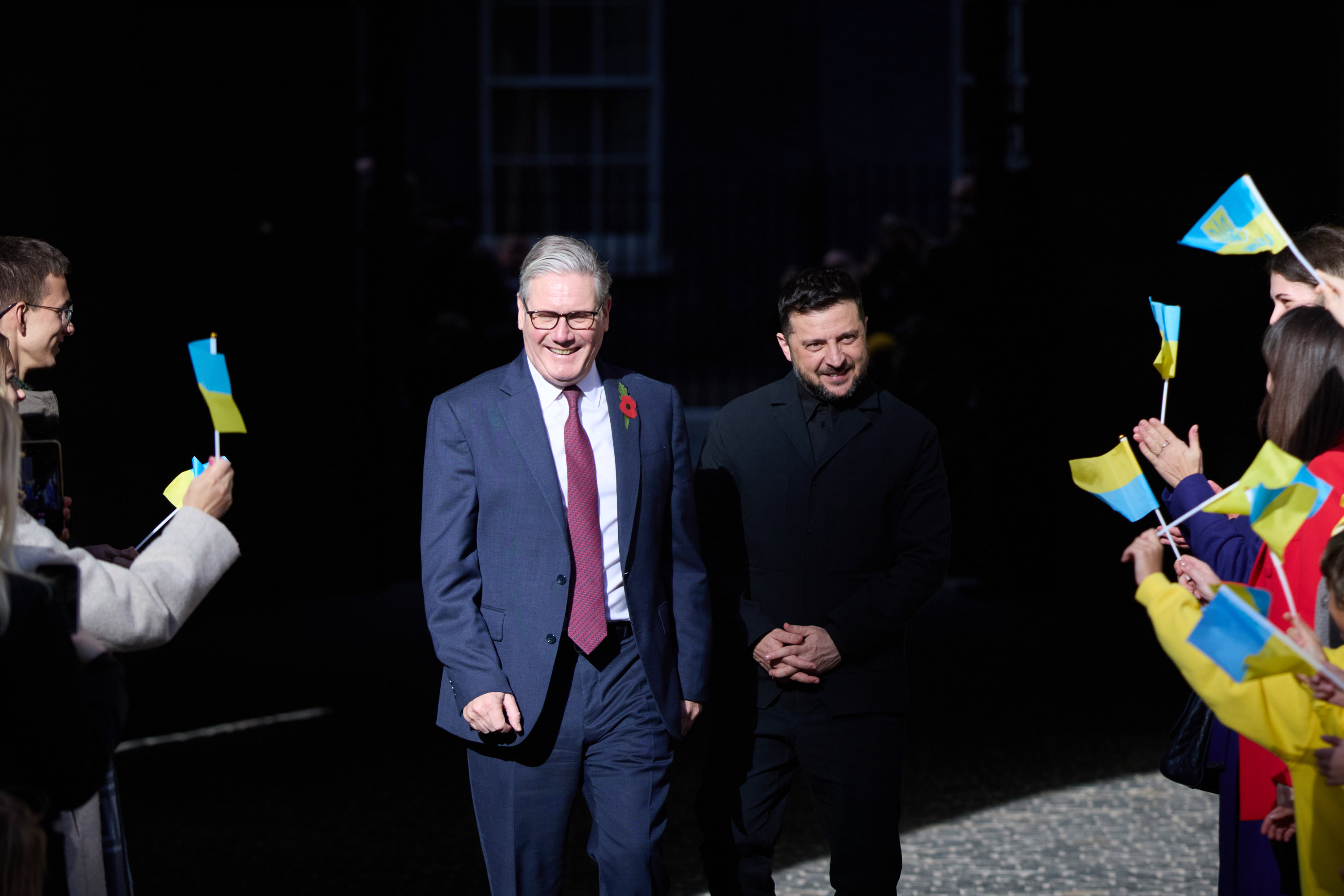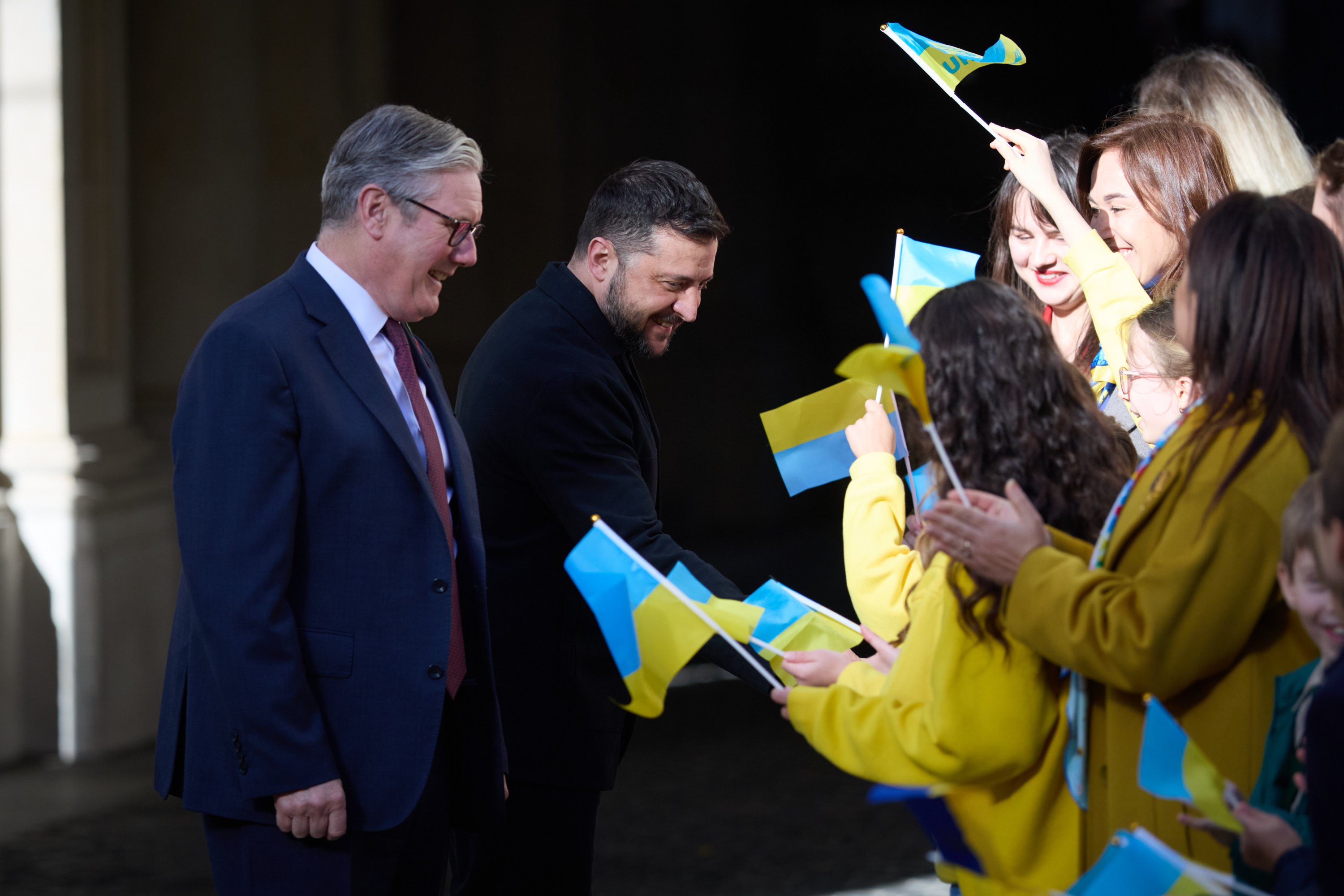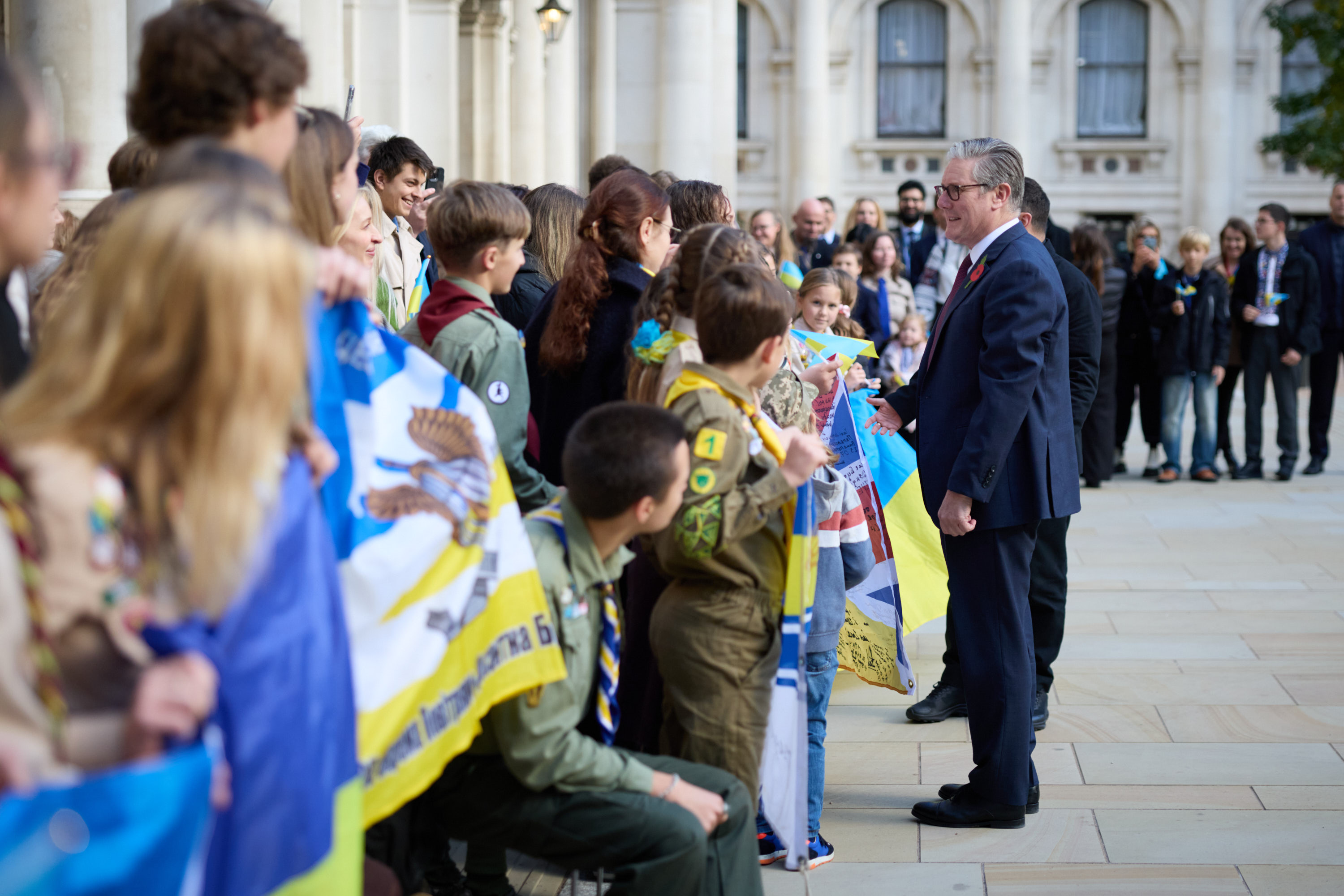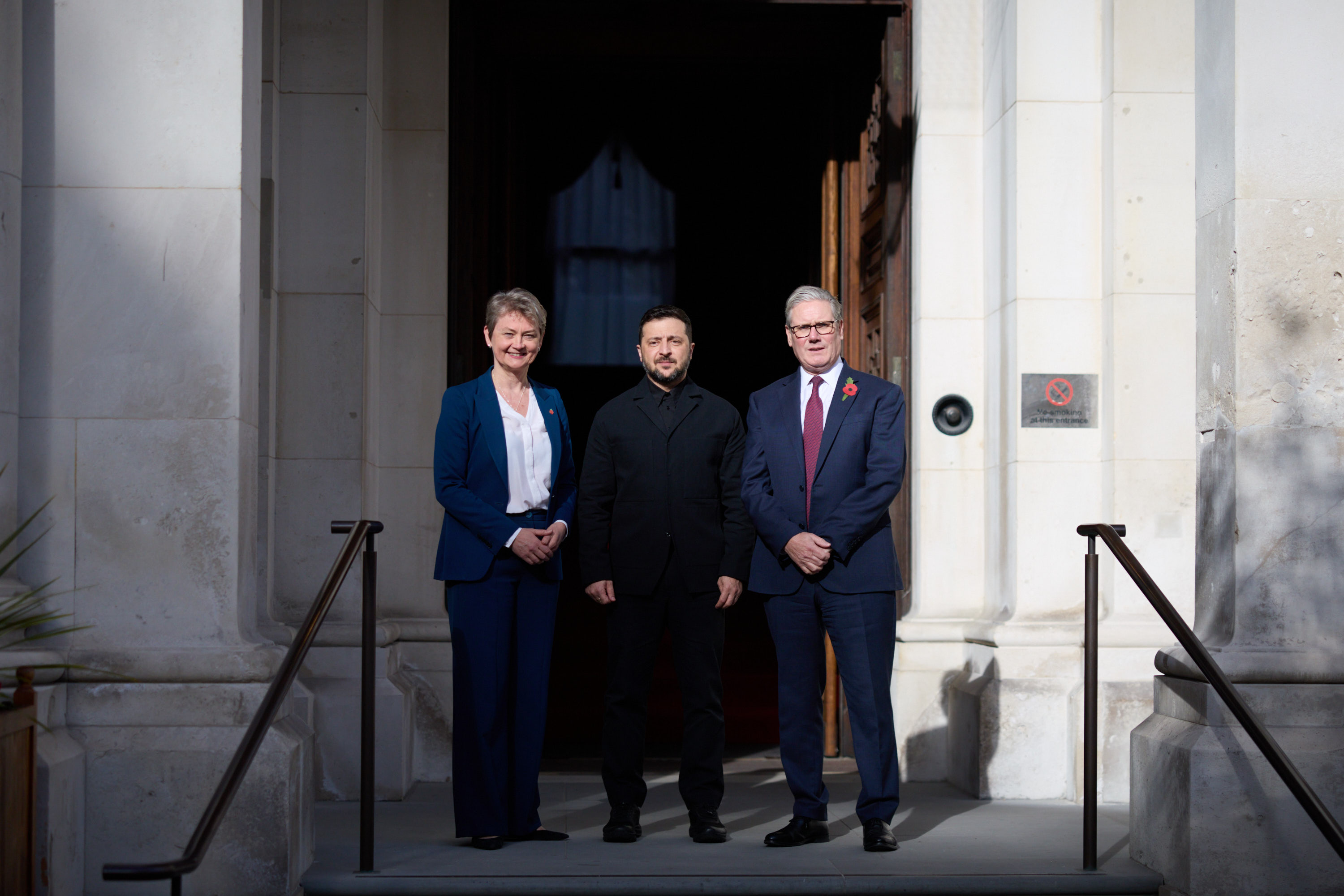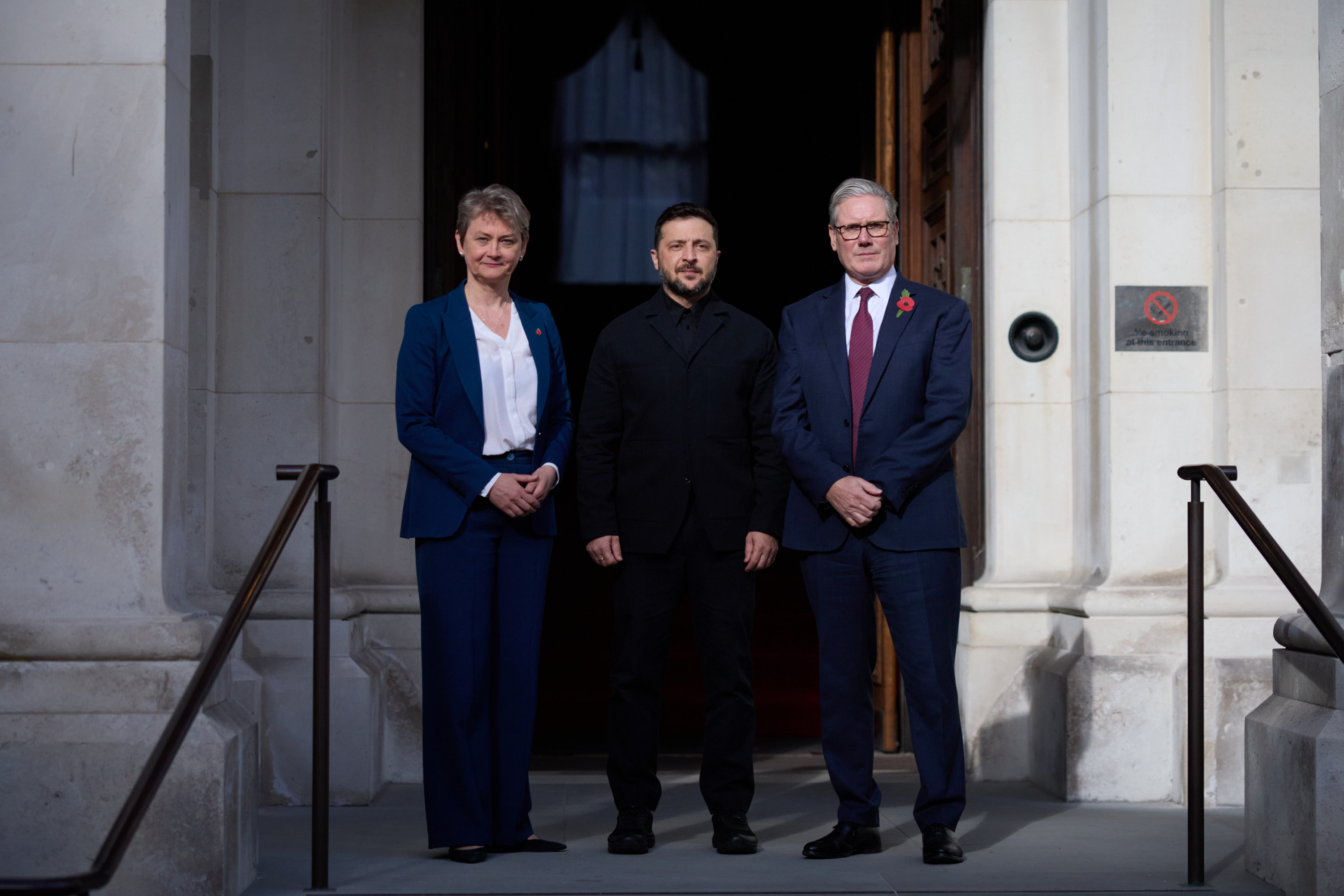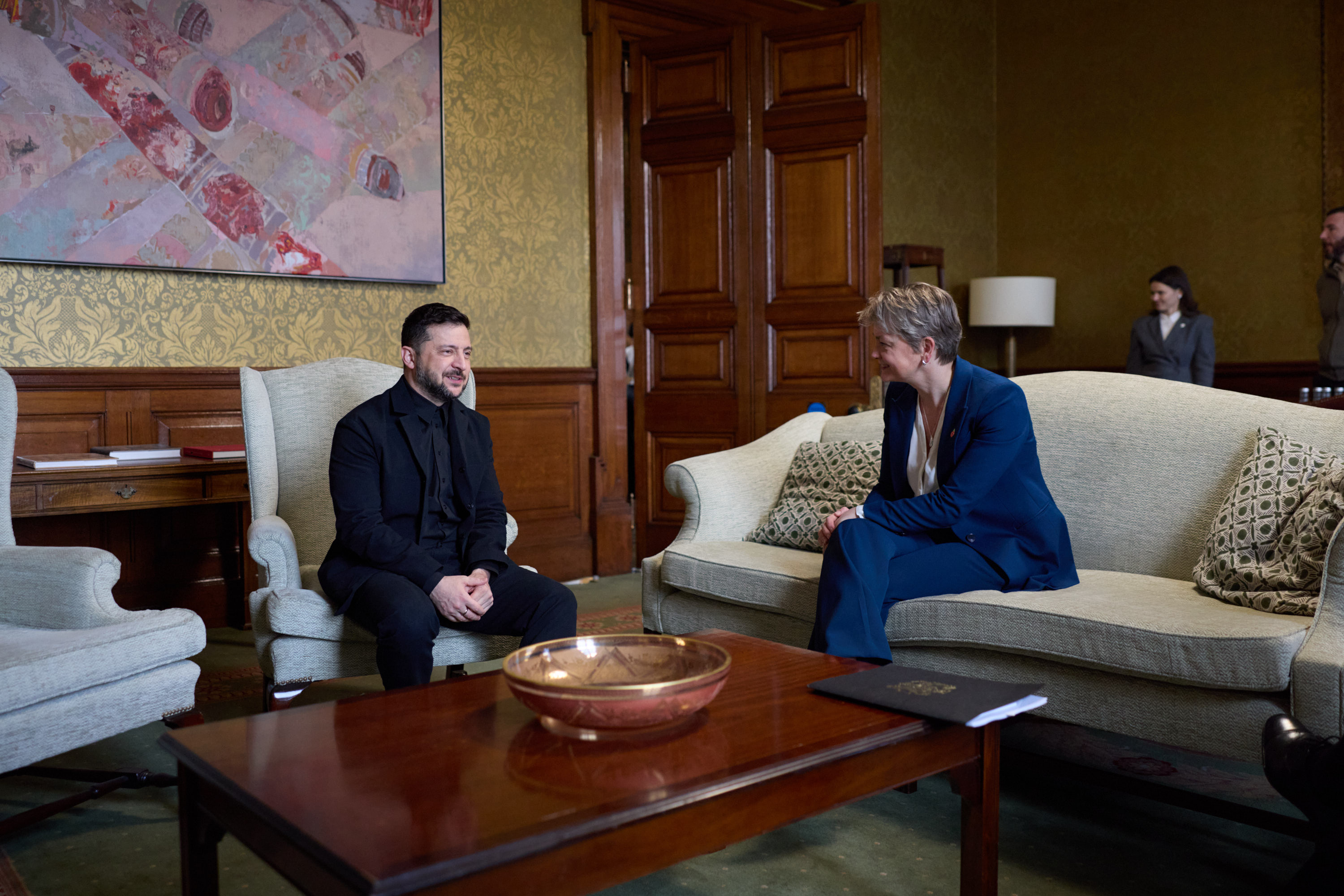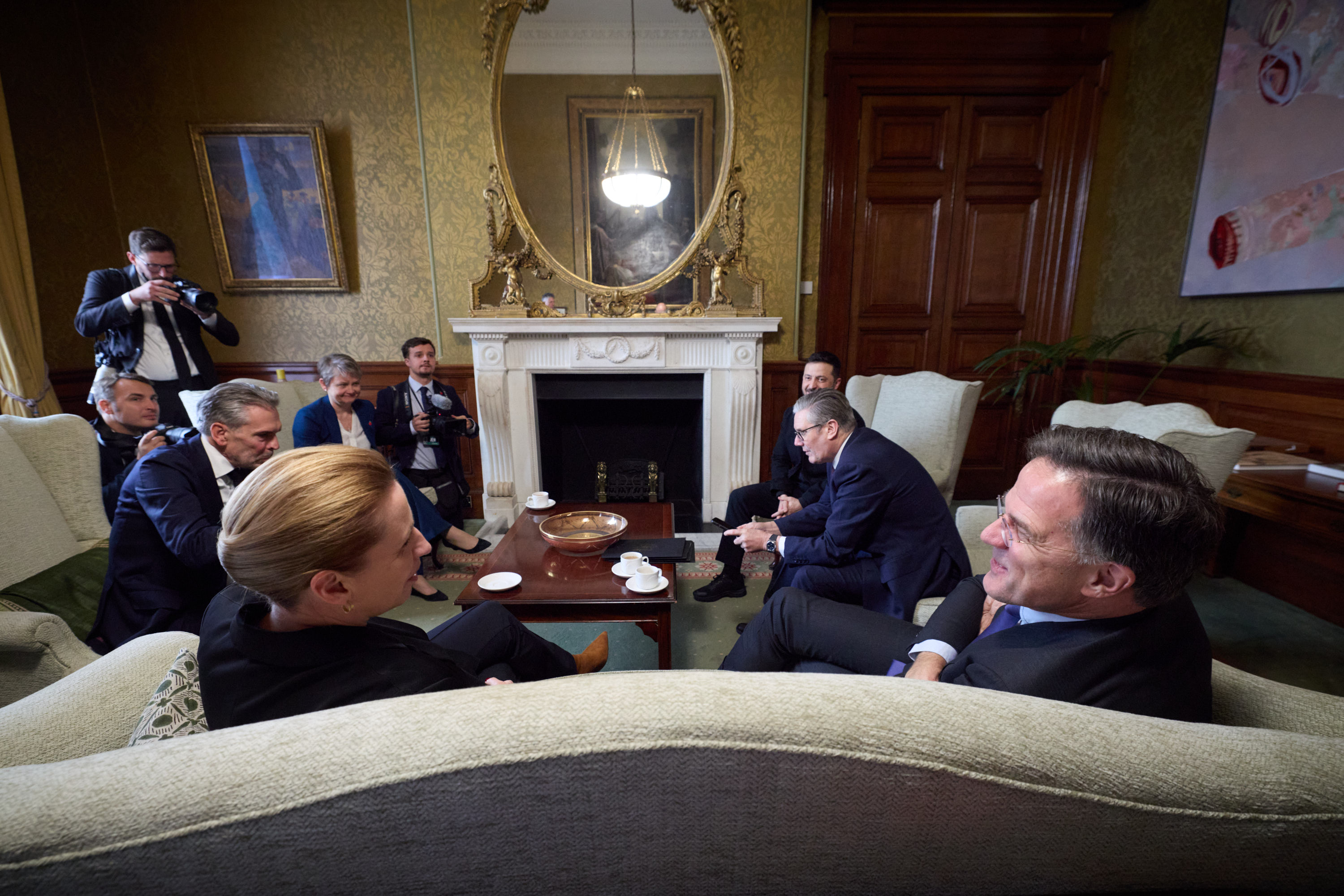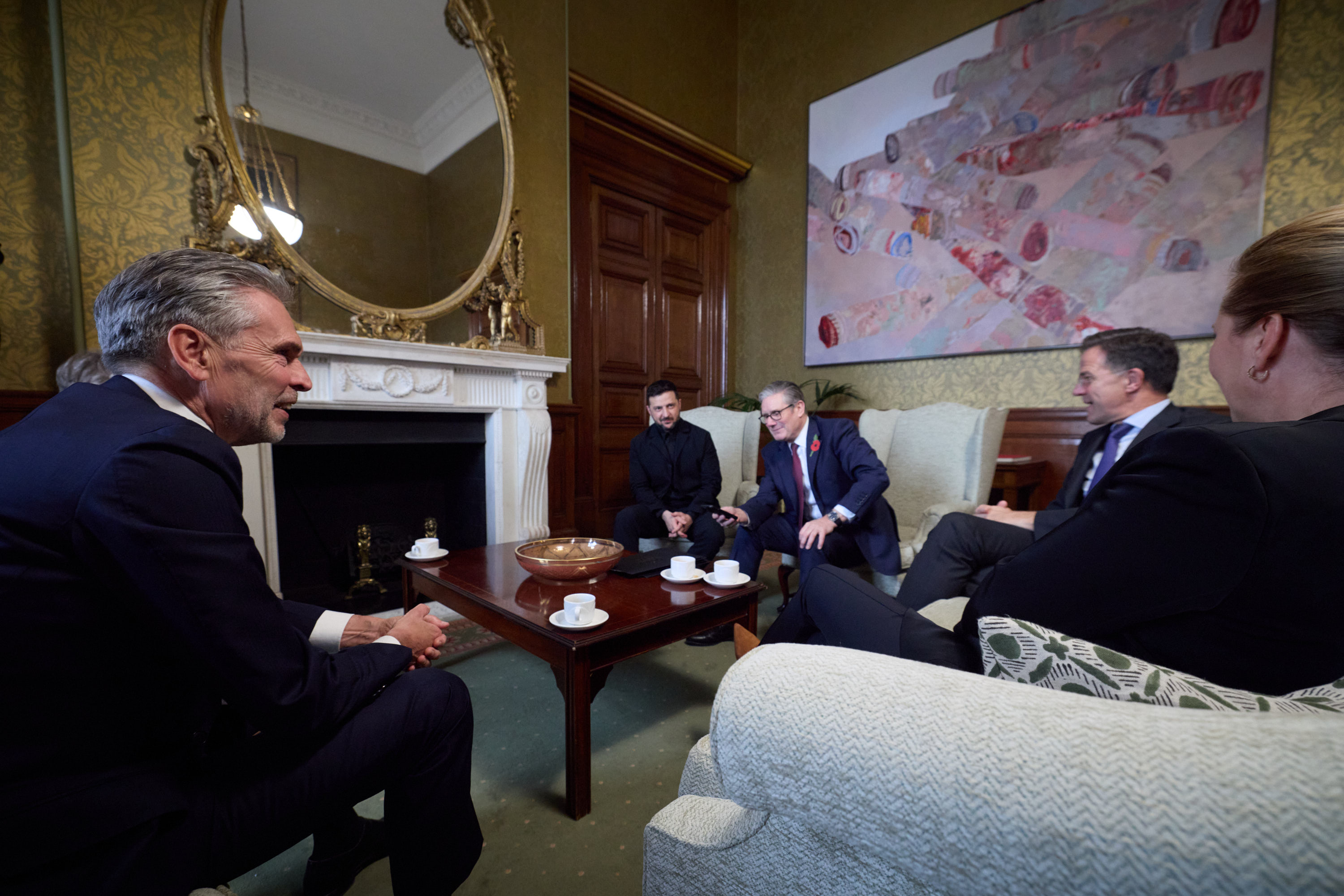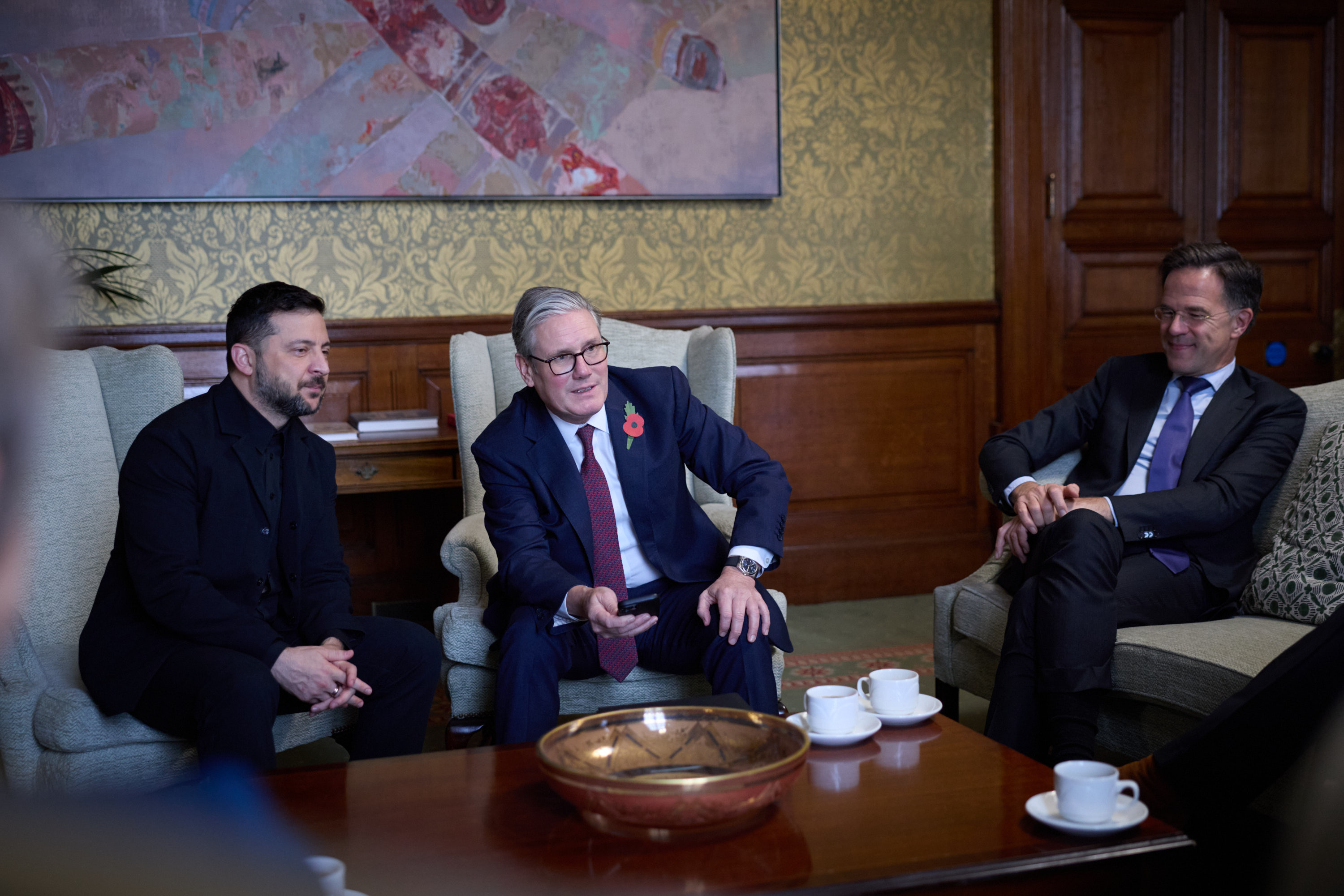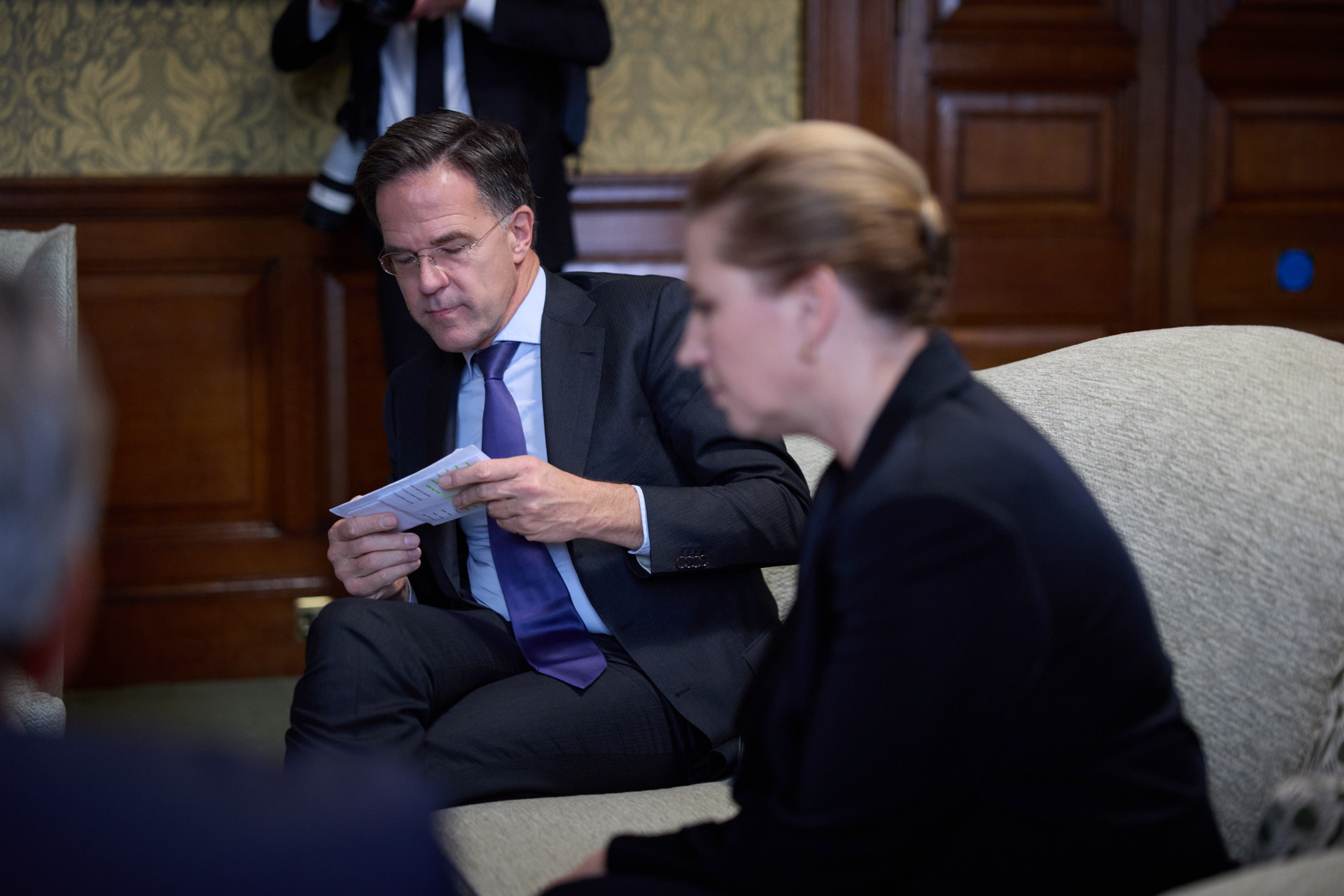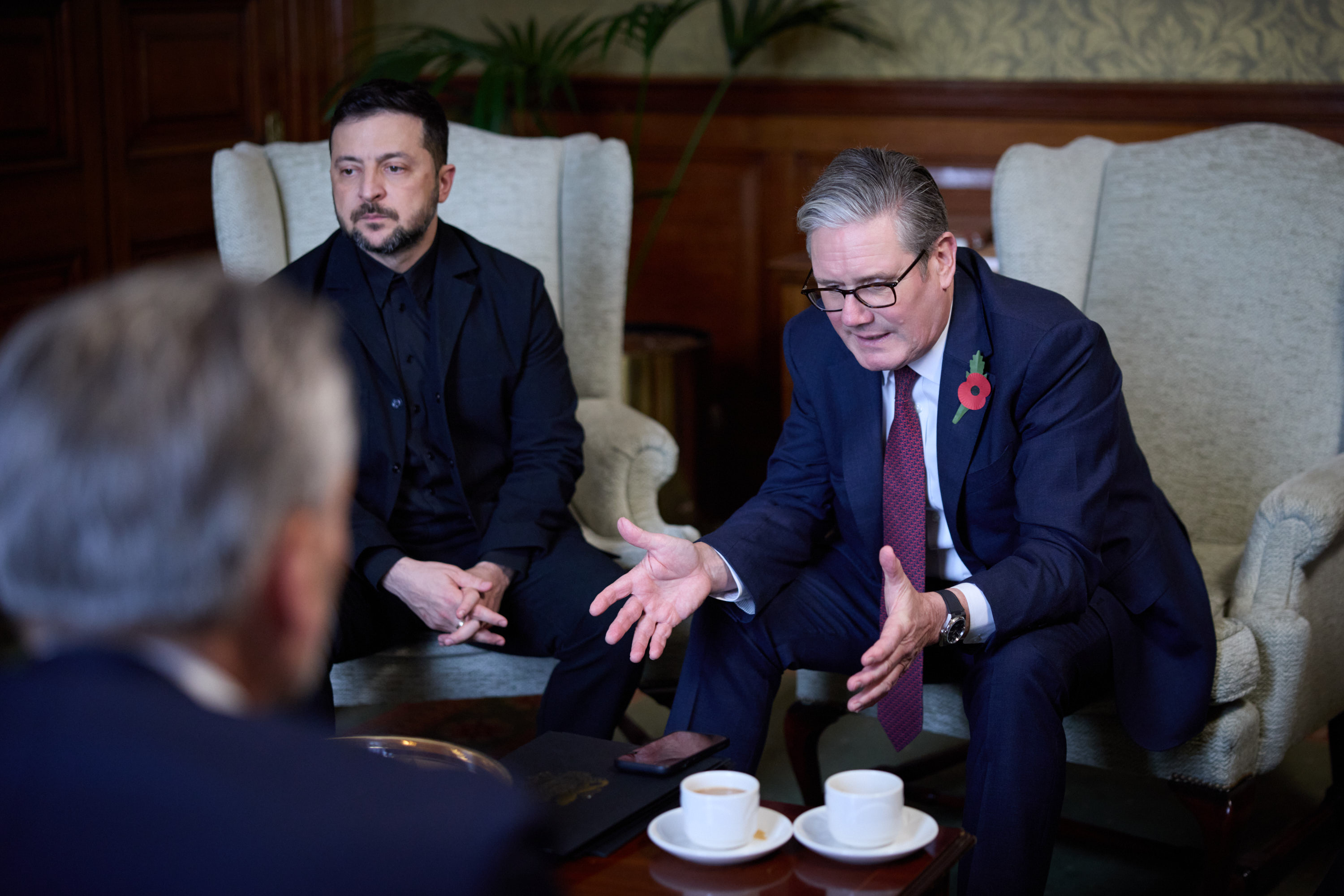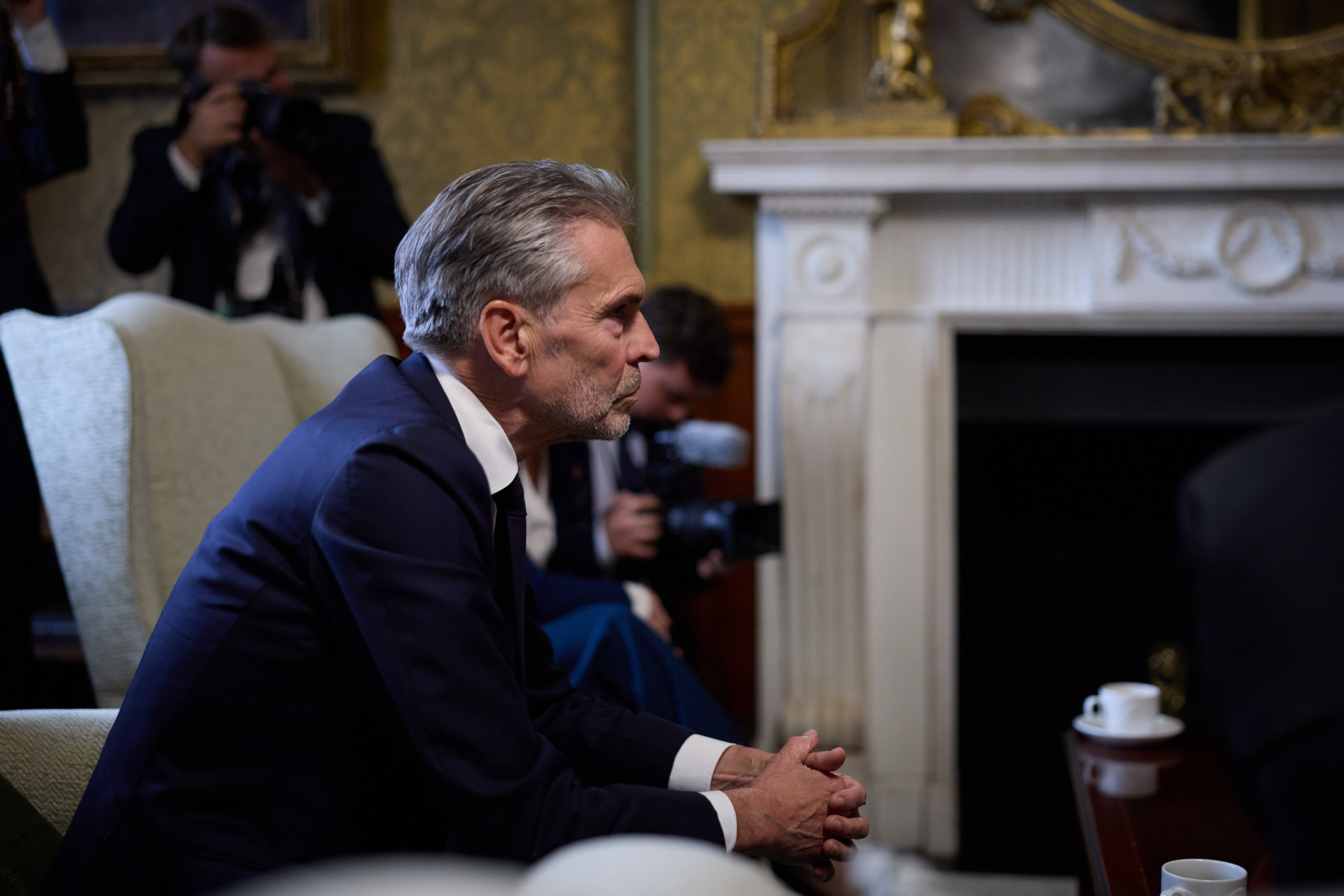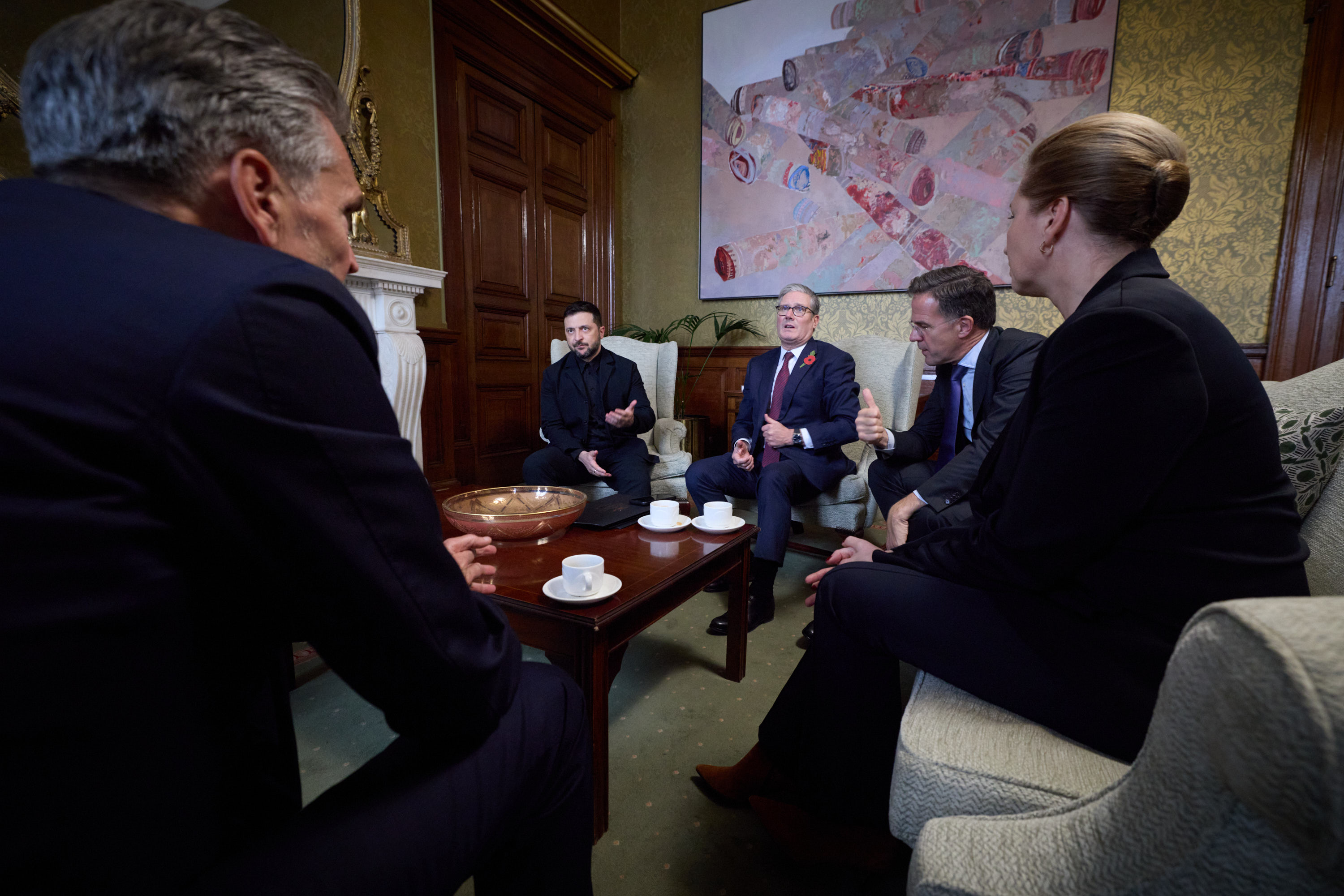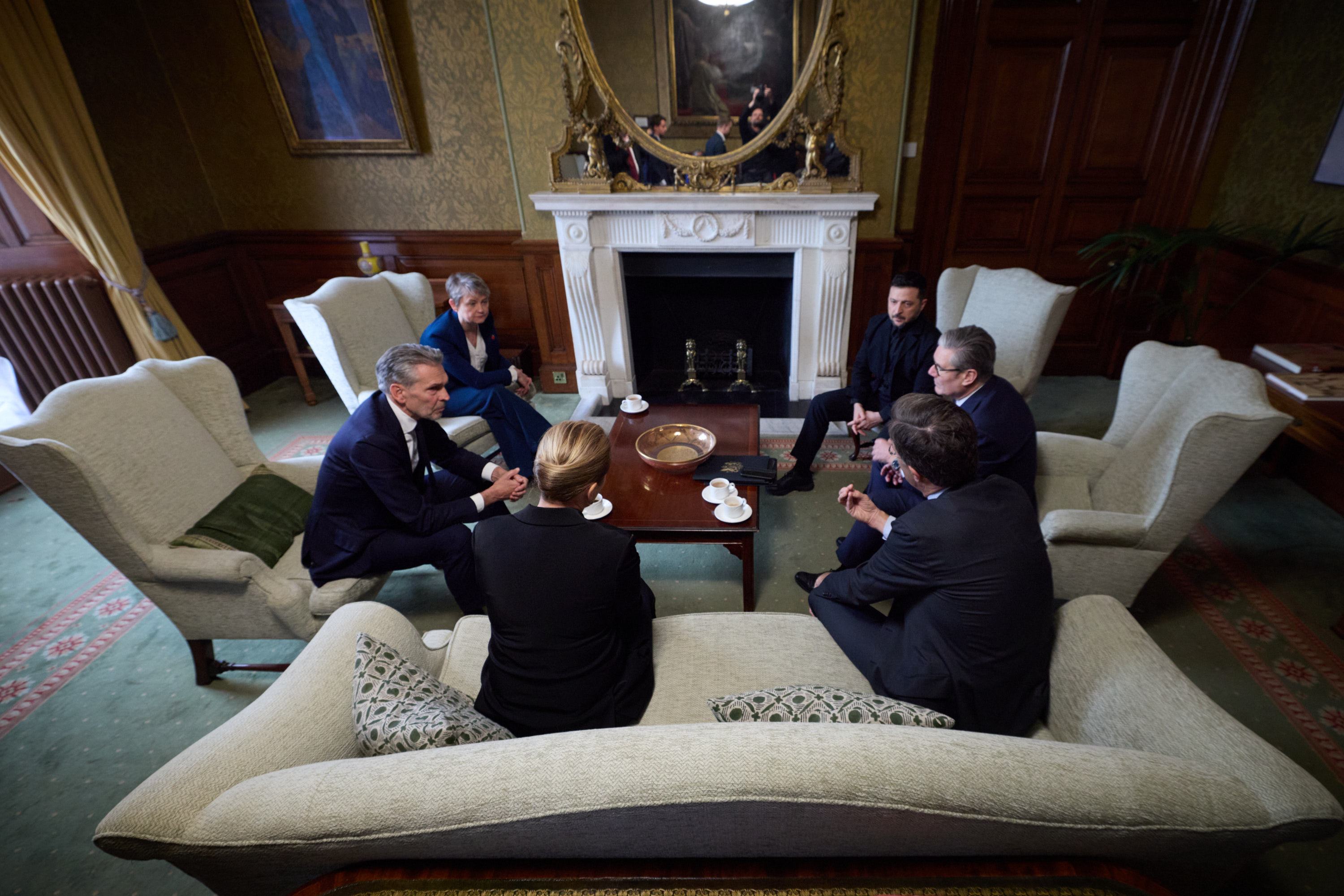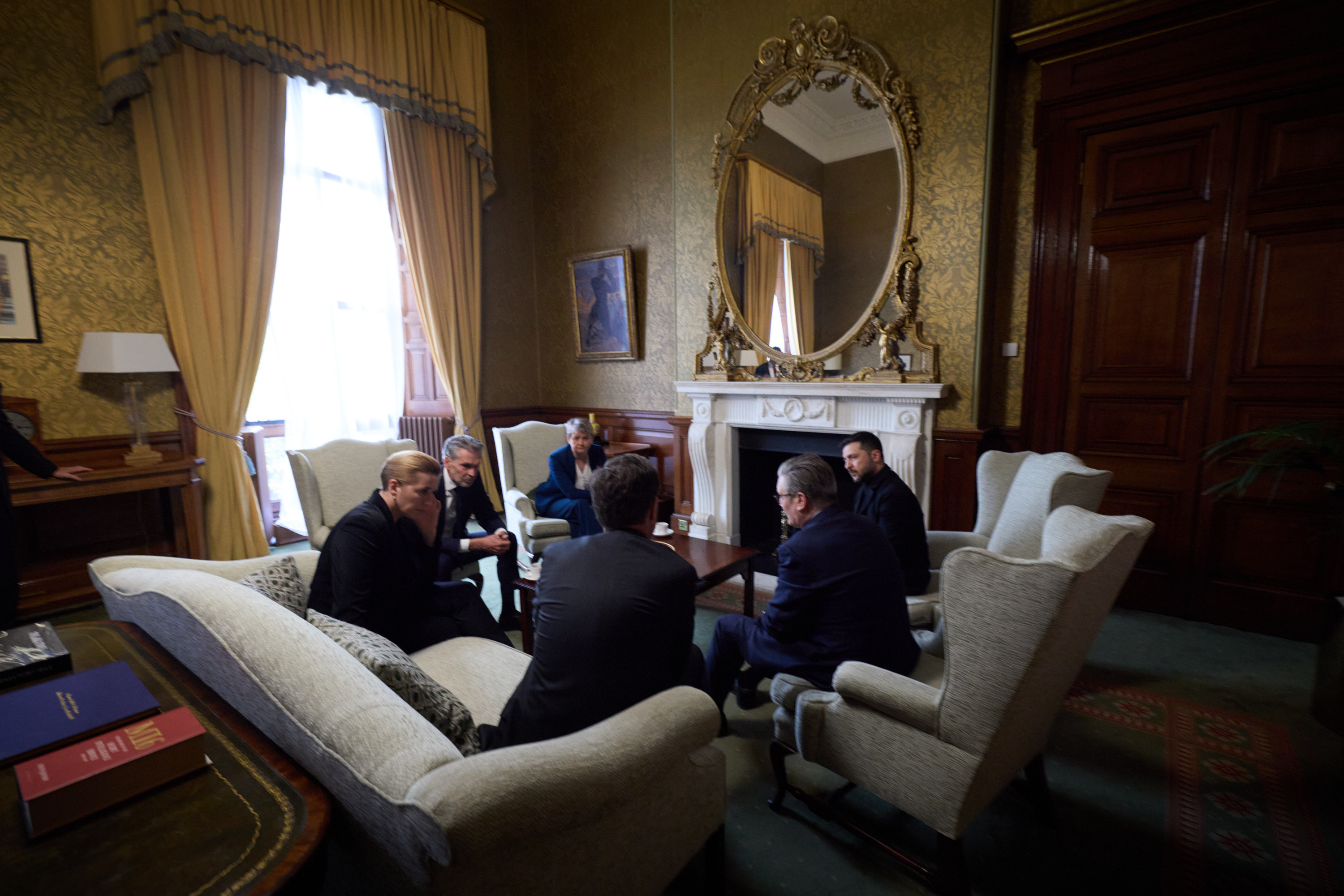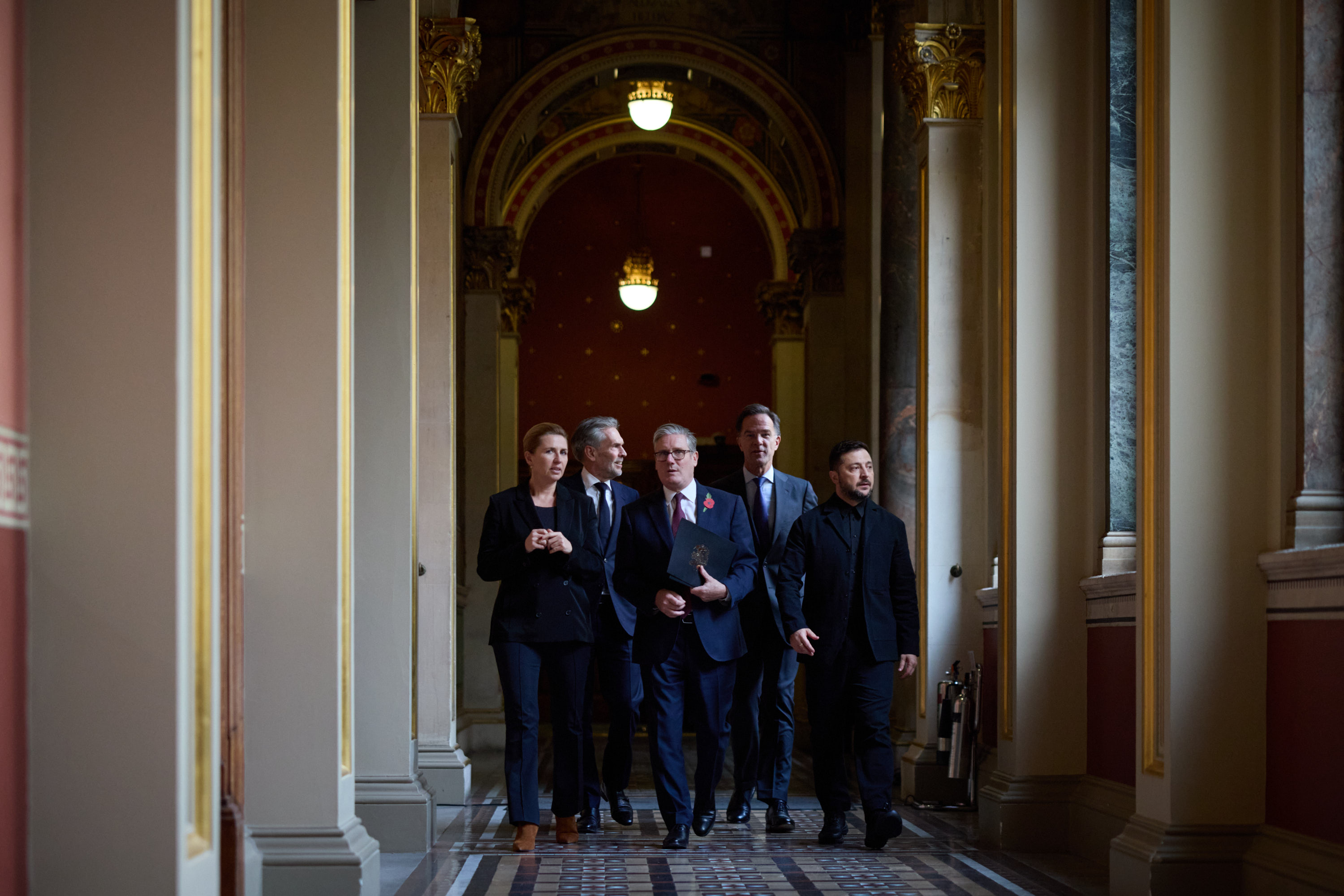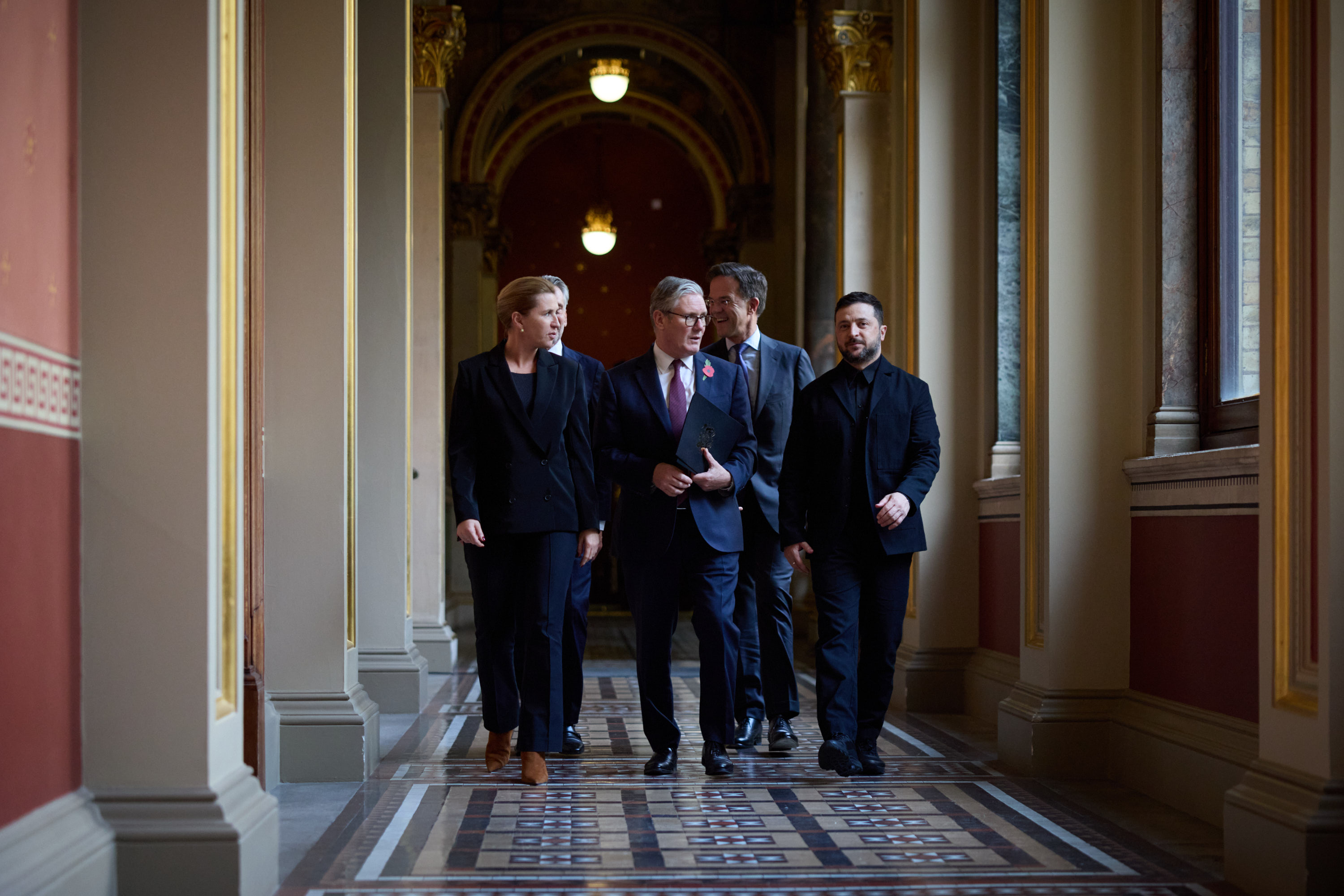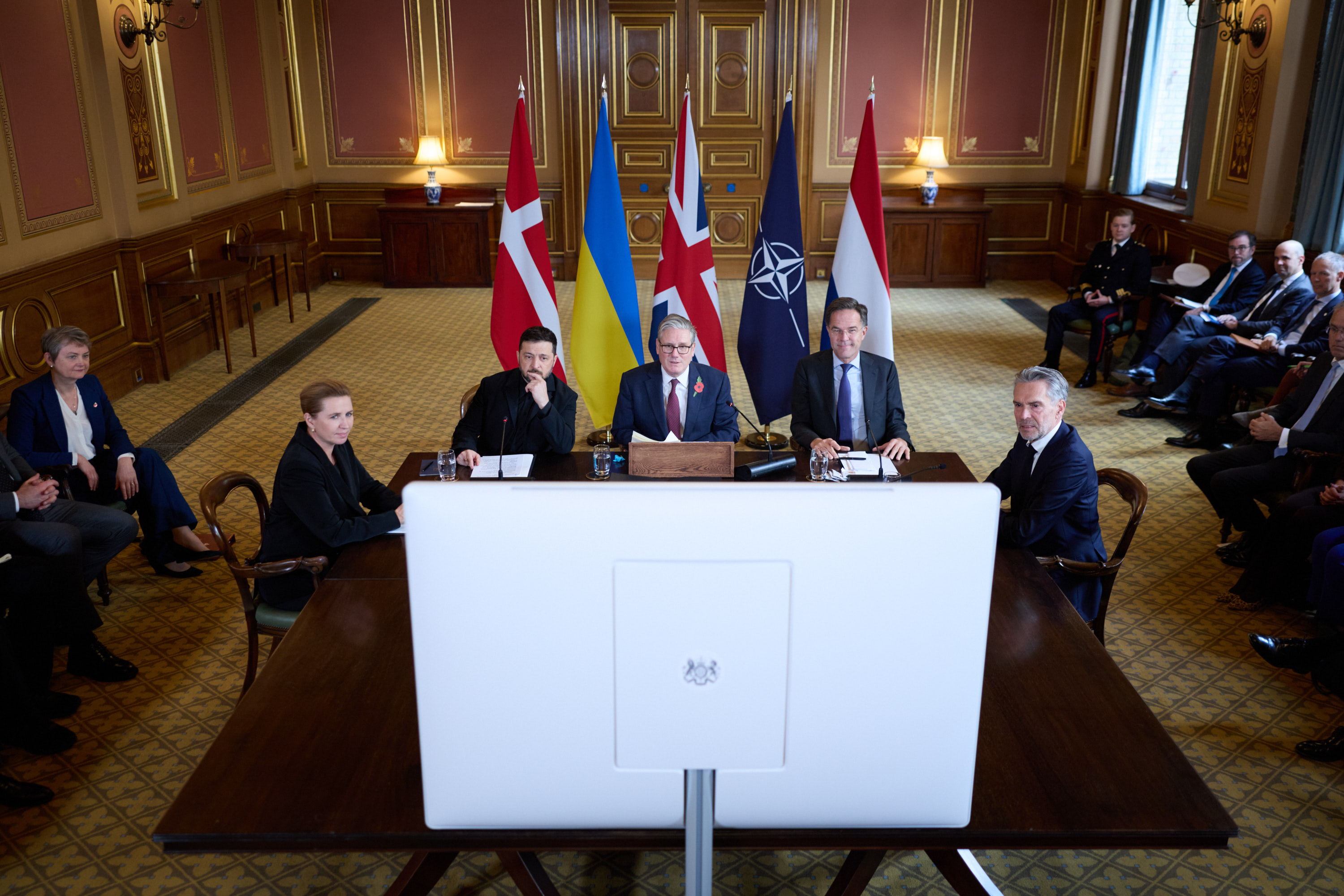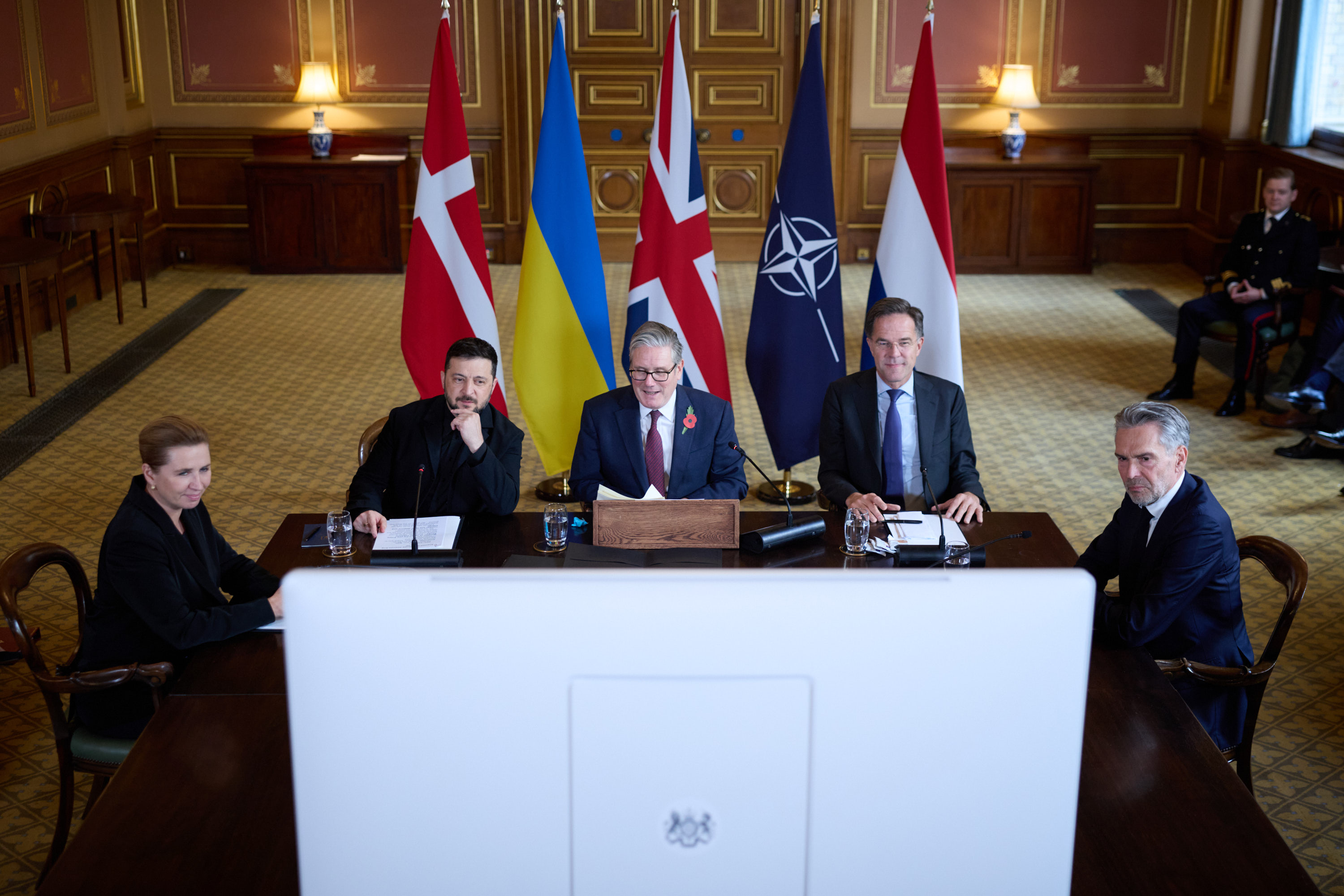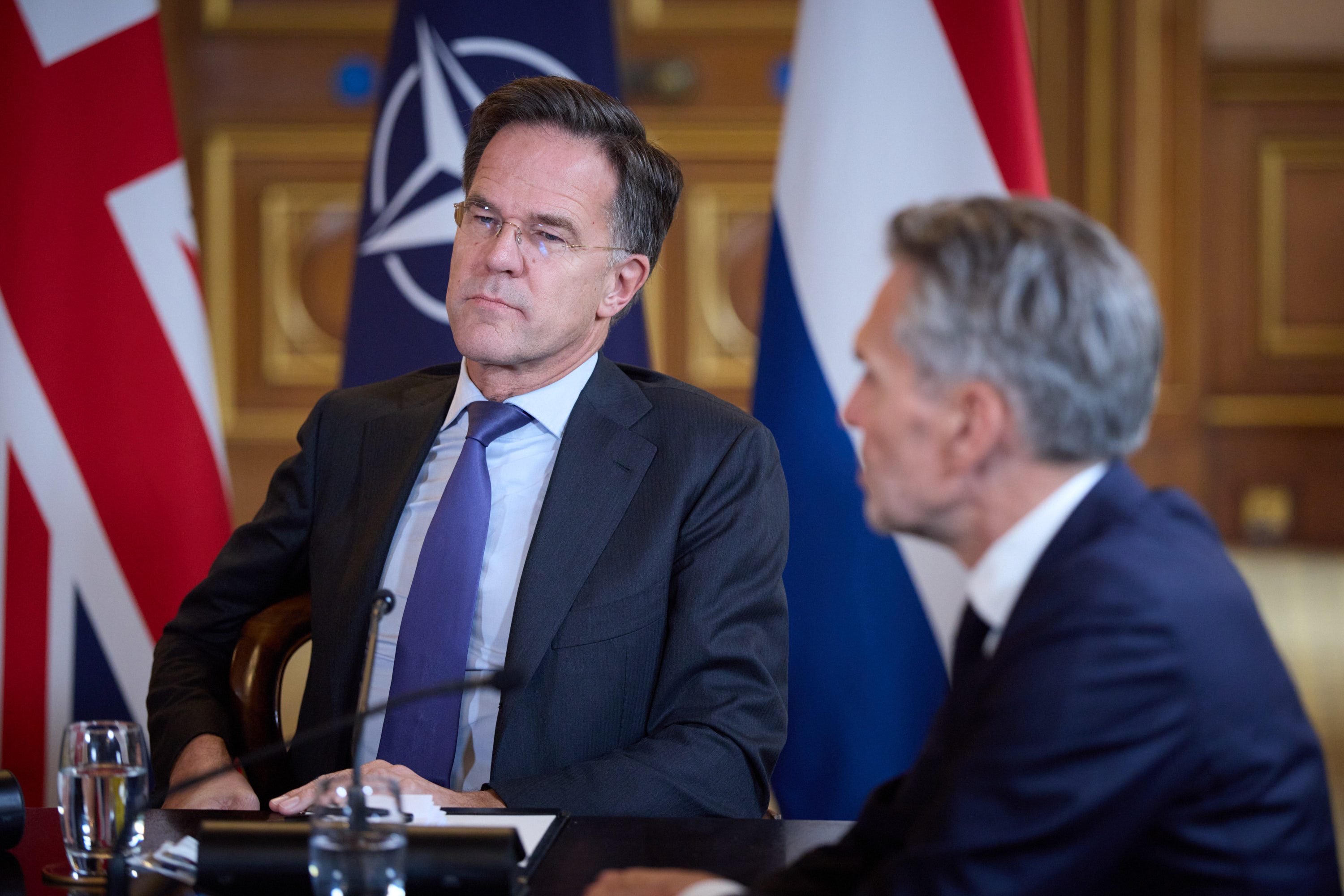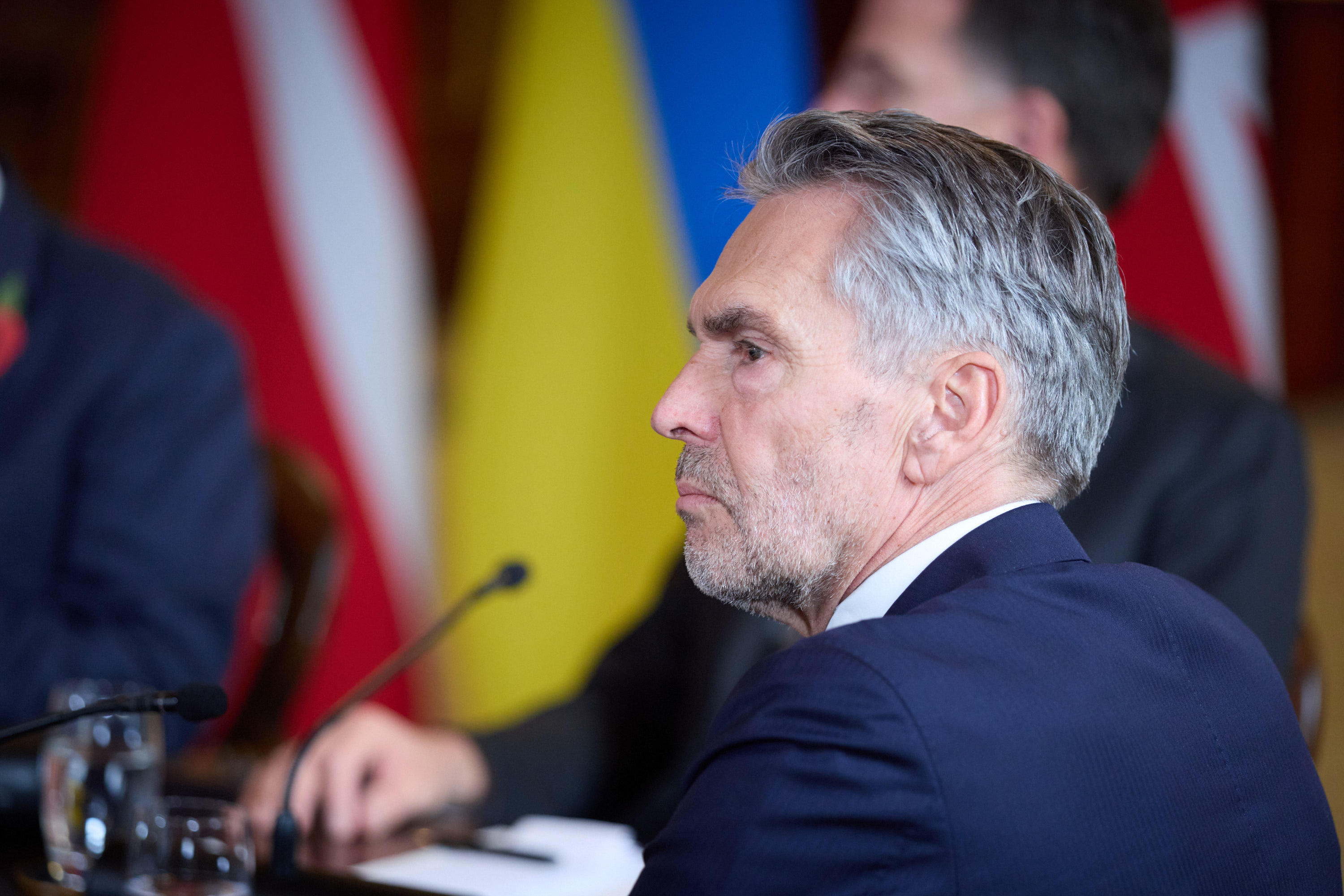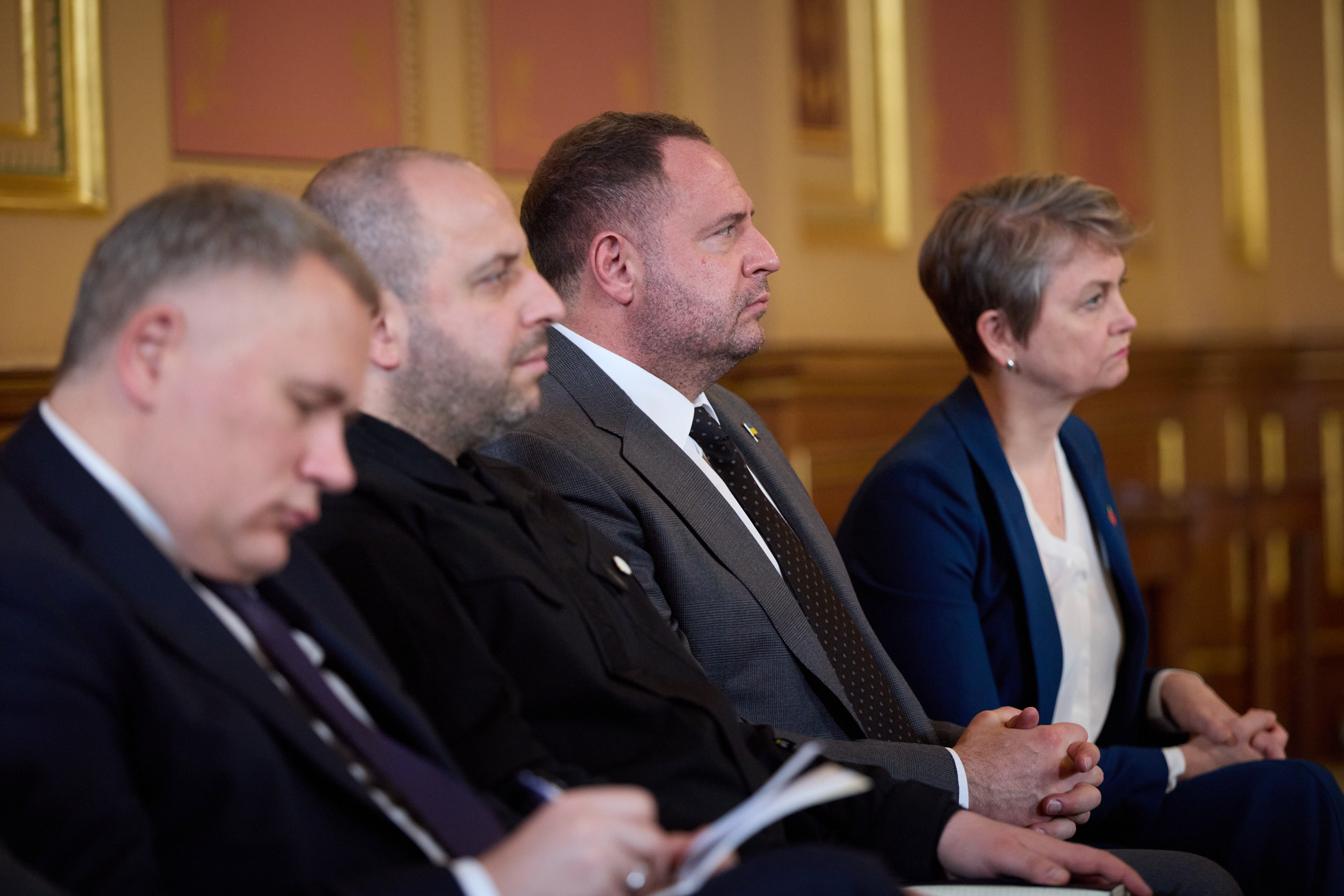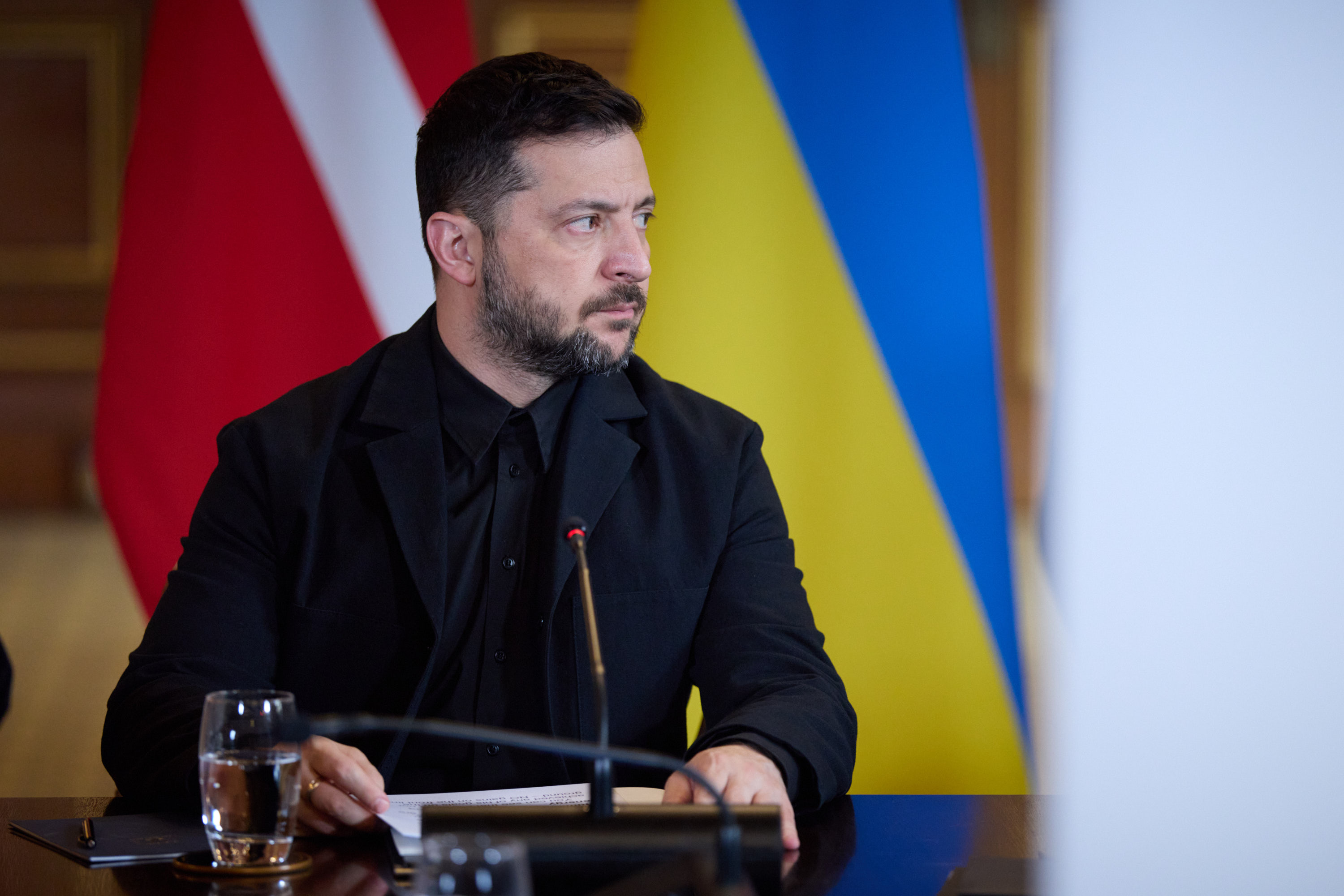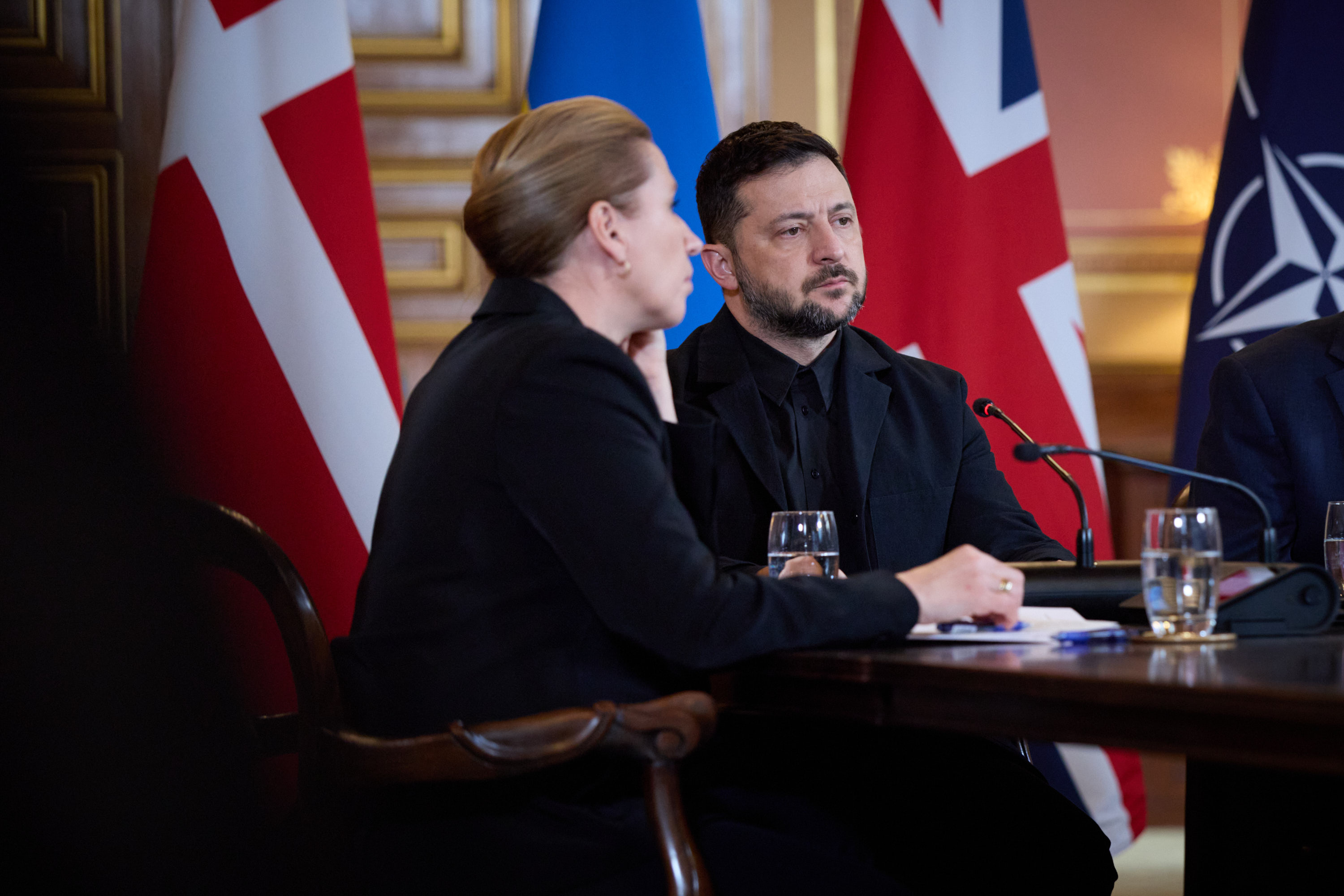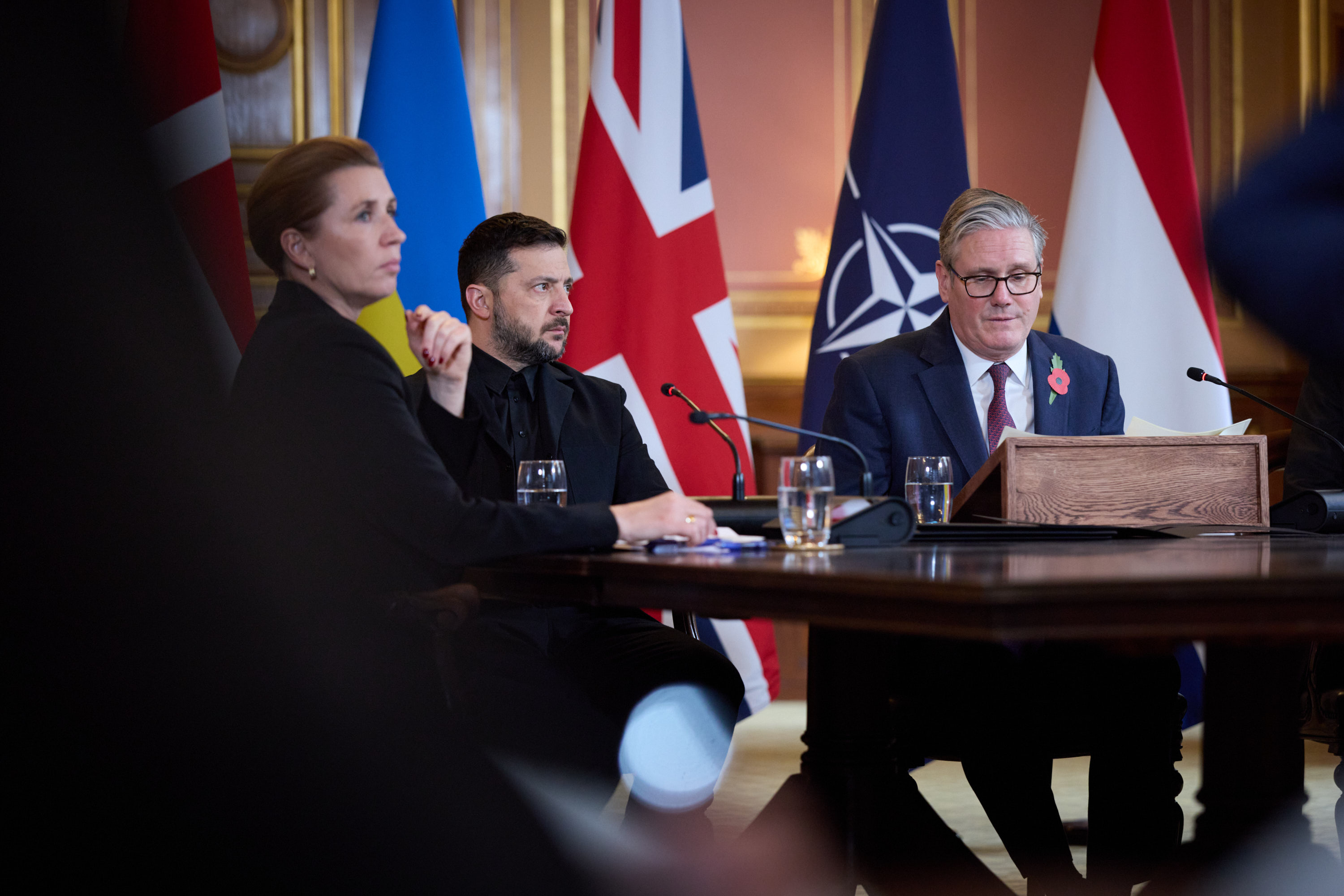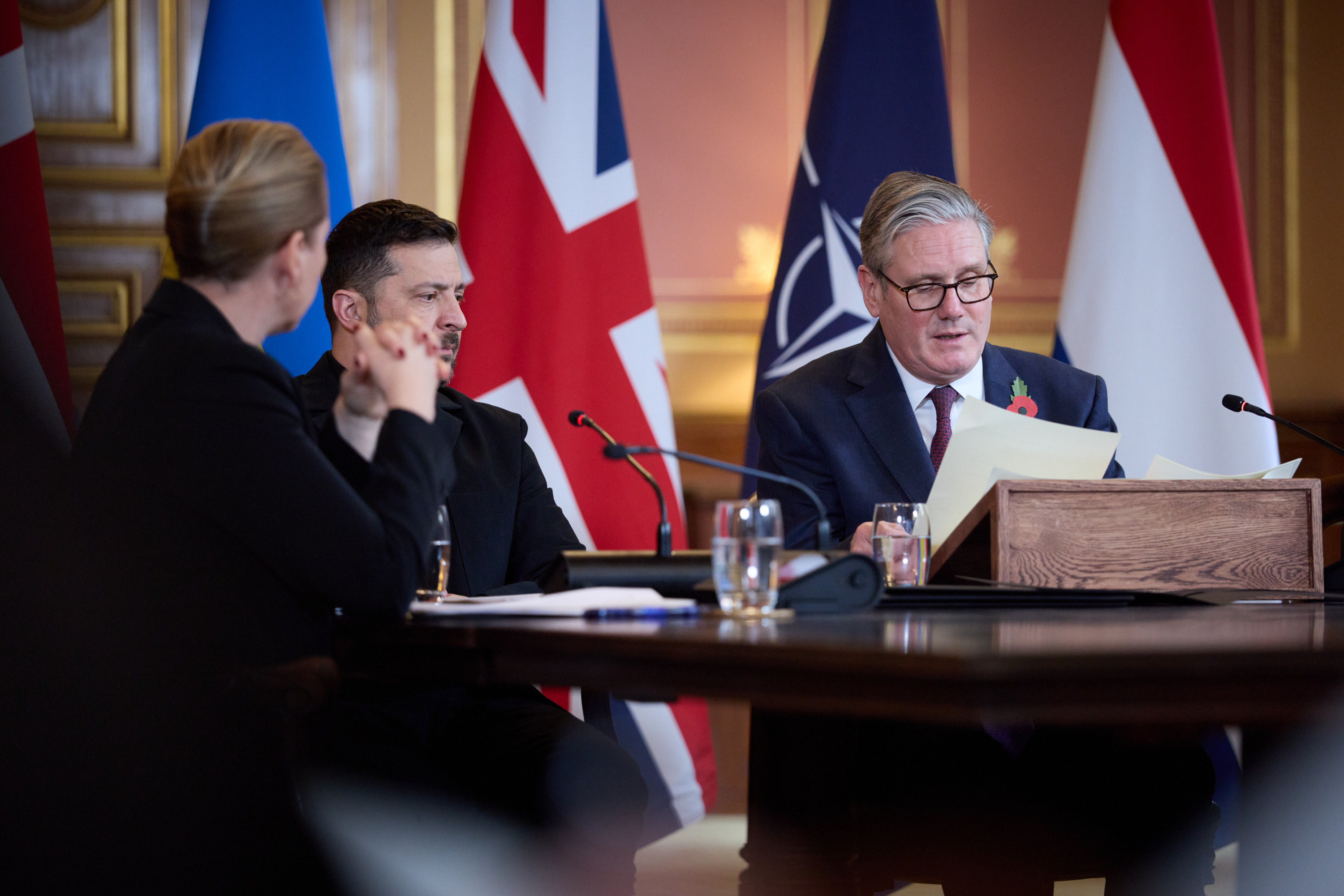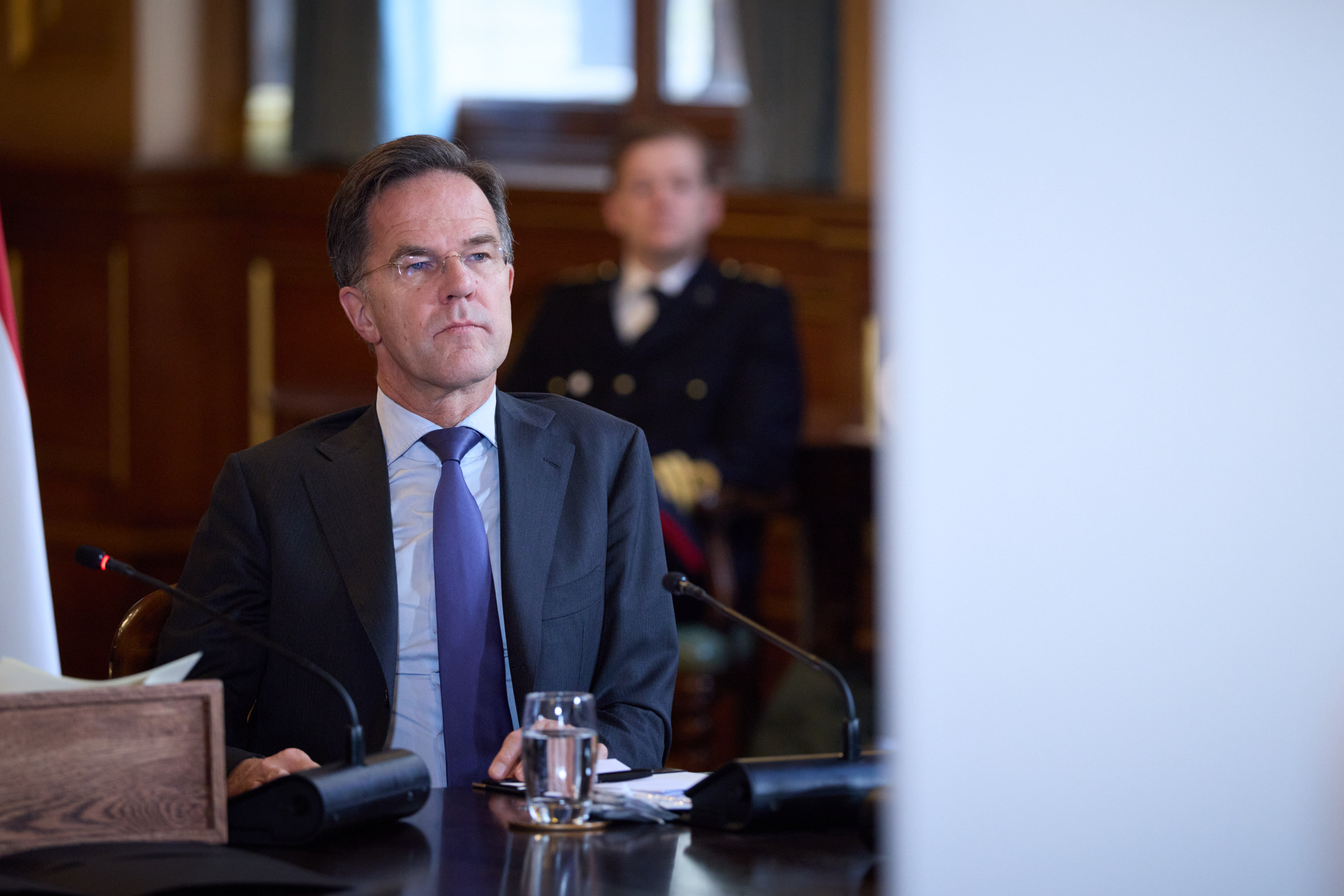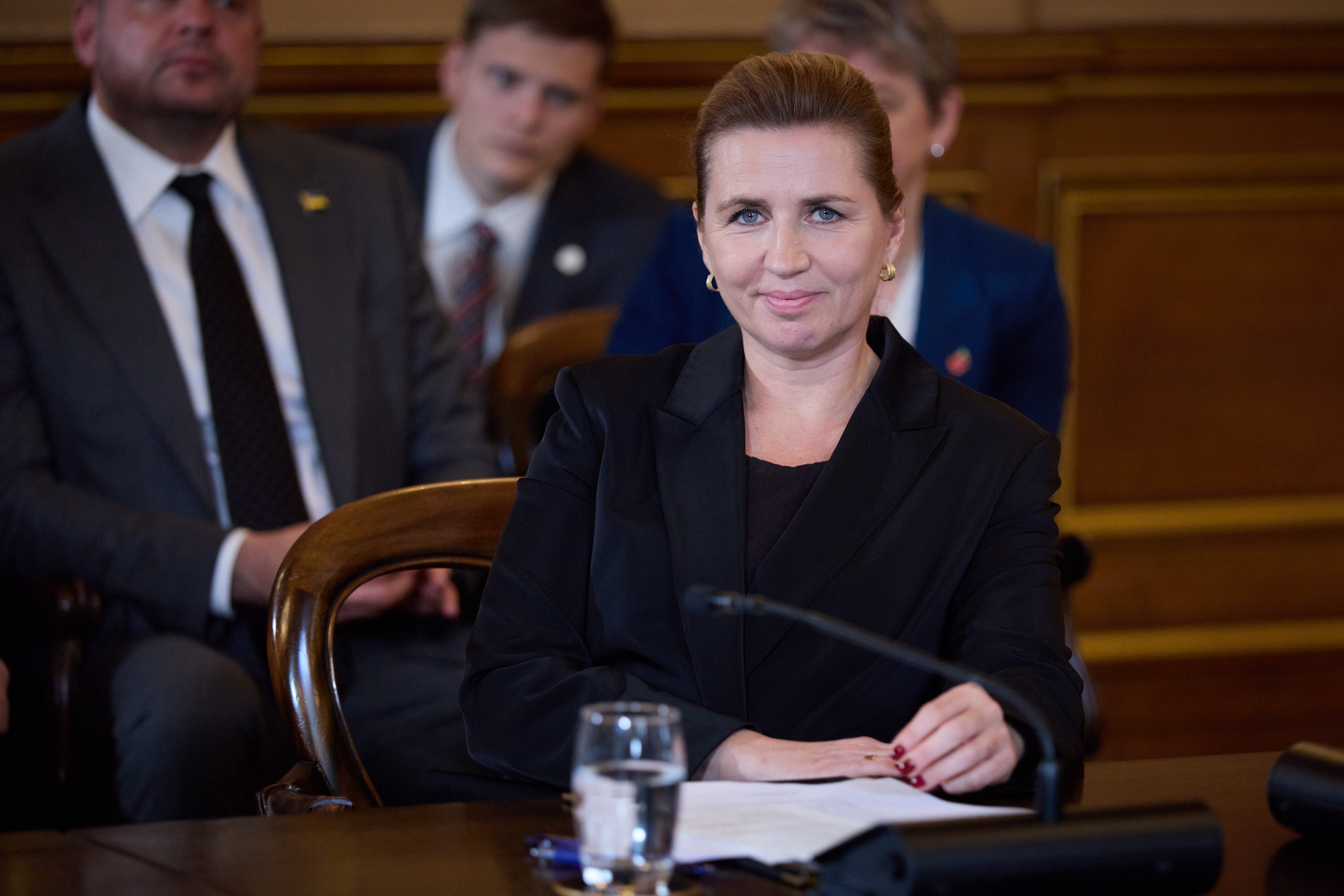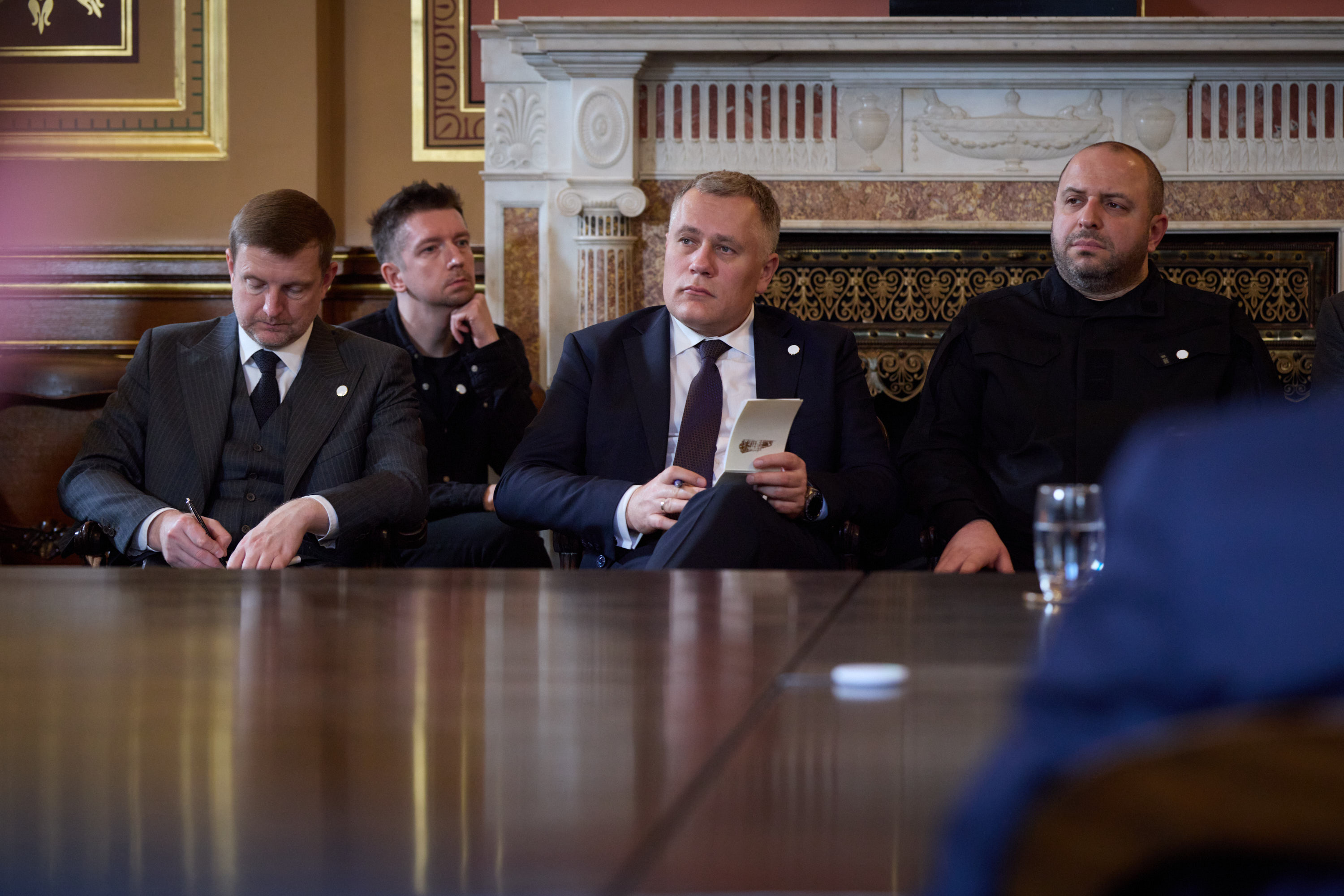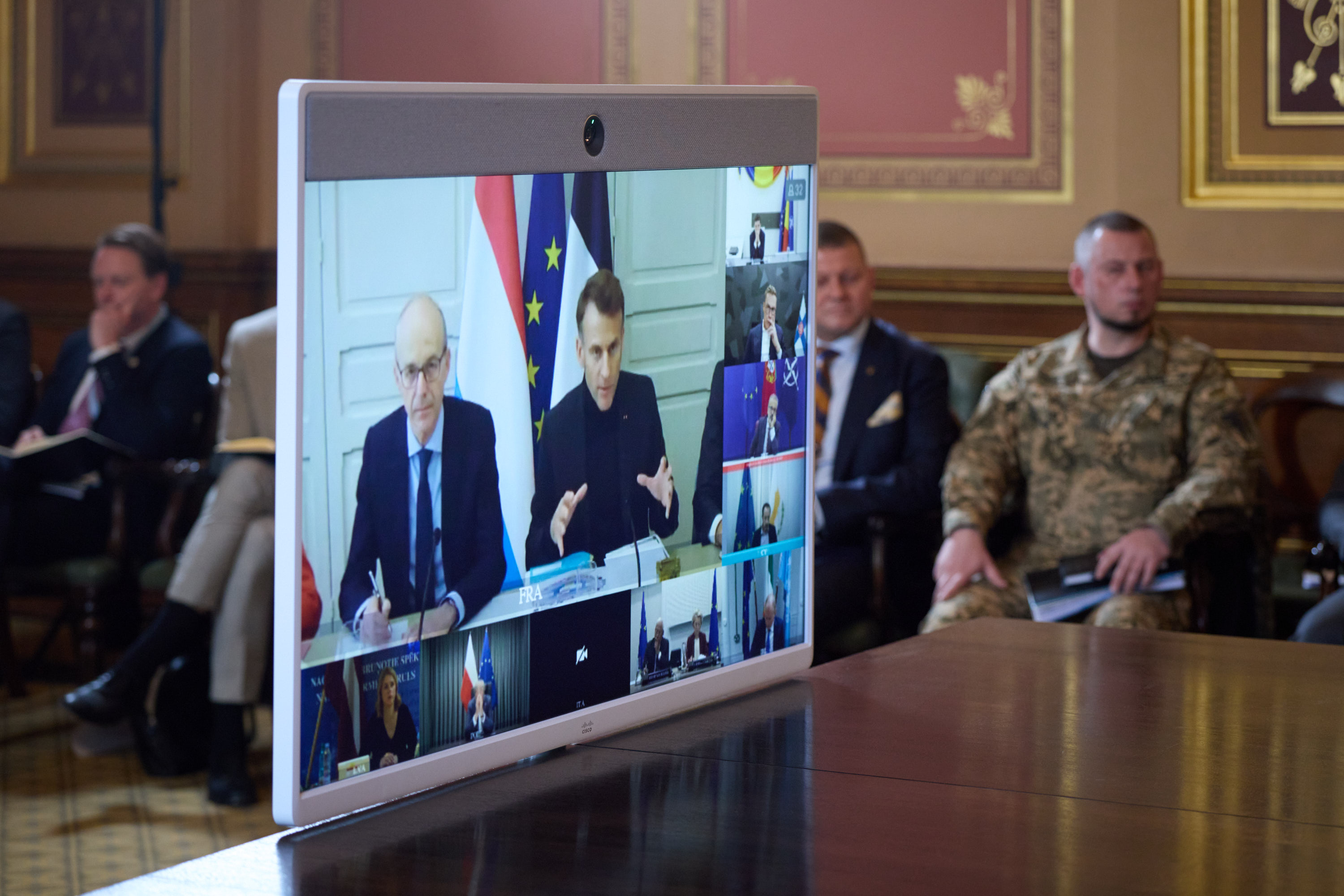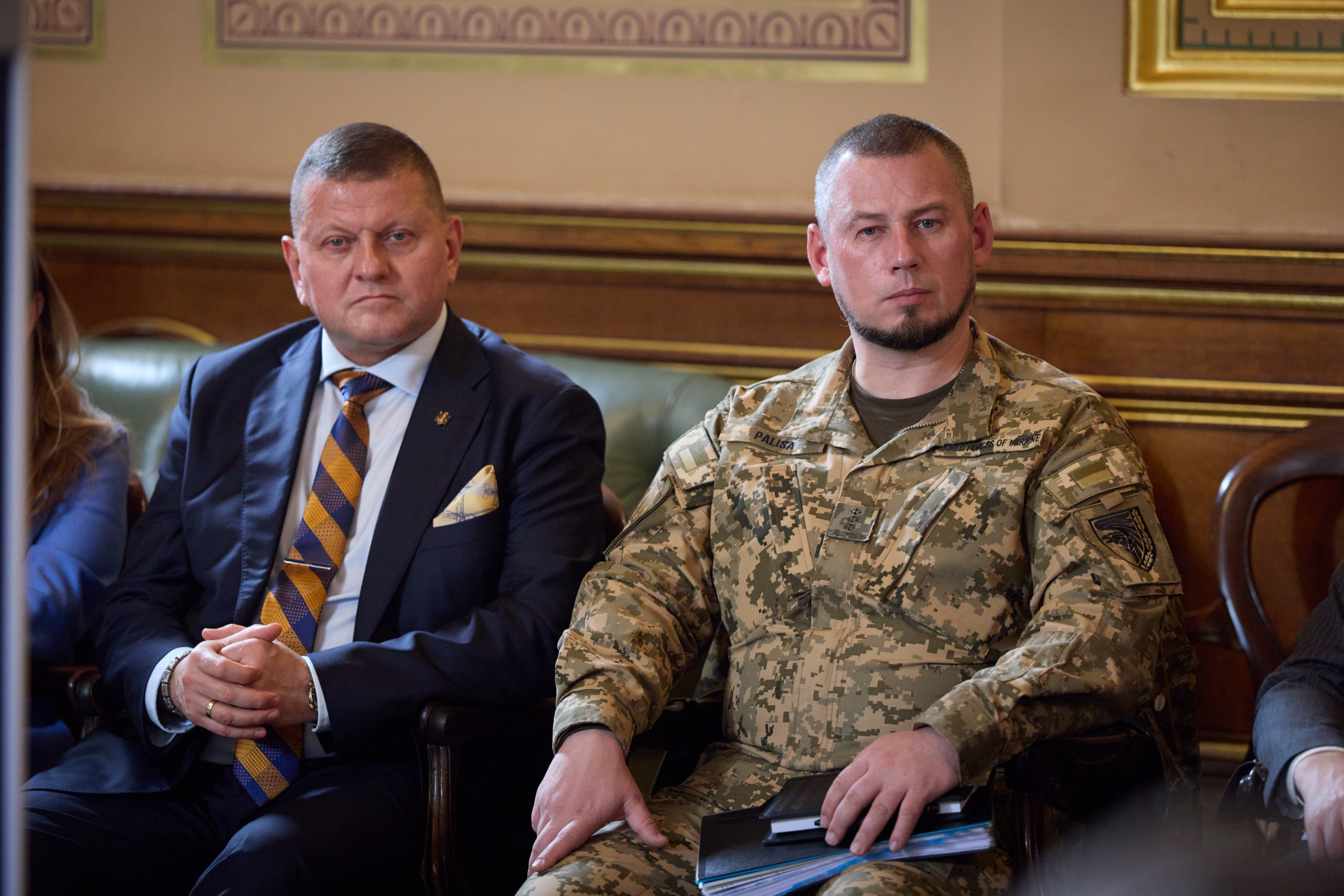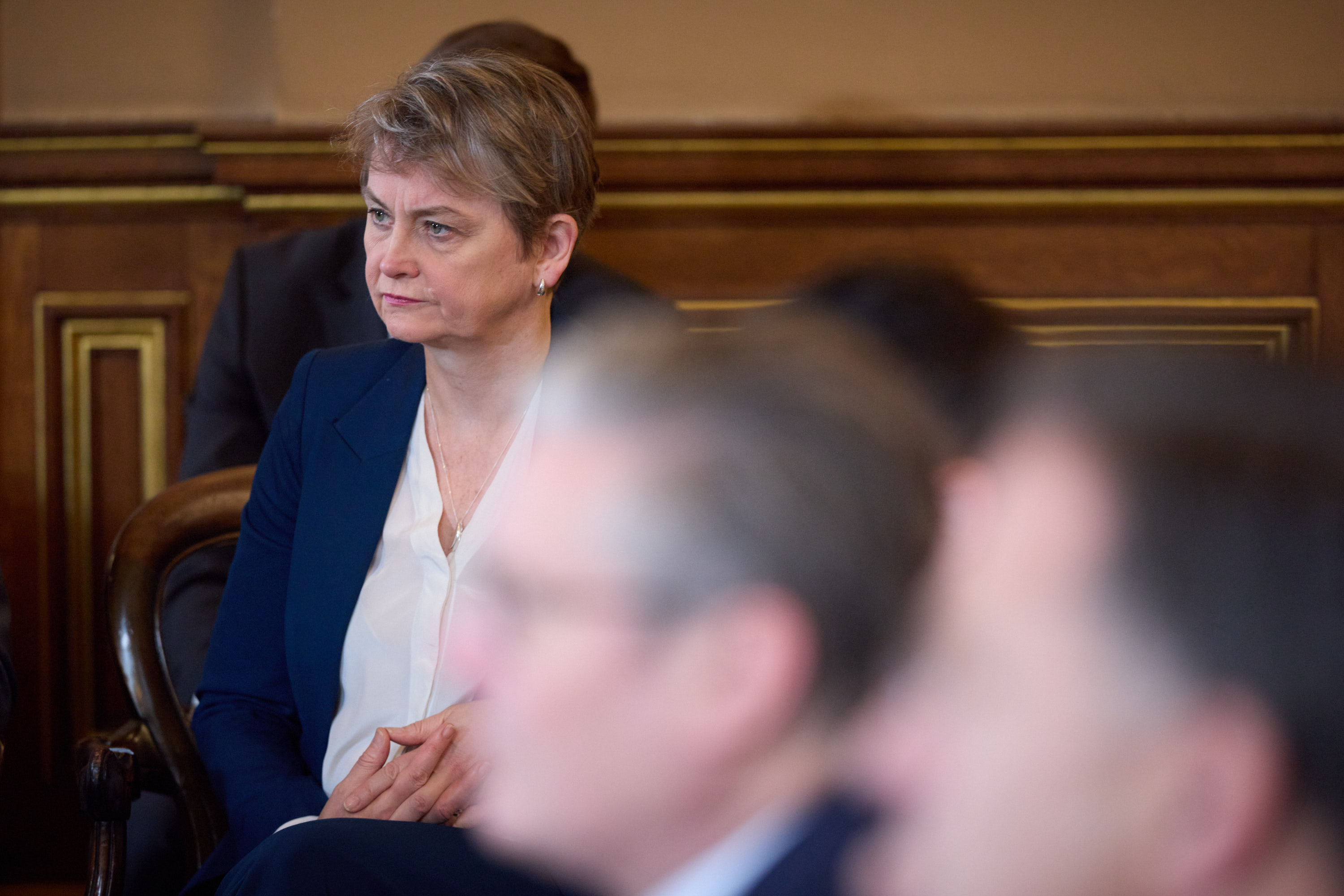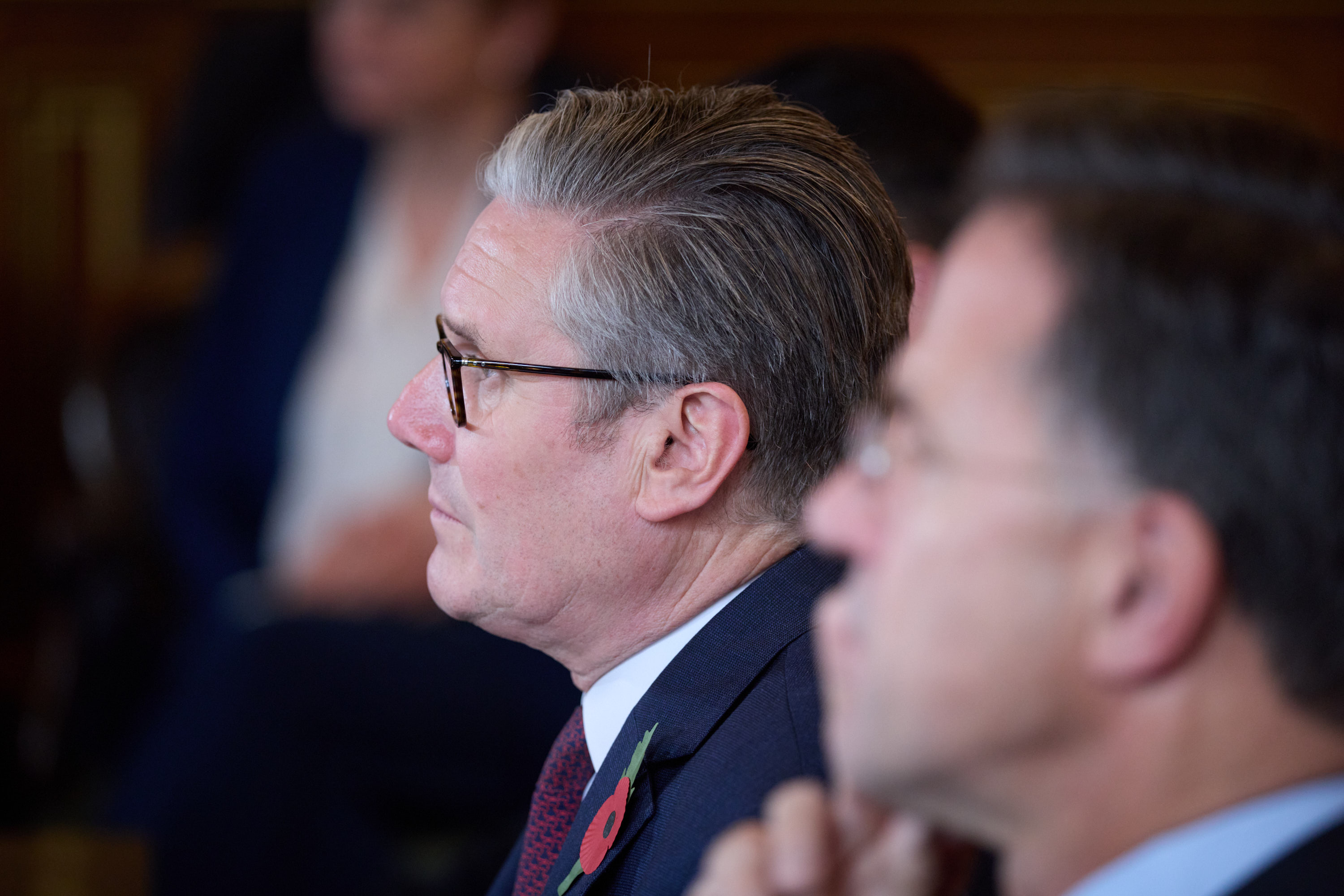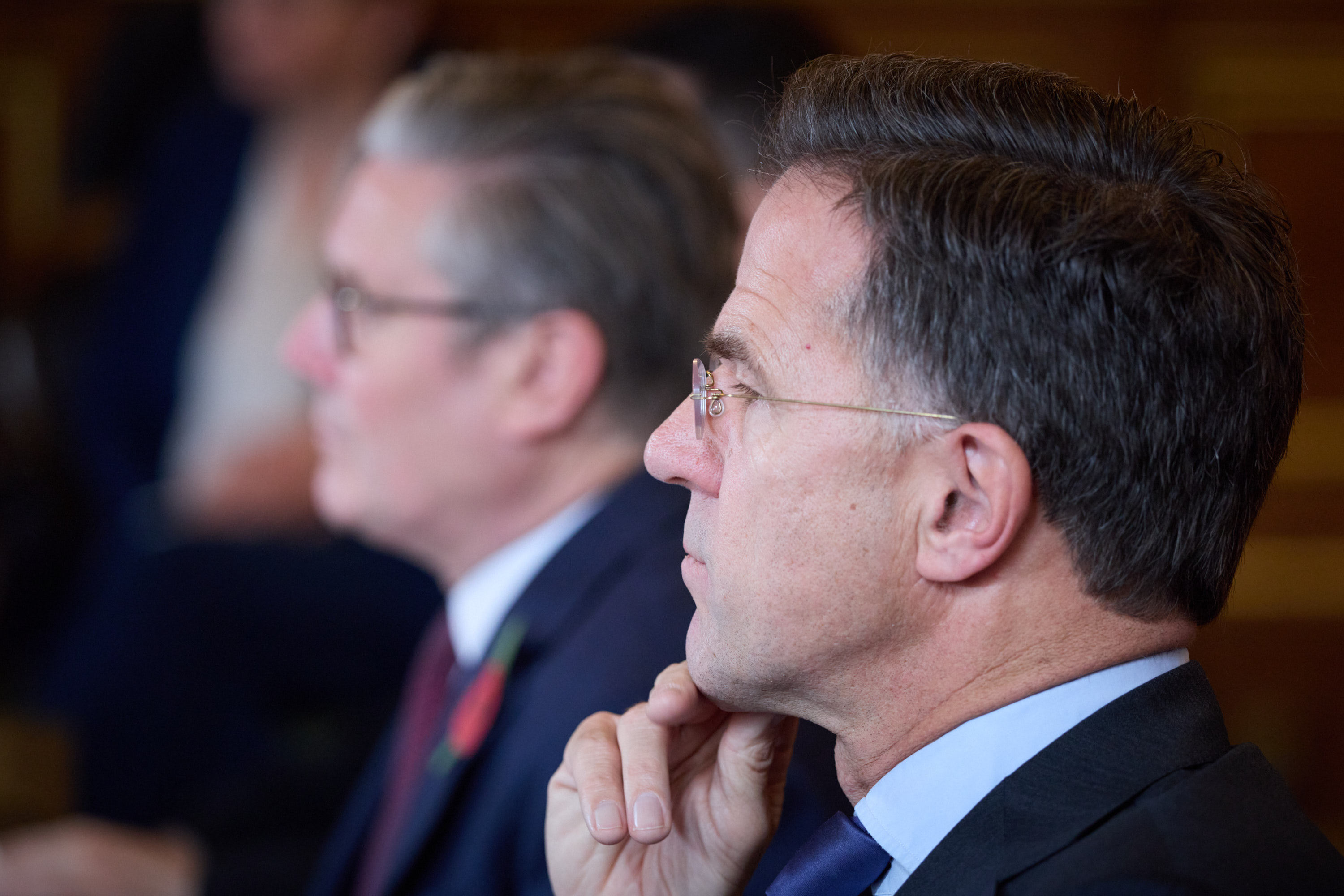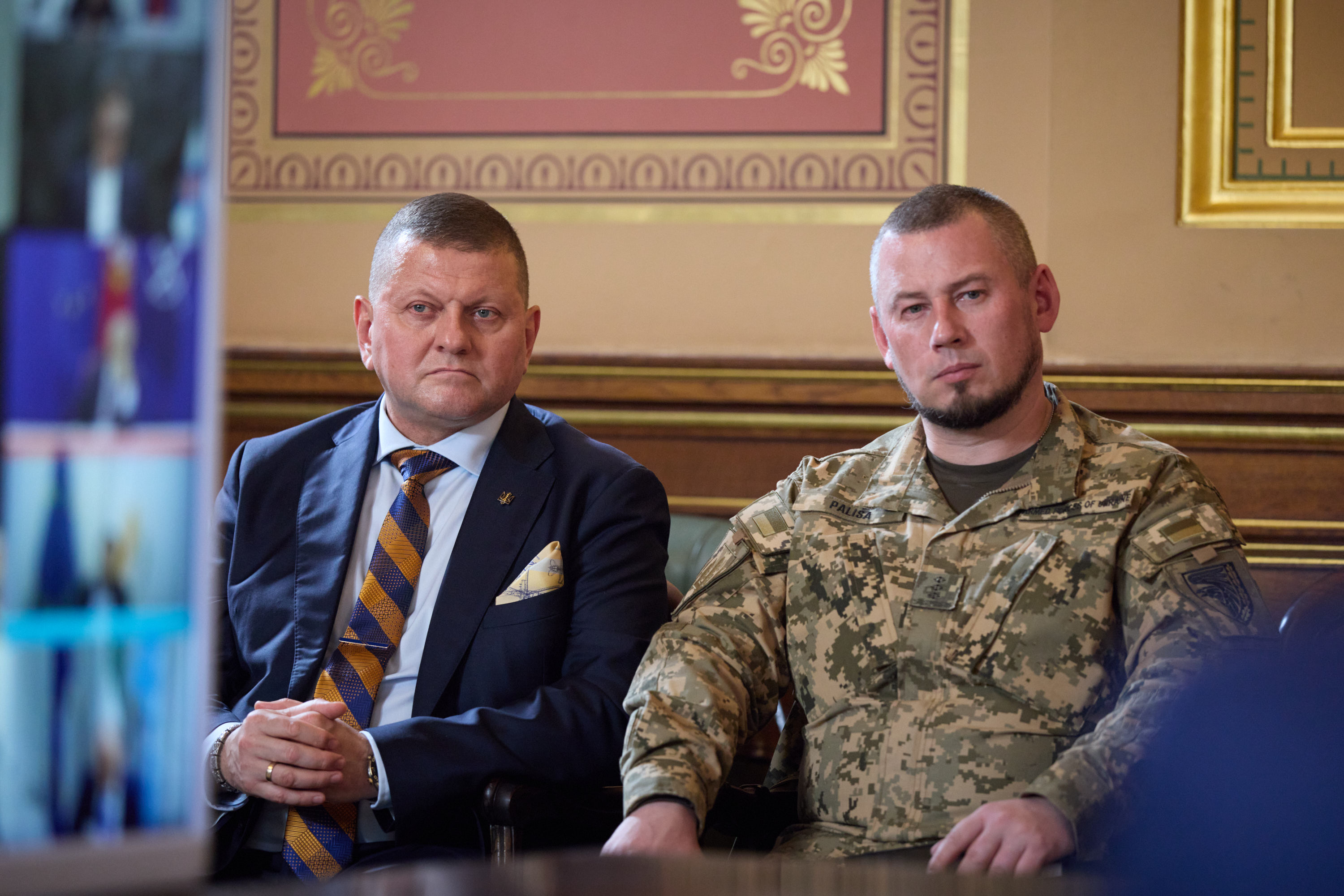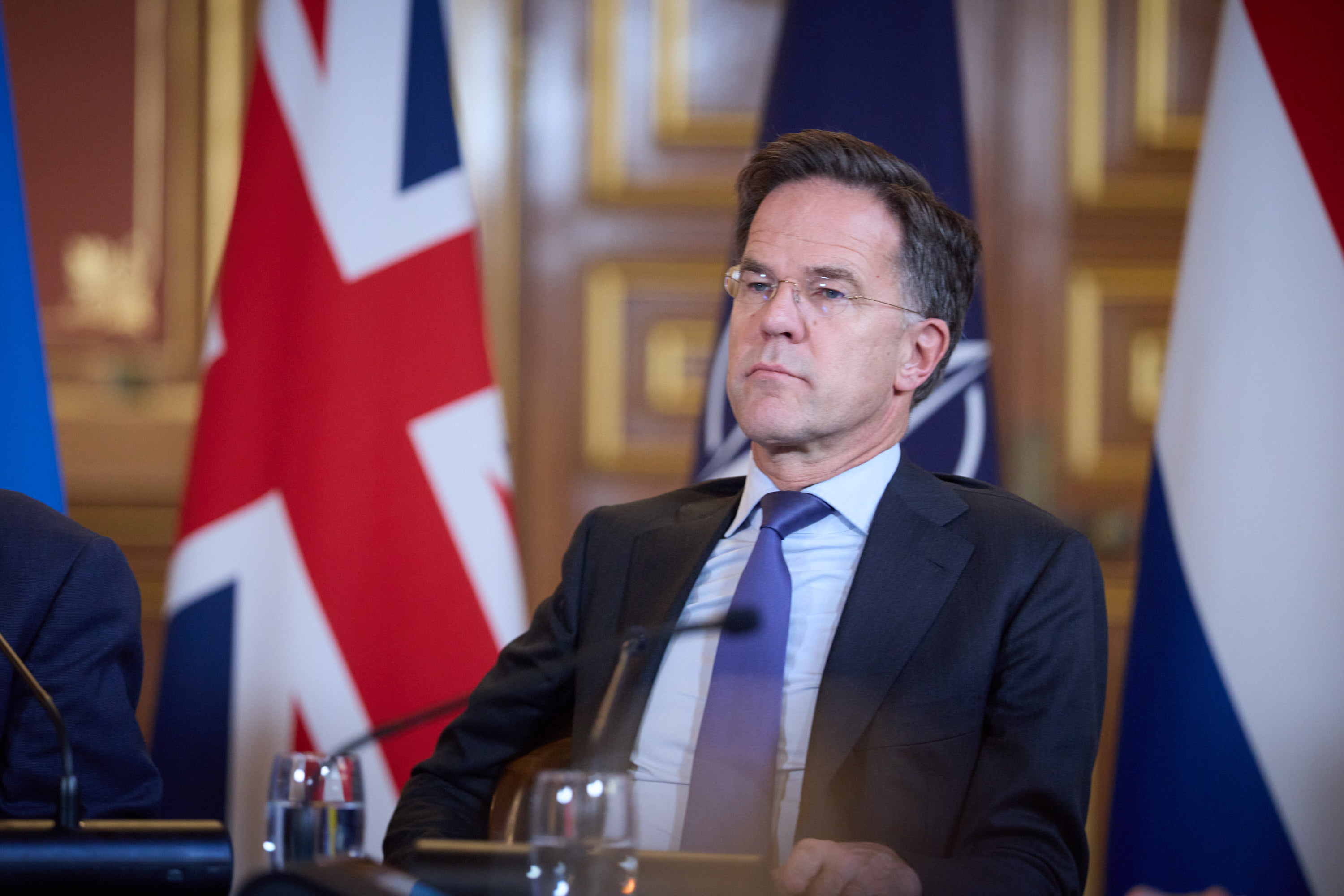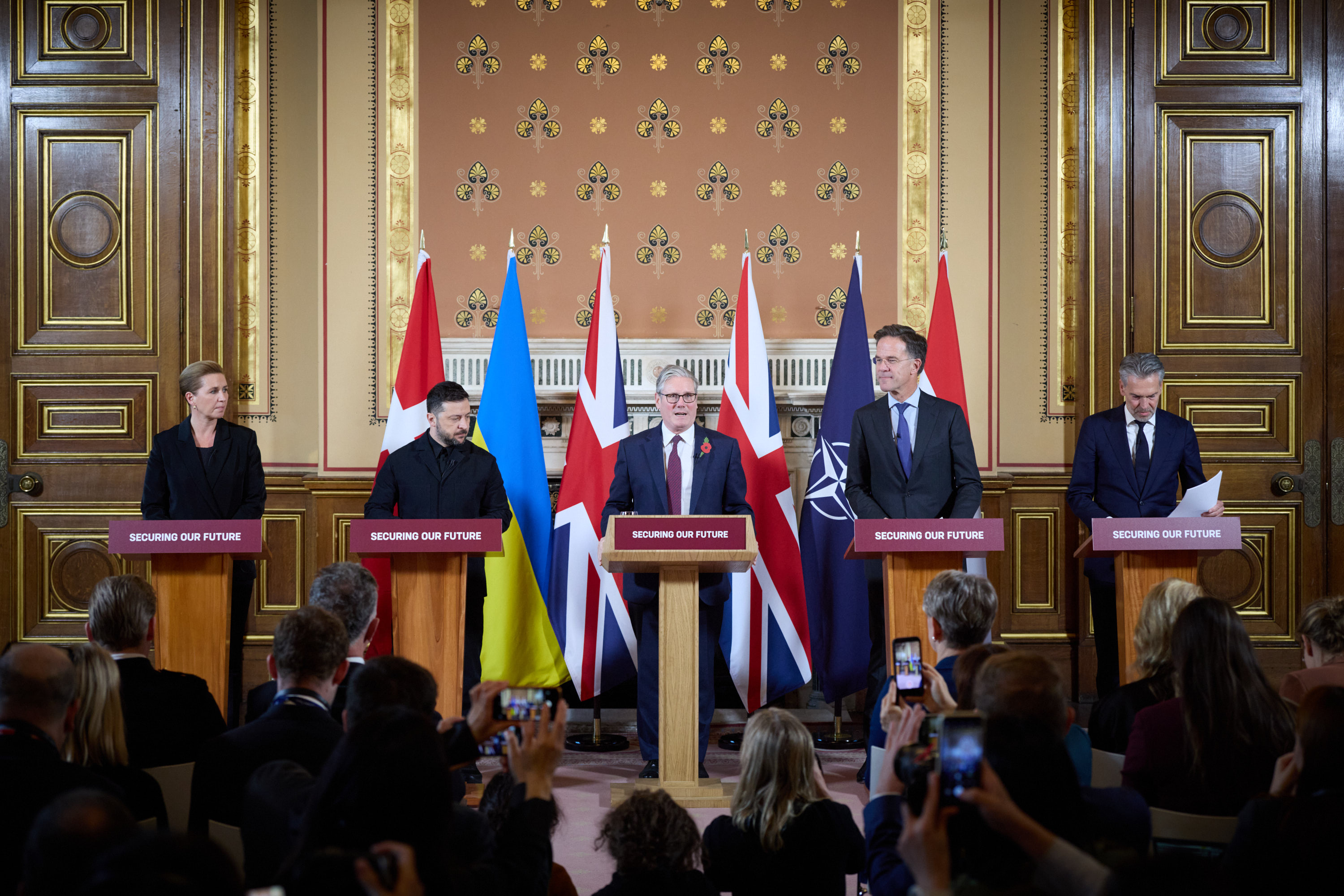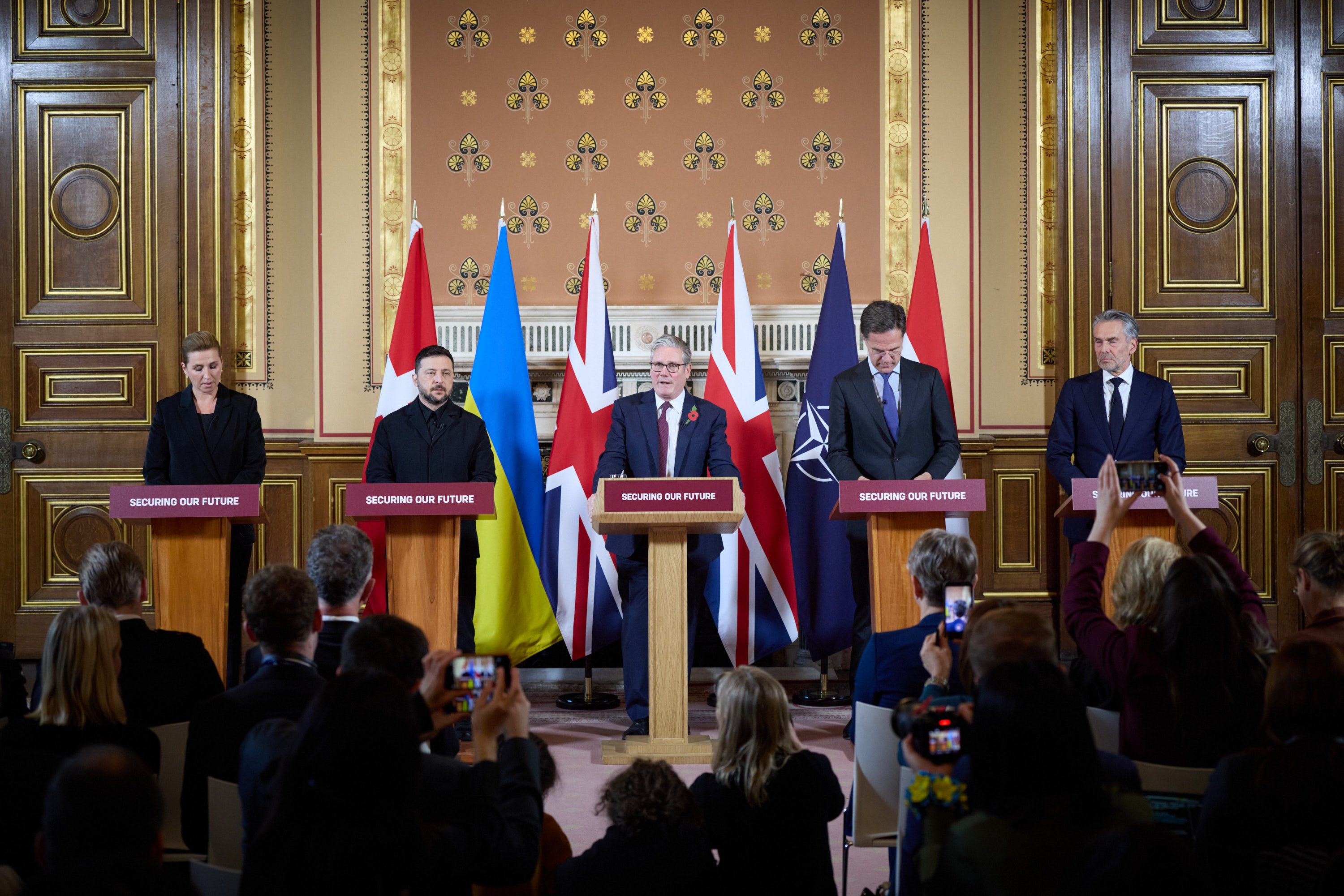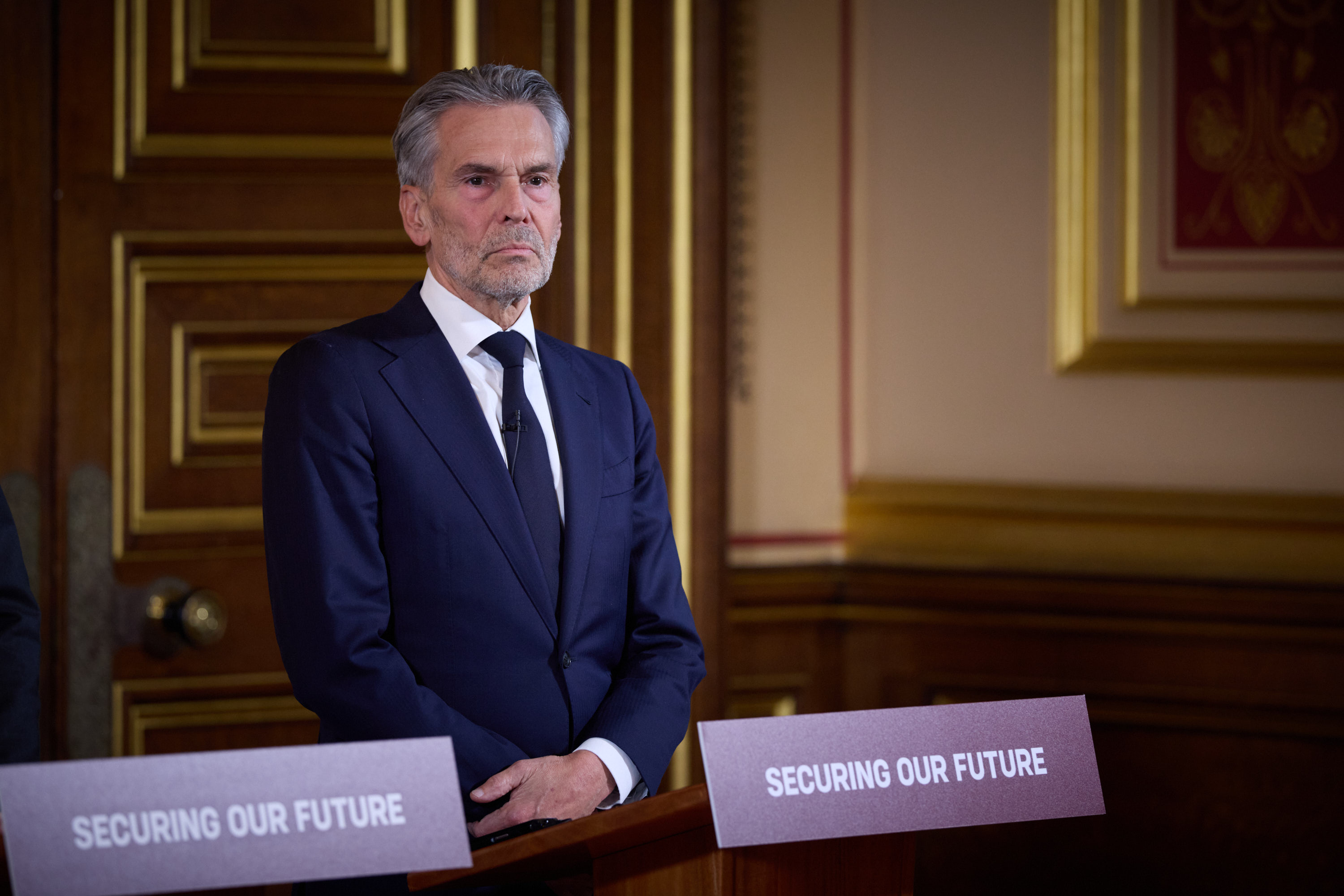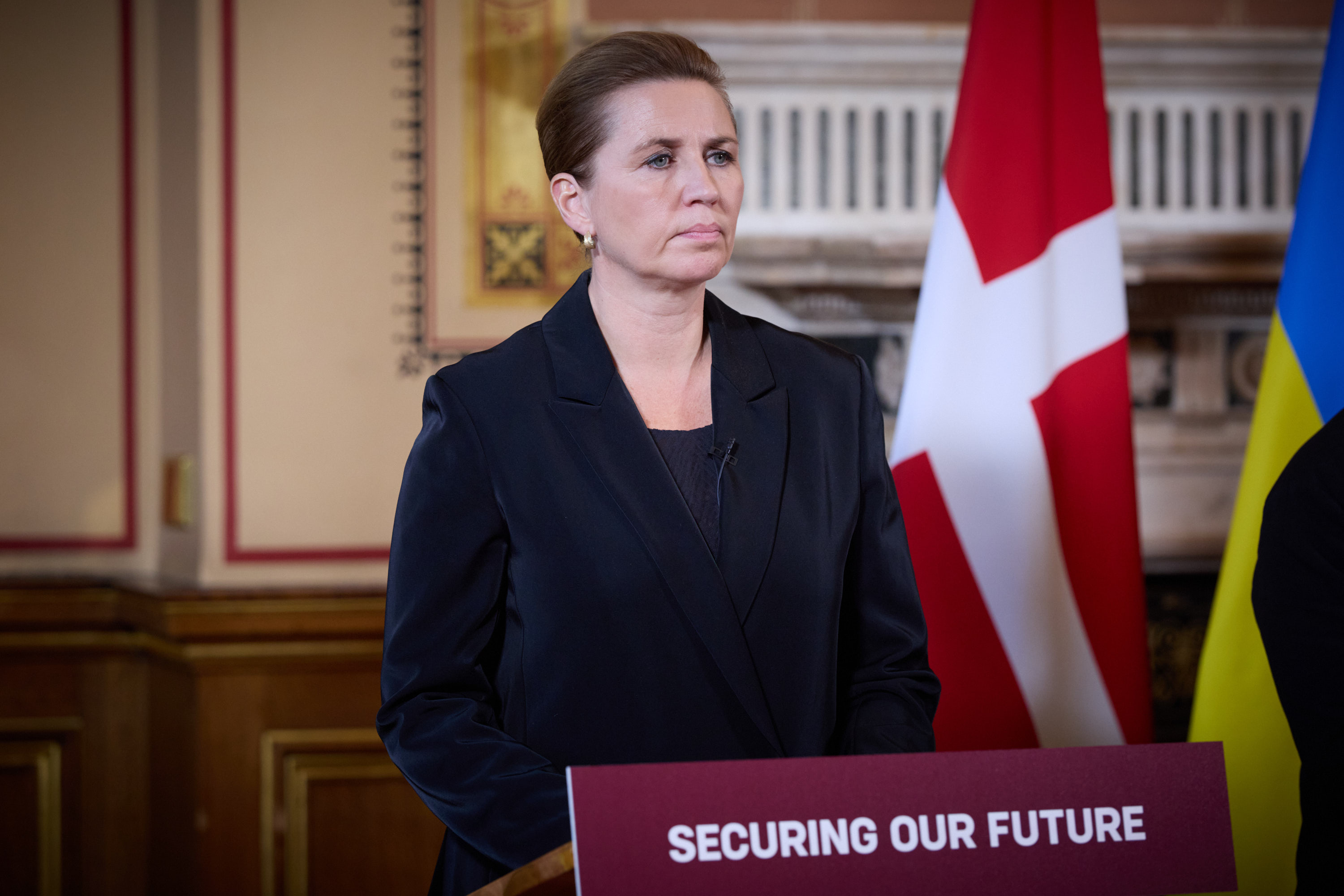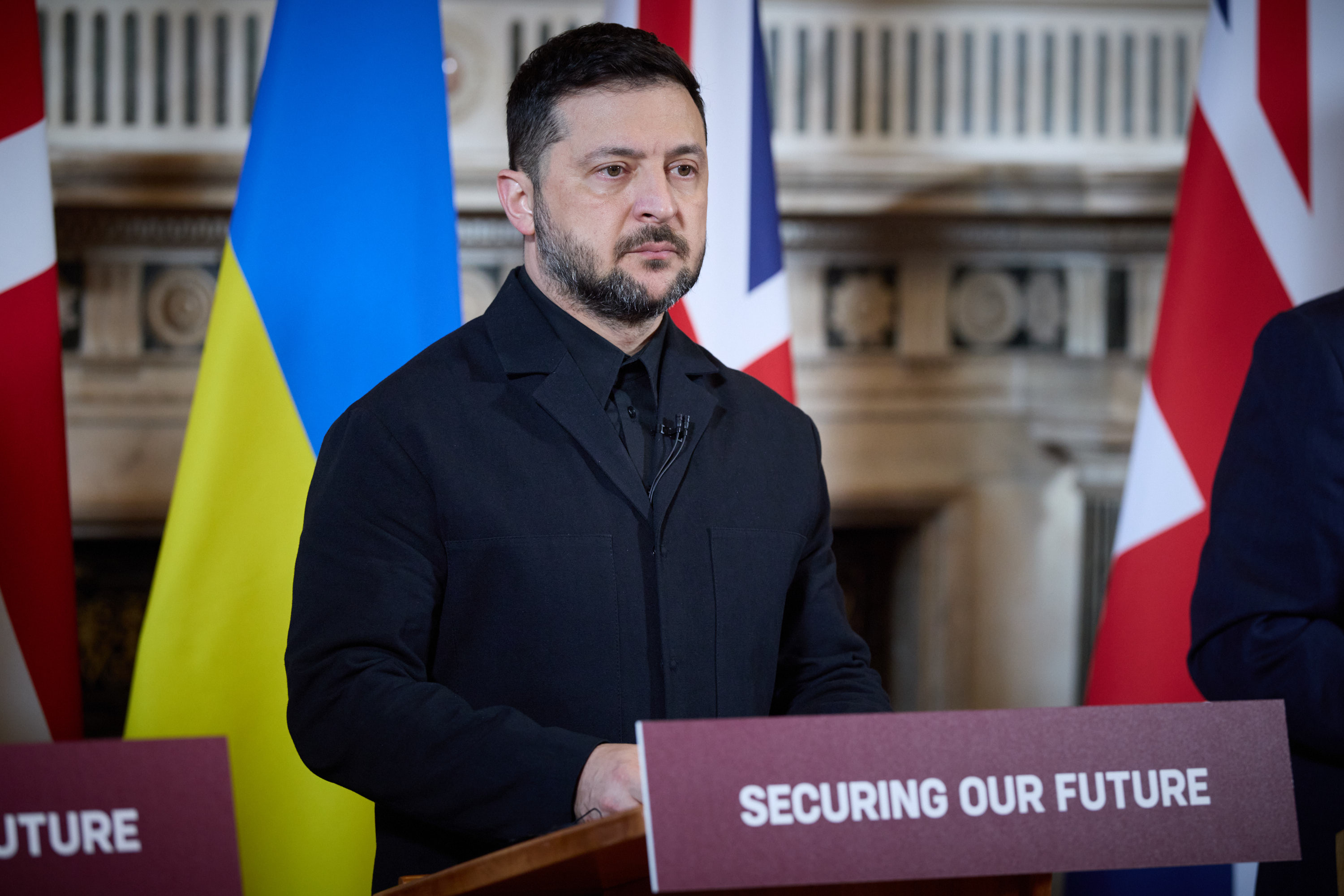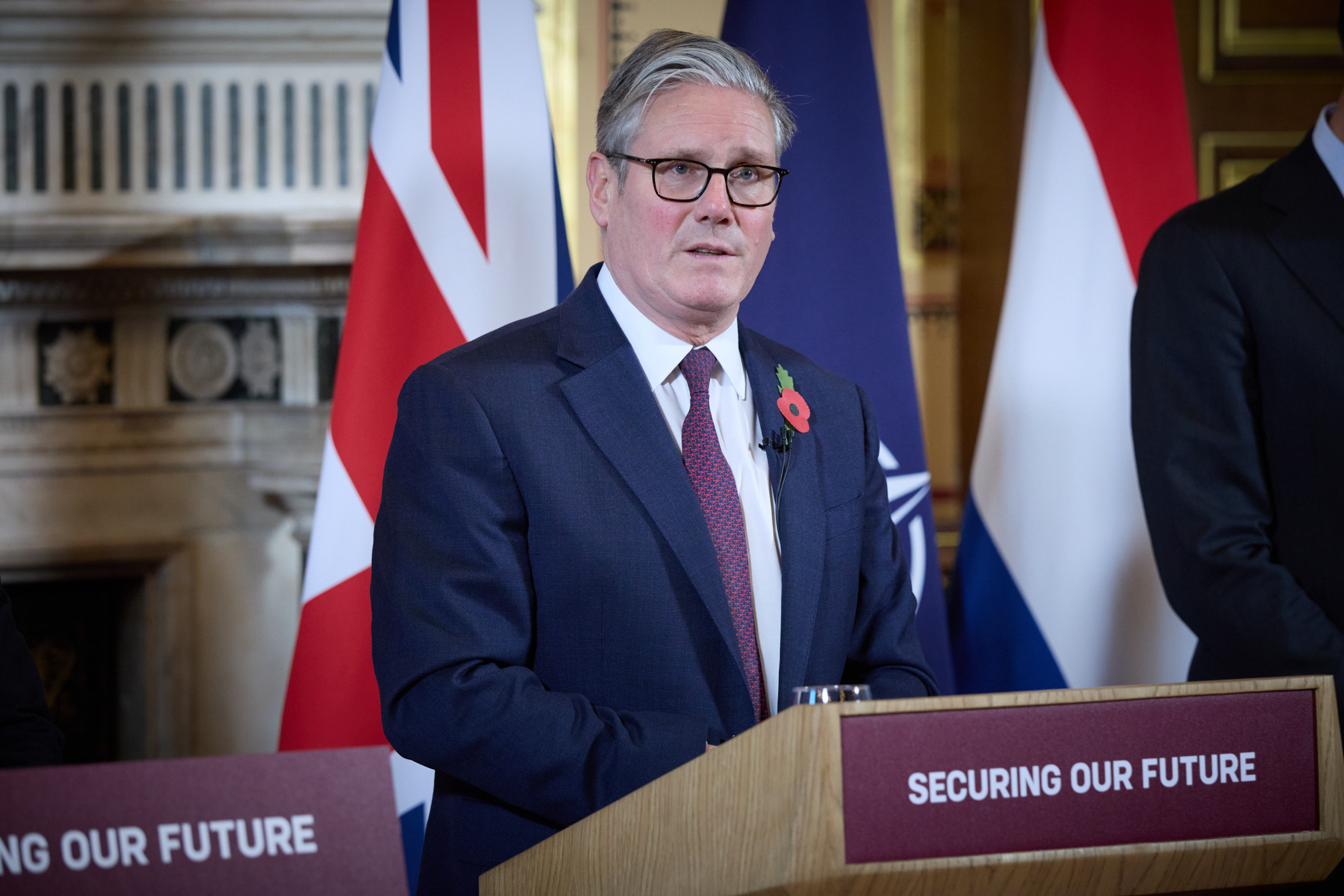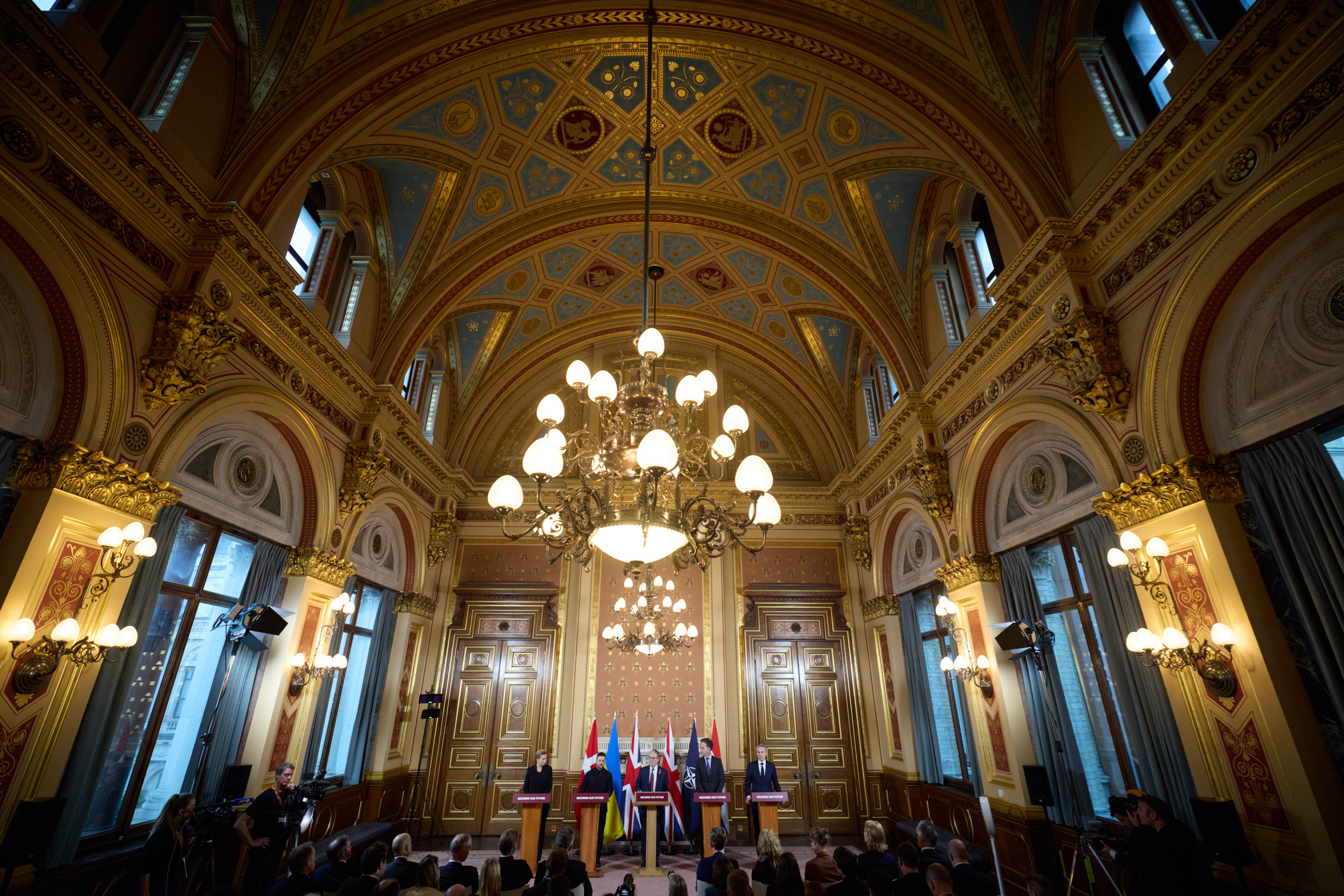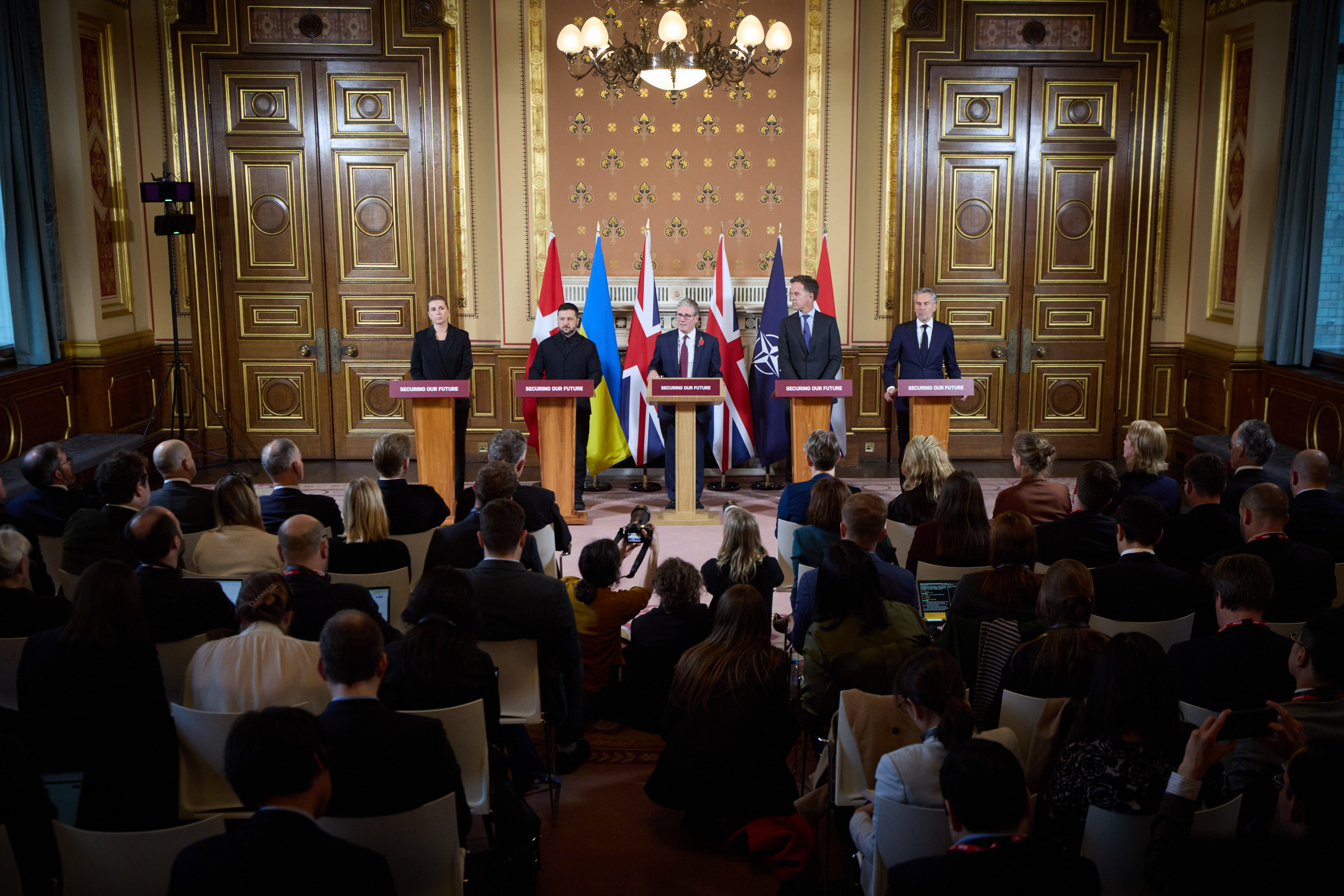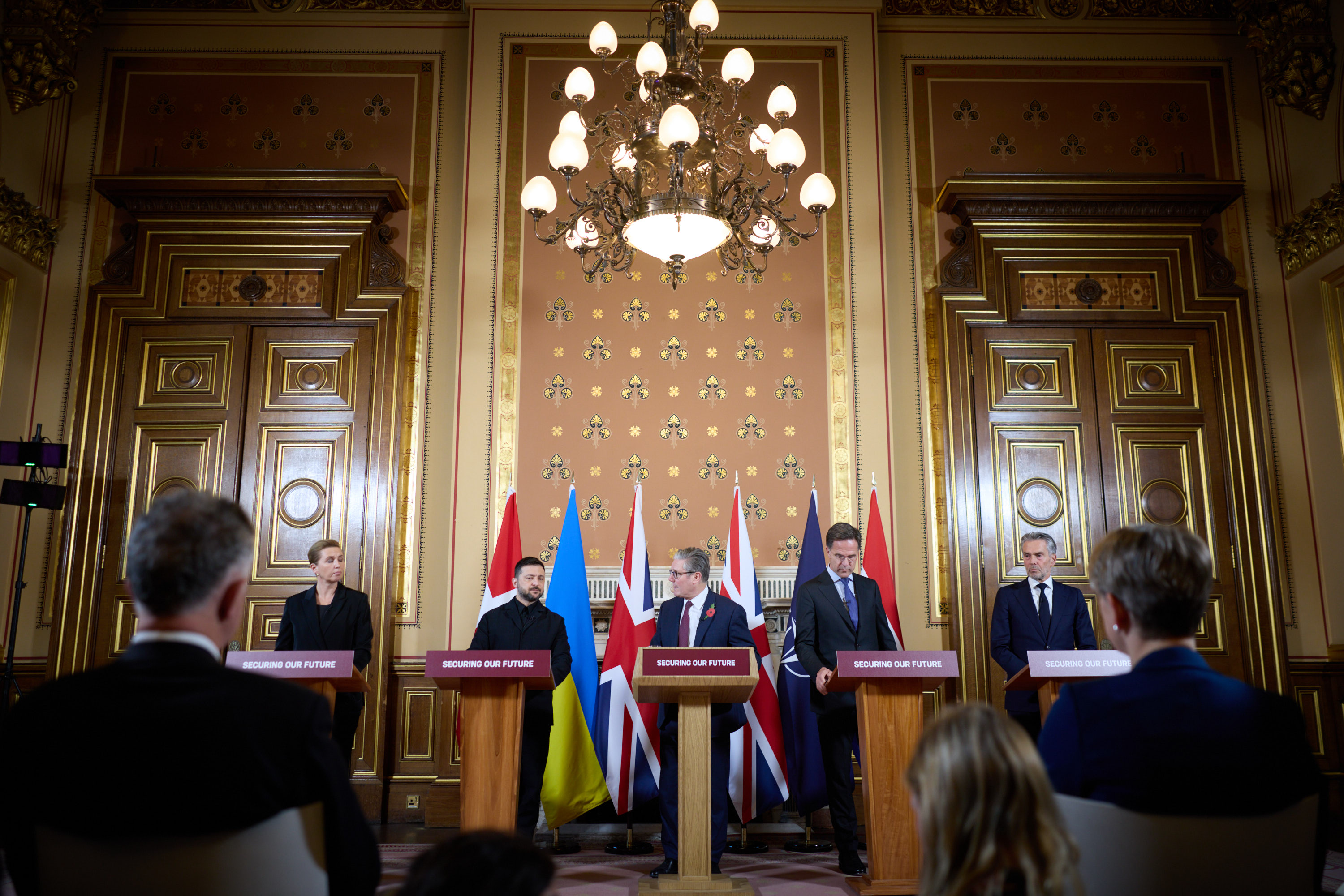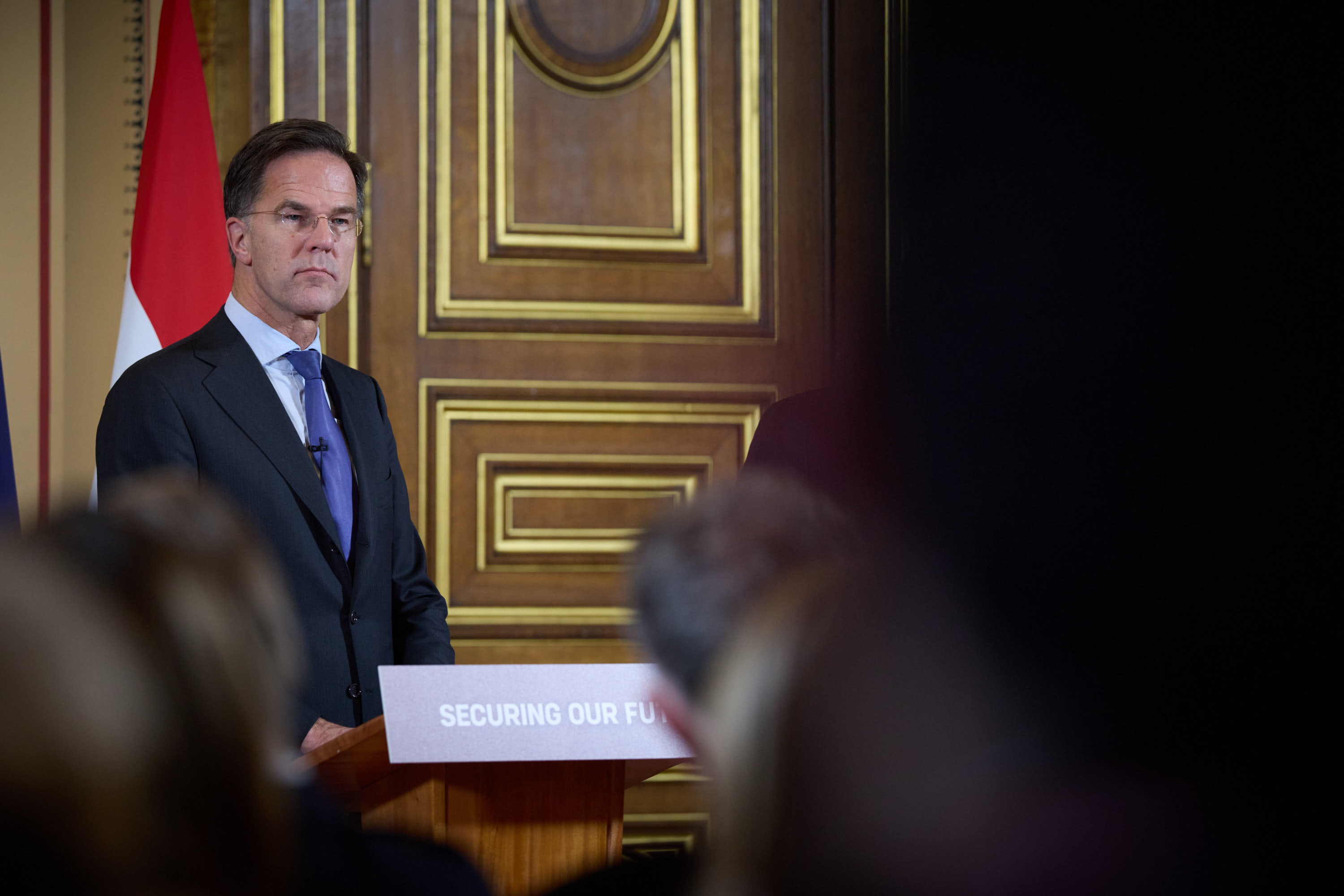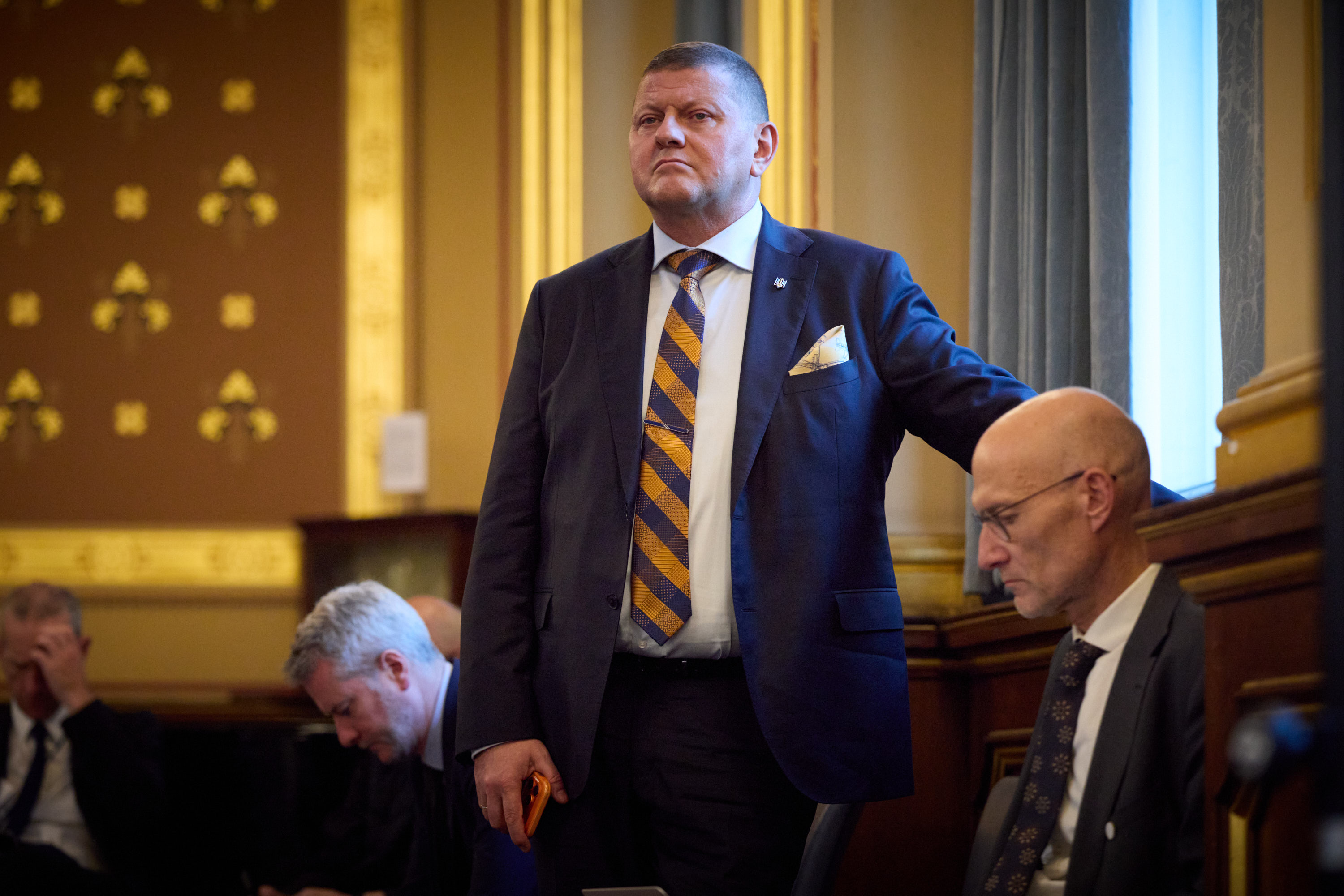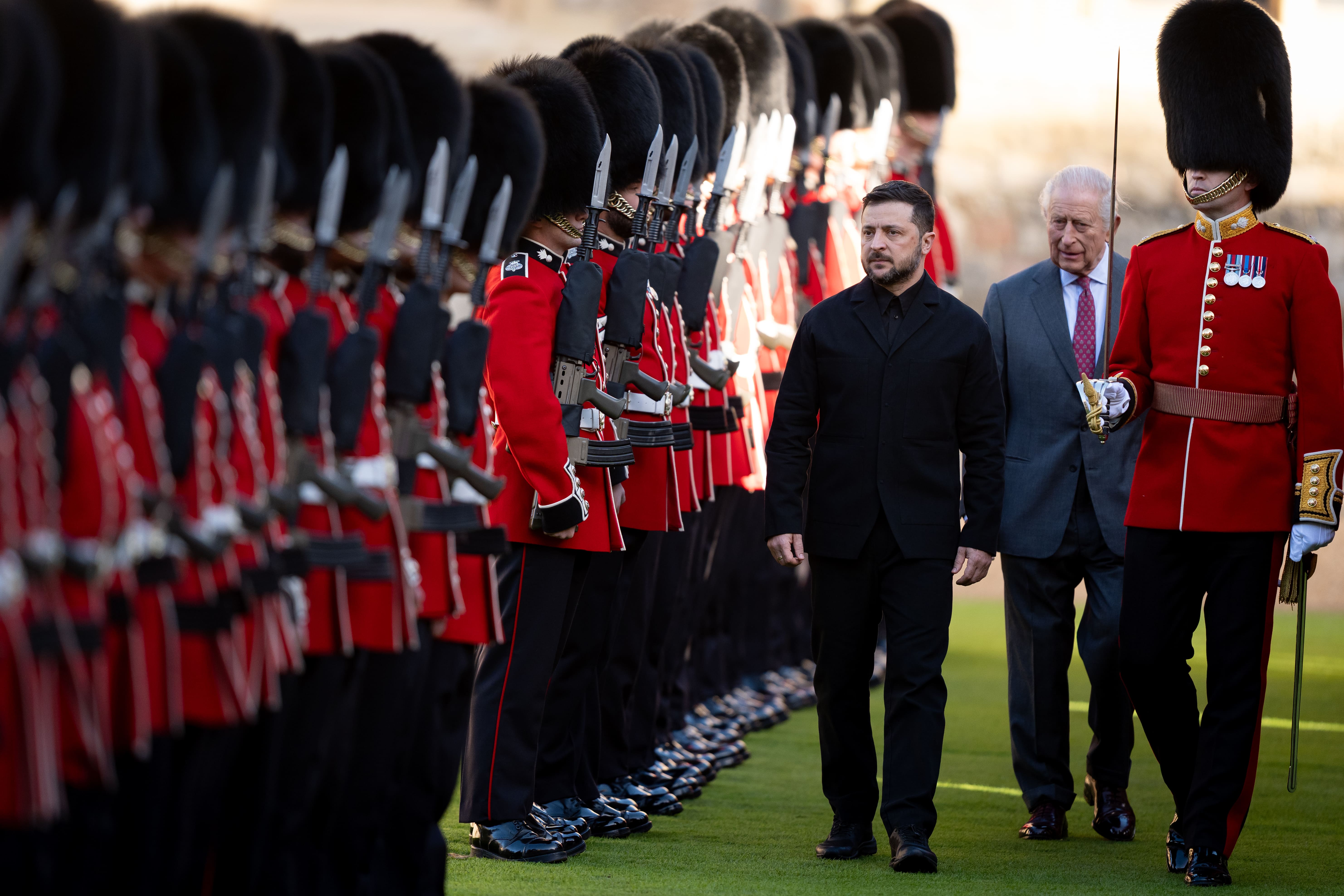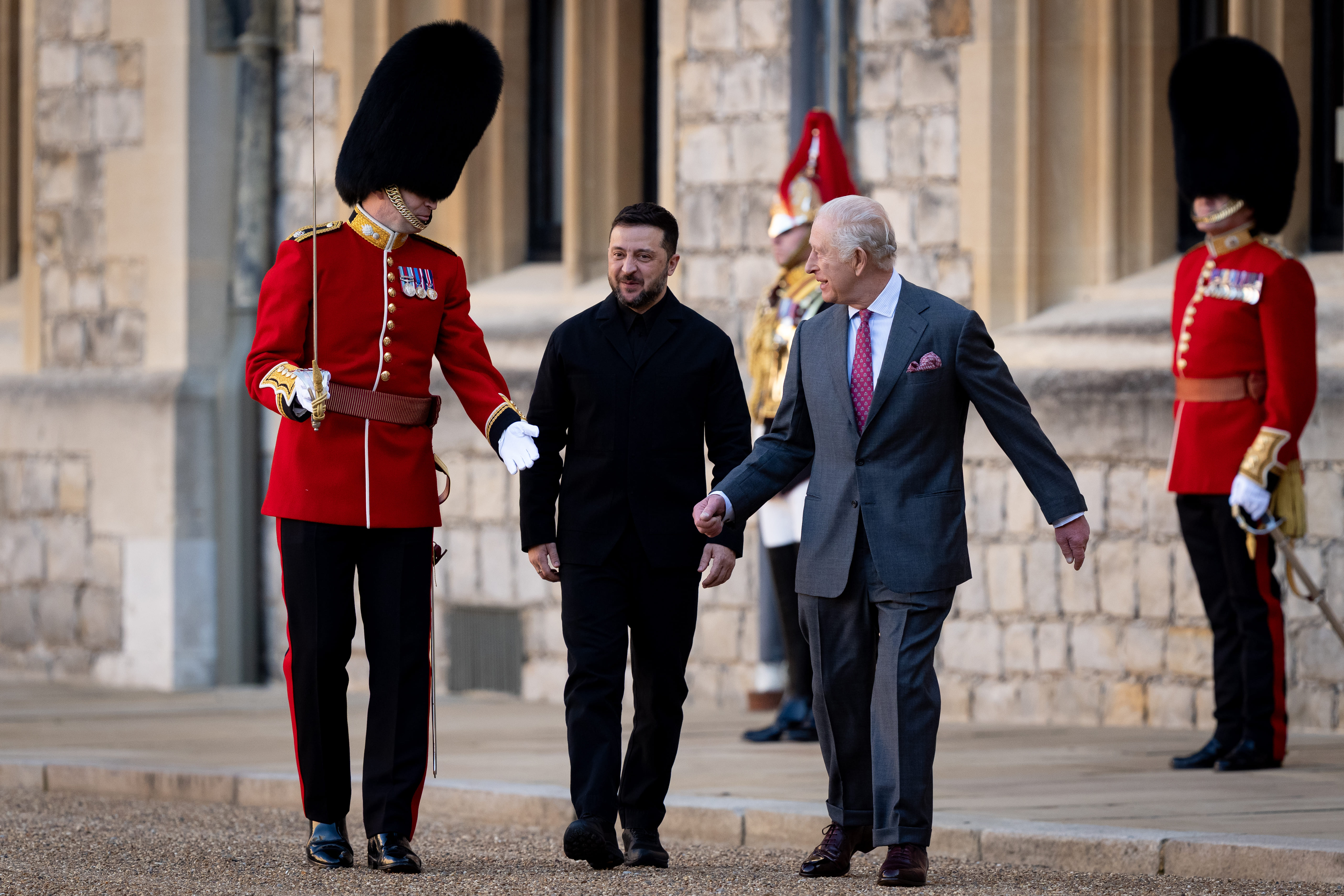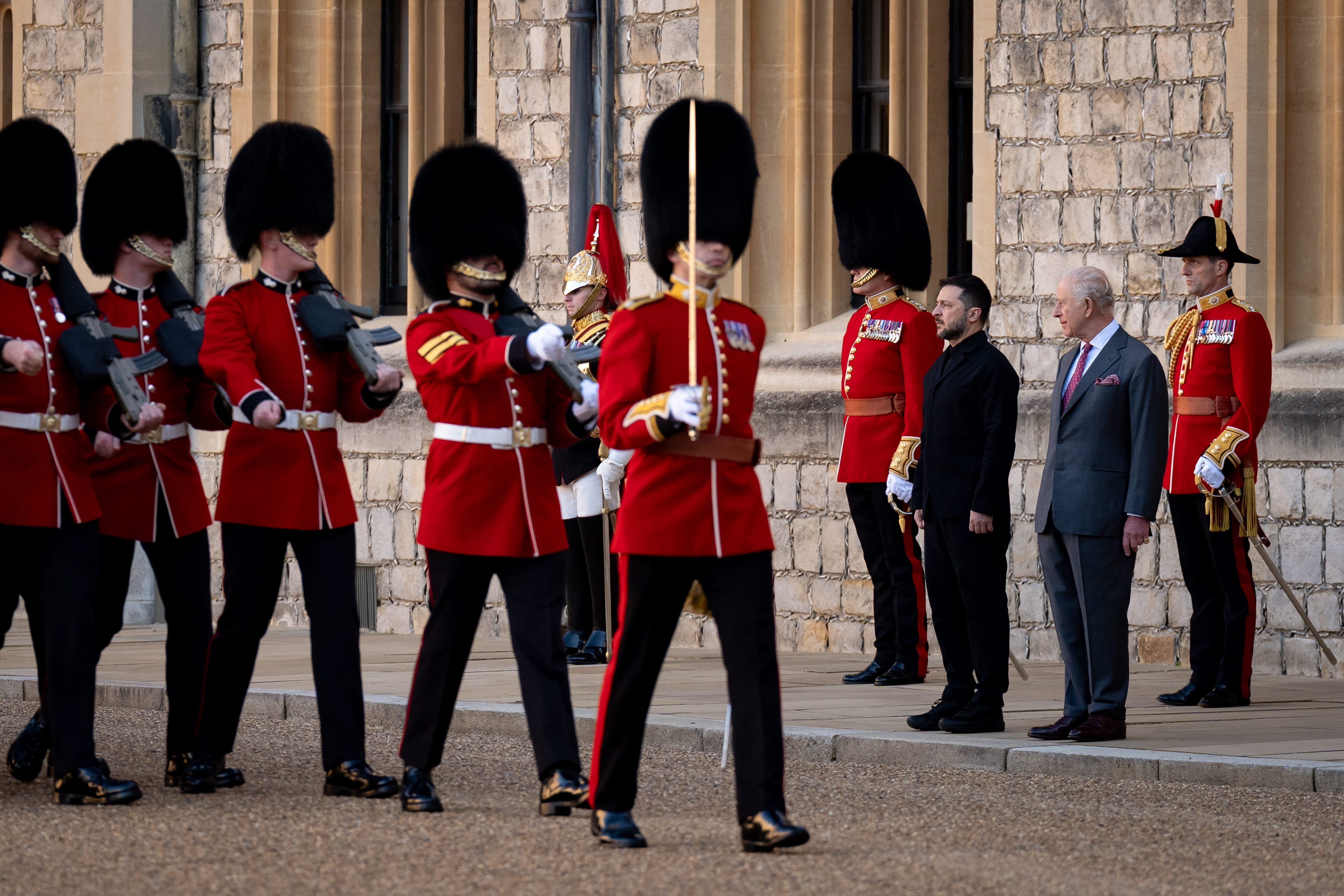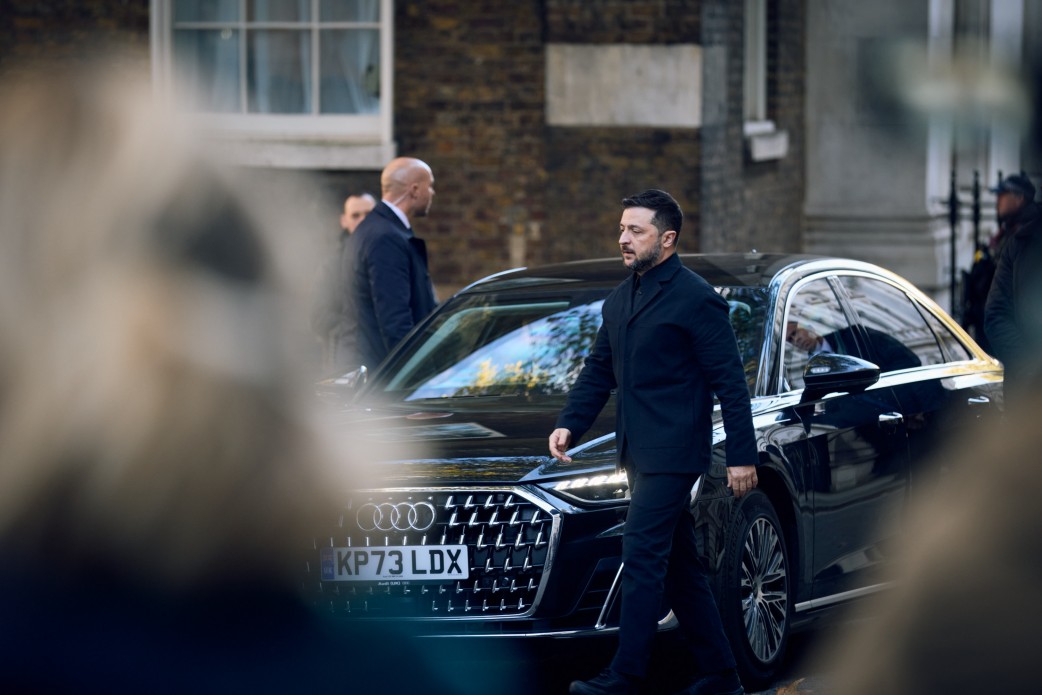In London, President of Ukraine Volodymyr Zelenskyy took part in the Coalition of the Willing leaders’ meeting, co-chaired by Prime Minister of the United Kingdom Keir Starmer and President of France Emmanuel Macron (online).
In total, around 40 participants joined the meeting, including Prime Minister of Denmark Mette Frederiksen, Prime Minister of the Netherlands Dick Schoof, and NATO Secretary General Mark Rutte, who were present in person.
 Volodymyr Zelenskyy emphasized that the key priorities of the meeting were air defense, energy, sanctions, and long-range capabilities.
Volodymyr Zelenskyy emphasized that the key priorities of the meeting were air defense, energy, sanctions, and long-range capabilities.
“Putin has not achieved any of his real goals on the ground – no gains on the front line, and he turned to what he truly believes in – terror. And of course, we need to protect our critical infrastructure – and prevent any blackouts,” the President said.
The Ukrainian delegation informed partners about the need to support and restore the country’s energy infrastructure. This winter, Ukraine will also require gas imports, as Russia continues its targeted attacks on related facilities. Our country is already cooperating with Norway on this issue.
The Head of State also noted that Ukraine is discussing with the United States an agreement on the purchase of the required number of Patriot systems.
“There are already a significant number of Patriots and other air defense systems in Europe that, fortunately, are just on standby. And we could use them now to protect lives, so we don’t have to wait the line,” Volodymyr Zelenskyy said.
The President expressed particular gratitude to the United Kingdom, the European Union, Canada, and Japan for their sanctions against Russia, as well as all those contributing to these restrictive measures.
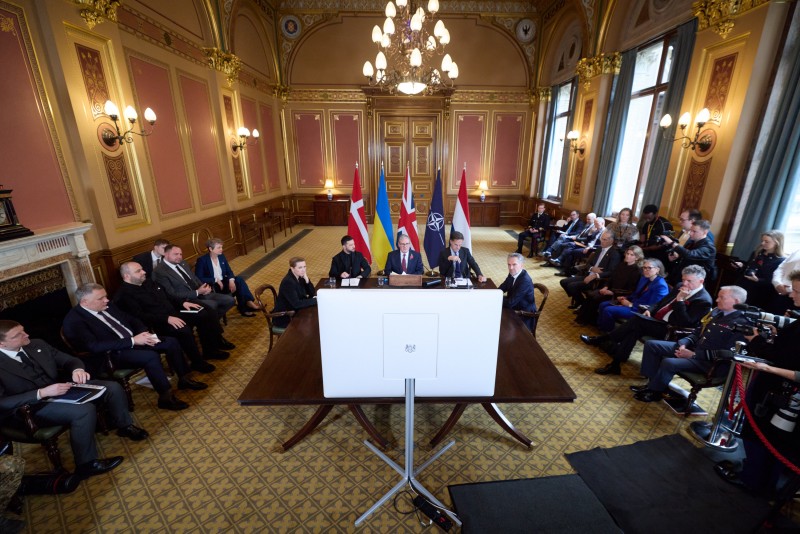 “And now there is one more important decision by the United States of America – sanctions against two large Russian oil companies. Pressure on Russian oil is an instrument to end the war, I'm sure. And all Russian oil companies – including Rosneft, Lukoil, Putin’s own oil company Surgutneftegas, and others – must be blocked,” the Head of State stressed.
“And now there is one more important decision by the United States of America – sanctions against two large Russian oil companies. Pressure on Russian oil is an instrument to end the war, I'm sure. And all Russian oil companies – including Rosneft, Lukoil, Putin’s own oil company Surgutneftegas, and others – must be blocked,” the Head of State stressed.
Volodymyr Zelenskyy stated that Russia has no intention of ending the war, and Vladimir Putin does not want any proper meetings. The President called for efforts to create in Russia a will to negotiate.
“And I’m ready to meet in any meaningful format, and the current line of contact could be the starting point of negotiations, real negotiations. And we must all remember that the issues of territorial integrity, as well as any alleged “trade of lands,” must not pay off the aggressor or reward any future aggressions in the world,” the Head of State noted.
The President emphasized that the issues of Tomahawks, Storm Shadows, SCALPs, and joint production of drones and missiles are vital. As soon as Vladimir Putin felt pressure and the possibility of Tomahawks appearing in Ukraine, he declared his readiness to resume talks – but once the pressure eased, he again abandoned diplomacy.
The Head of State called for expanding long-range capabilities and activating teams to finalize work on the future framework for security guarantees.
“On the day the war ends, we must be ready with all the security guarantees. And right now, it’s time to practically implement all these initiatives, like PURL, SAFE, and support in Capability Coalitions,” the President concluded.
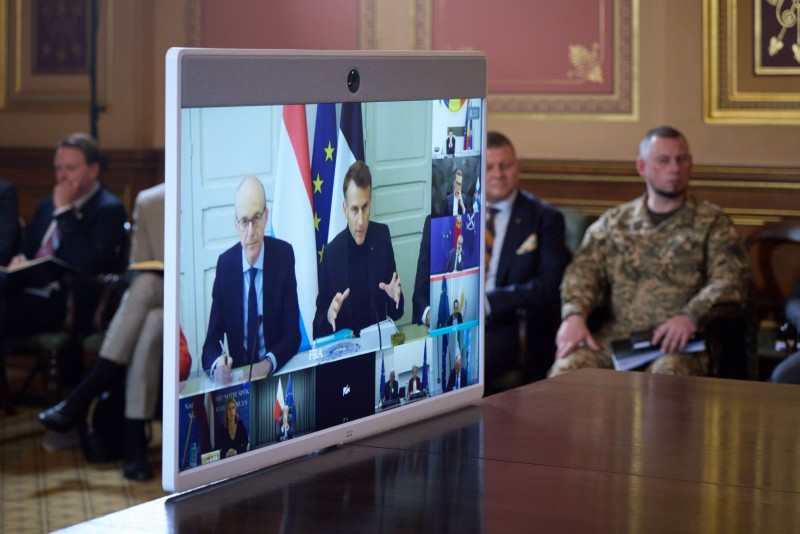 The meeting was also attended online by: President of Cyprus Nikos Christodoulides, President of Lithuania Gitanas Nausėda, President of Romania Nicușor Dan, President of Finland Alexander Stubb, Chancellor of Austria Christian Stocker, Prime Minister of Albania Edi Rama, Prime Minister of Bulgaria Rossen Jeliazkov, Prime Minister of Estonia Kristen Michal, Taoiseach of Ireland Micheál Martin, Prime Minister of Spain Pedro Sánchez, President of the Council of Ministers of Italy Giorgia Meloni, Prime Minister of Latvia Evika Siliņa, Prime Minister of Norway Jonas Gahr Støre, Prime Minister of Poland Donald Tusk, Prime Minister of Croatia Andrej Plenković, Prime Minister of the Czech Republic Petr Fiala, Prime Minister of Montenegro Milojko Spajić, Prime Minister of Sweden Ulf Kristersson, Prime Minister of Japan Sanae Takaichi, Vice President of Türkiye Cevdet Yılmaz, President of the European Council António Costa, President of the European Commission Ursula von der Leyen, Minister of Foreign Affairs of Greece Giorgos Gerapetritis, Permanent Secretary of State of Iceland Martin Eyjólfsson, Minister of Defense of Canada David McGuinty, Federal Minister of Foreign Affairs of Germany Johann Wadephul, Minister of Defense of New Zealand Judith Collins, Minister State and Foreign Affairs of Portugal Paulo Rangel, Minister of Defense of Slovenia Borut Sajovic, Chief of Staff for Foreign Affairs and Security to the Prime Minister of Belgium Pascal Heyman, High Commissioner of Australia to the United Kingdom Stephen Smith, and High Commissioner of New Zealand to the United Kingdom Hamish Cooper.
The meeting was also attended online by: President of Cyprus Nikos Christodoulides, President of Lithuania Gitanas Nausėda, President of Romania Nicușor Dan, President of Finland Alexander Stubb, Chancellor of Austria Christian Stocker, Prime Minister of Albania Edi Rama, Prime Minister of Bulgaria Rossen Jeliazkov, Prime Minister of Estonia Kristen Michal, Taoiseach of Ireland Micheál Martin, Prime Minister of Spain Pedro Sánchez, President of the Council of Ministers of Italy Giorgia Meloni, Prime Minister of Latvia Evika Siliņa, Prime Minister of Norway Jonas Gahr Støre, Prime Minister of Poland Donald Tusk, Prime Minister of Croatia Andrej Plenković, Prime Minister of the Czech Republic Petr Fiala, Prime Minister of Montenegro Milojko Spajić, Prime Minister of Sweden Ulf Kristersson, Prime Minister of Japan Sanae Takaichi, Vice President of Türkiye Cevdet Yılmaz, President of the European Council António Costa, President of the European Commission Ursula von der Leyen, Minister of Foreign Affairs of Greece Giorgos Gerapetritis, Permanent Secretary of State of Iceland Martin Eyjólfsson, Minister of Defense of Canada David McGuinty, Federal Minister of Foreign Affairs of Germany Johann Wadephul, Minister of Defense of New Zealand Judith Collins, Minister State and Foreign Affairs of Portugal Paulo Rangel, Minister of Defense of Slovenia Borut Sajovic, Chief of Staff for Foreign Affairs and Security to the Prime Minister of Belgium Pascal Heyman, High Commissioner of Australia to the United Kingdom Stephen Smith, and High Commissioner of New Zealand to the United Kingdom Hamish Cooper.


